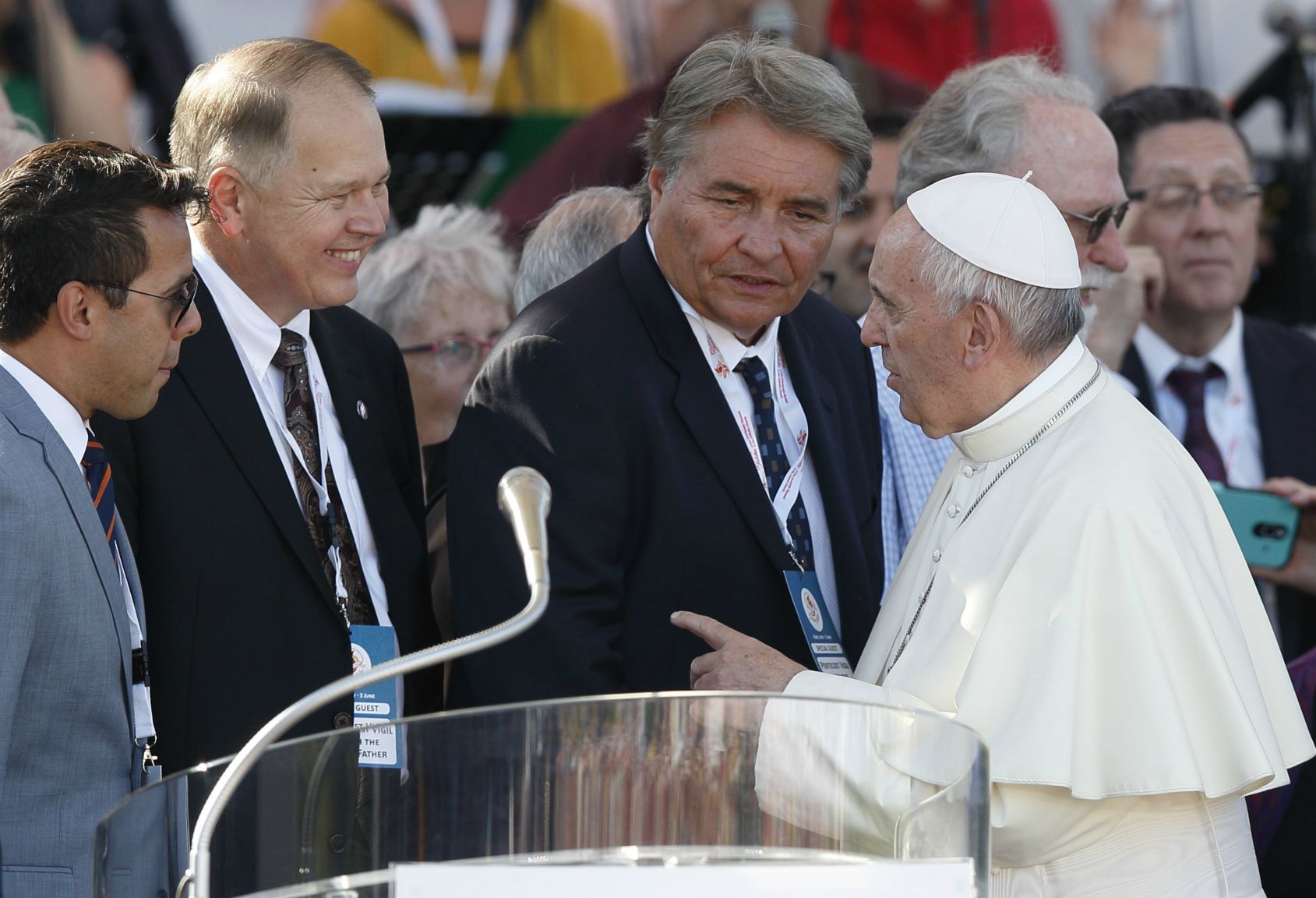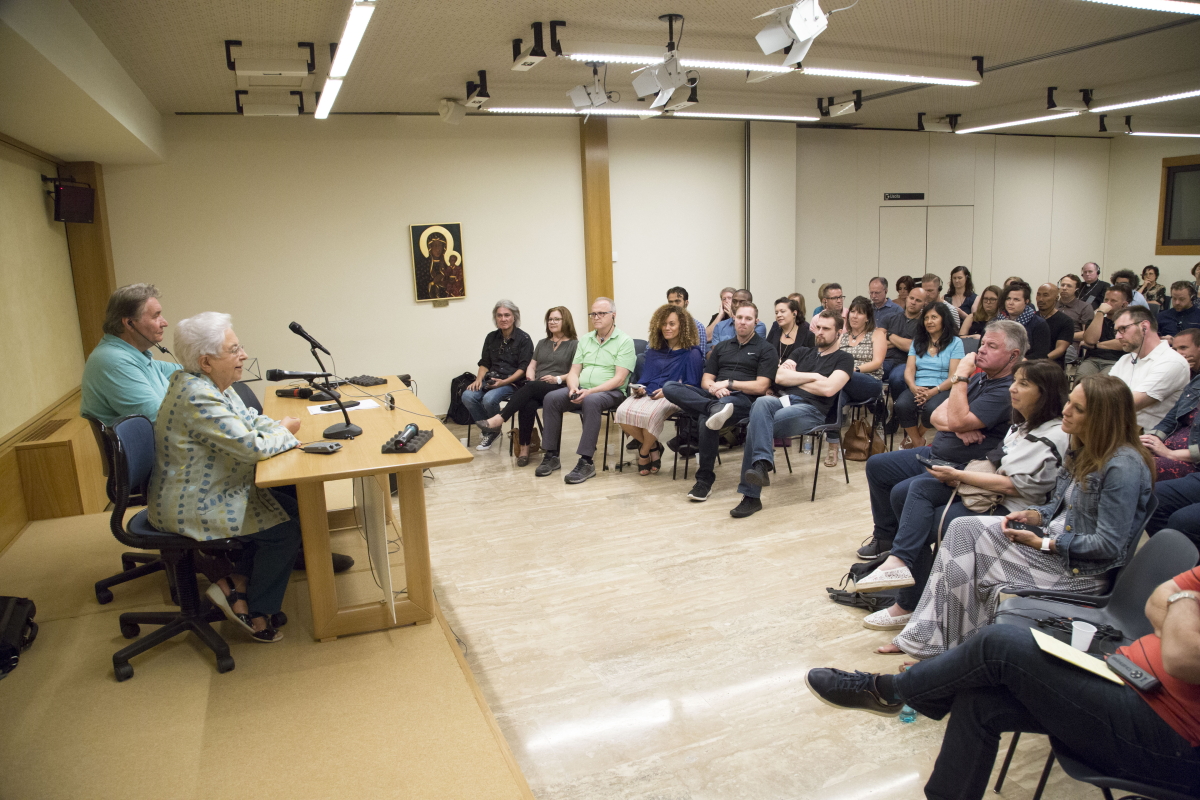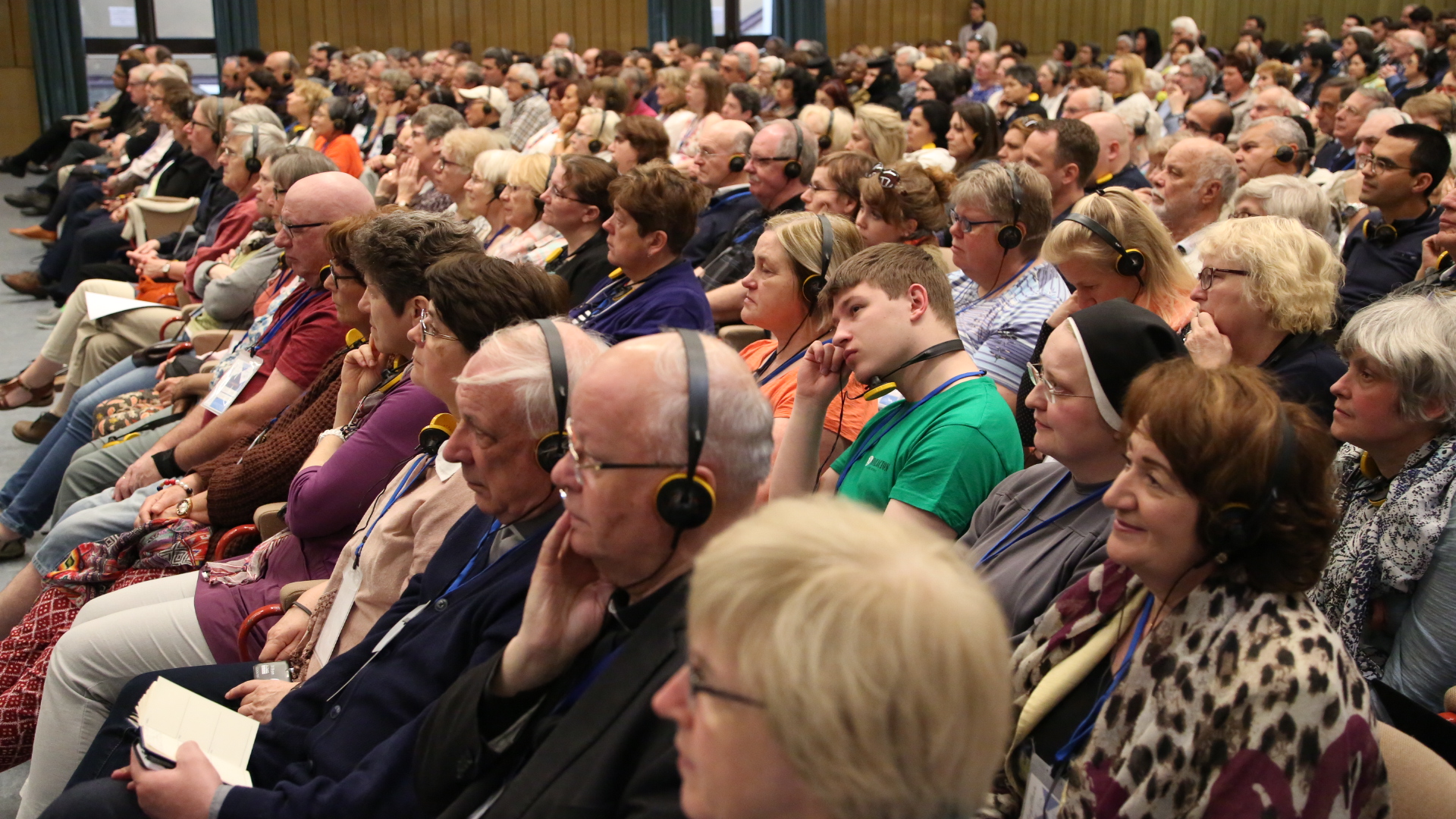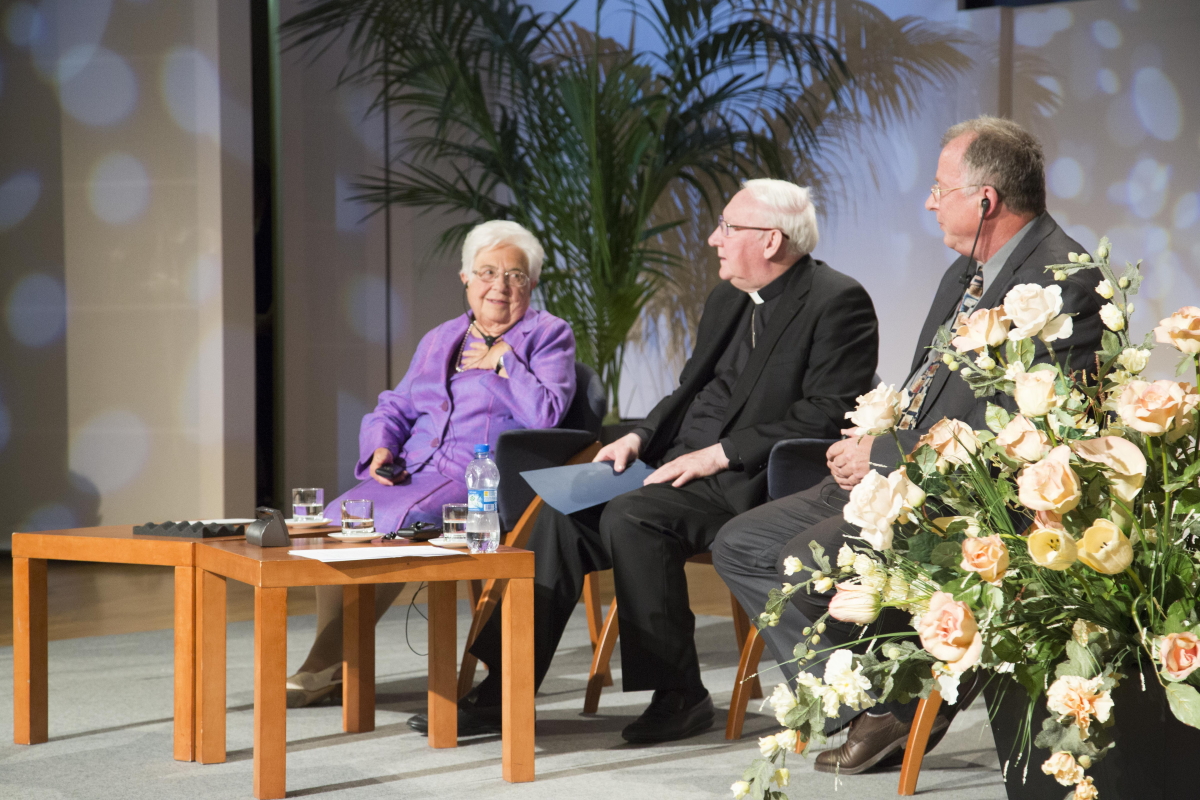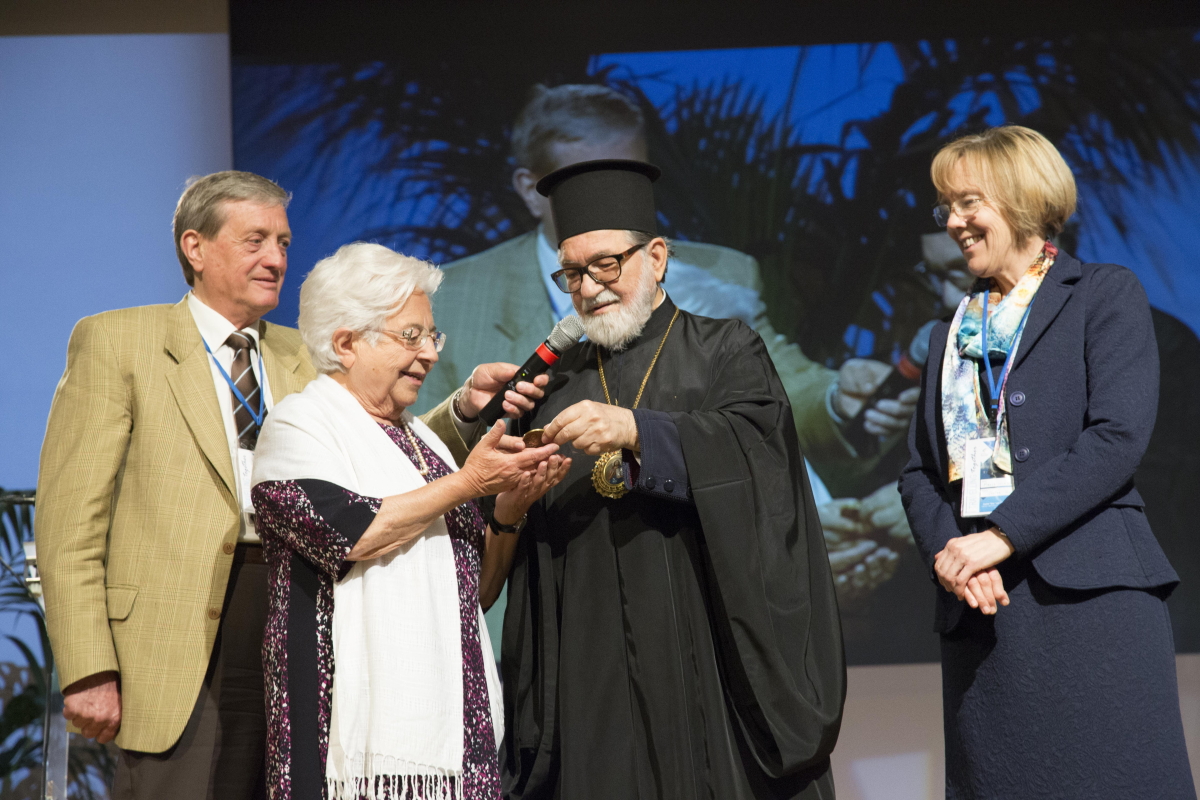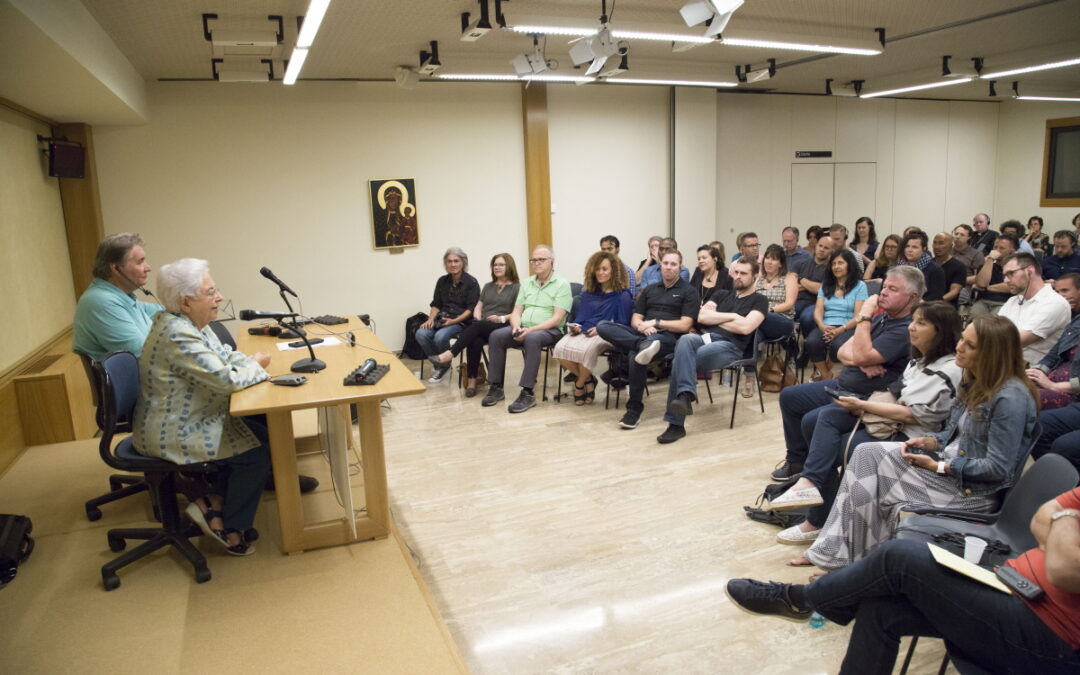

2018 Synod on Youth Questionnaire
The website is up in preparation for the 2018 Synod of Bishops on “Youth, Faith and Vocational Discernment”. The site contains a questionnaire in five languages, to facilitate the widest participation of all the young people in the world, not only to receive information of the event, but also to interact and take part in the preparation.” “Let your shout be heard, let it resound in the communities and make it reach the pastors,” Pope Francis exhorted the young people. He went on: “Saint Benedict reccommended that abbots to consult the youngest members before any important decision because, “it is often to the youngest that the Lord reveals the best solutions.”
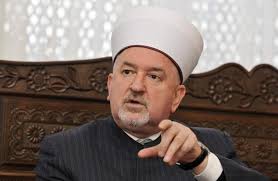
Only one word: “Stop the violence in the name of Allah”
 “A recipe for success doesn’t exist, but there is a recipe for failure. The recipe for failure is violence ‘in the name of Allah’”. With these words, the Grand Mufti Emeritus of Bosnia Herzogovina turned to the Muslims of Europe with an appeal. He made it on the day after the bloody attacks in London and Manchester. Like Chiara Lubich before him, and presently Maria Voce, Mustafa Ceric was once the honorary president of Religions for Peace. “This is not my faith. This is not the Allah I believe in. My faith is never the knife, it’s never terror. My Allah is Loving and Merciful. […] “I confess that I have never felt so confused and so helpless in trying to explain what is happening inside and outside my community of faith. I console myself with the thought that these are the actions of extreme minorities, just a political game by great powers to gain Muslim wealth.” The Grand Mufti had been awarded the Felix Houphouet-Boigny UNESCO Peace Prize in 2003 and the Sternberg Prize of the International Council of Christians and Jews “for his outstanding contribution to the understanding of the faith.” In 2007 he received the Theodor-Heuss-Stiftung Prize for his Contribution to the Dissemination and Strengthening of Democracy and in 2008 the Eugen Biser Foundation Prize for his efforts to promote understanding and peace between Christian and Islamic thought. Mustafa Ceric used strong words: “My faith community has many problems. The biggest one is that of delegating to others the solutions of our problems. Instead, my Community of Faith, my Ummah, must solve its problems within itself before solving the problems around it.” There are those who claim that the attacks against innocent civilians in Manchester or London are more important than the ones in Palestine, in Kabul, Mosul, Sa’an and Misurata, said Ceric. “They aren’t more important, but certainly more dangerous for the Muslims in Europe, the majority of whom have escaped from Muslim countries to seek peace and safety for their children in Europe. The peace and safety they have experienced up until now are threatened. After Manchester, London – and even before that, Berlin and Zurich – “the European Muslims have to be strong and clear not only about condemning violence ‘in the name of Allah’, but also about taking concrete measures against any form of abuse of Islam. They need to have a clear voice, a united and irrevocable voice in the struggle against the violence that is supported ‘in the name of Allah’. It is no longer a matter of individual goodwill of individuals or groups that work for interreligious dialogue. It is an existential problem for Islam and for the Muslims in Europe.” The Grand Mufti therefore launched an appeal to the Muslims of Europe to “gather together immediately around a “common word” between us and our neighbours independent of their faith, race or nationality, to swear an oath to God, to themselves and to their own neighbours in Europe: an oath to love and promote peace, security and cooperation in accordance with what we are obliged to do by our culture and Islamic faith. We must swear that we will do everything that is necessary to fight together against violence towards innocent people. We present-day generations of European Muslims owe it to our descendants who have no blame.” “This is no longer the time to hesitate!” The Mufti vehemently expressed his hope and desire for a change. “There’s no room for calculation! There are no longer excuses for putting it off, nor justifications for waiting! There is no salvation in silence! There is no future for Islam nor for Muslims in Europe if not in coexistence and in tolerance with our European neighbours!”
“A recipe for success doesn’t exist, but there is a recipe for failure. The recipe for failure is violence ‘in the name of Allah’”. With these words, the Grand Mufti Emeritus of Bosnia Herzogovina turned to the Muslims of Europe with an appeal. He made it on the day after the bloody attacks in London and Manchester. Like Chiara Lubich before him, and presently Maria Voce, Mustafa Ceric was once the honorary president of Religions for Peace. “This is not my faith. This is not the Allah I believe in. My faith is never the knife, it’s never terror. My Allah is Loving and Merciful. […] “I confess that I have never felt so confused and so helpless in trying to explain what is happening inside and outside my community of faith. I console myself with the thought that these are the actions of extreme minorities, just a political game by great powers to gain Muslim wealth.” The Grand Mufti had been awarded the Felix Houphouet-Boigny UNESCO Peace Prize in 2003 and the Sternberg Prize of the International Council of Christians and Jews “for his outstanding contribution to the understanding of the faith.” In 2007 he received the Theodor-Heuss-Stiftung Prize for his Contribution to the Dissemination and Strengthening of Democracy and in 2008 the Eugen Biser Foundation Prize for his efforts to promote understanding and peace between Christian and Islamic thought. Mustafa Ceric used strong words: “My faith community has many problems. The biggest one is that of delegating to others the solutions of our problems. Instead, my Community of Faith, my Ummah, must solve its problems within itself before solving the problems around it.” There are those who claim that the attacks against innocent civilians in Manchester or London are more important than the ones in Palestine, in Kabul, Mosul, Sa’an and Misurata, said Ceric. “They aren’t more important, but certainly more dangerous for the Muslims in Europe, the majority of whom have escaped from Muslim countries to seek peace and safety for their children in Europe. The peace and safety they have experienced up until now are threatened. After Manchester, London – and even before that, Berlin and Zurich – “the European Muslims have to be strong and clear not only about condemning violence ‘in the name of Allah’, but also about taking concrete measures against any form of abuse of Islam. They need to have a clear voice, a united and irrevocable voice in the struggle against the violence that is supported ‘in the name of Allah’. It is no longer a matter of individual goodwill of individuals or groups that work for interreligious dialogue. It is an existential problem for Islam and for the Muslims in Europe.” The Grand Mufti therefore launched an appeal to the Muslims of Europe to “gather together immediately around a “common word” between us and our neighbours independent of their faith, race or nationality, to swear an oath to God, to themselves and to their own neighbours in Europe: an oath to love and promote peace, security and cooperation in accordance with what we are obliged to do by our culture and Islamic faith. We must swear that we will do everything that is necessary to fight together against violence towards innocent people. We present-day generations of European Muslims owe it to our descendants who have no blame.” “This is no longer the time to hesitate!” The Mufti vehemently expressed his hope and desire for a change. “There’s no room for calculation! There are no longer excuses for putting it off, nor justifications for waiting! There is no salvation in silence! There is no future for Islam nor for Muslims in Europe if not in coexistence and in tolerance with our European neighbours!”

Slovenia: The art of loving in the family
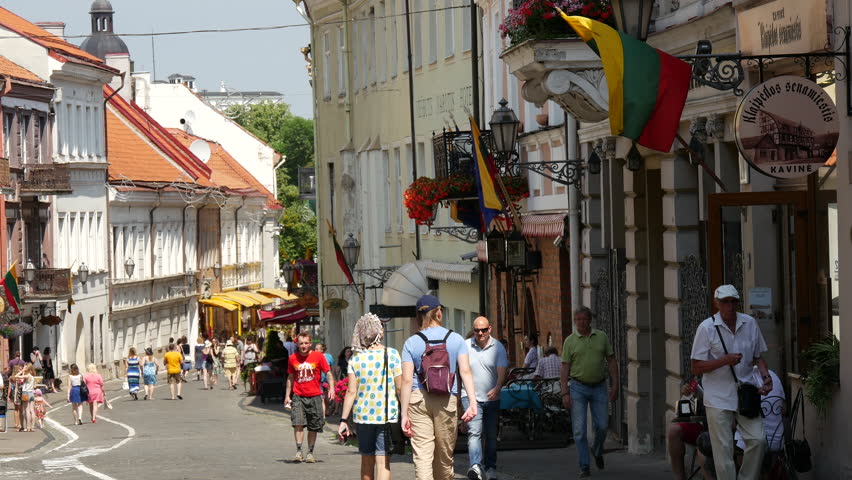
Škofja Loka
 “About a year ago,” Natalija continues, “we were put to the test. In summer, the smallest of our children underwent some counselling, which is done routinely when infants reach the age of three. The psychologist’s diagnosis really surprised us: Attention Deficit Disorder. As an ex-teacher and pedagogue expert, I saw before my eyes all those children who had this type of problem and the difficulties parents had to face in dealing with it. Shocked and dazed, I went back to Ray of Sunshine kindergarten, where Damijan and I both worked. We talked things over for a long time and we realized that for our son to have the best care, one of us had to give up their job.” “We knew we had to devote all our time and energy,” says Damijan. “We were conscious of the fact that we still had a mortgage, that we were six in the family and that we were low-income earners. We explored all the financial possibilities and, despite the uncertainty, I left my job believing that God would not abandon us. We shared our situation, and consequent decision, with our work colleagues. We were grateful to each one for their understanding and support. In the following week, our choice proved to be the right one. On night, my mother, who lived with us, had a stroke and remained paralyzed. It was a shock for us all. For the first two months she was able to feed herself, but there was a subsequent stroke that led to blindness and then dementia. She therefore needed more and more care. Although challenging, we respected her desire to remain at home. In the meantime, our son’s condition improved considerably. In fact things were much calmer all round. When the children arrived home from school, there was always someone waiting for them with a meal on the table. And when Natalija arrived home from work, she was able to devote herself totally to the family. Throughout this time, though living on only one salary, we can say that we lack nothing. And even if we have to give up something, it’s not a deprivation. We are grateful to God for having supported us and for having taught us to live the art of loving, and also to reap the fruits which have won us over completely.”
“About a year ago,” Natalija continues, “we were put to the test. In summer, the smallest of our children underwent some counselling, which is done routinely when infants reach the age of three. The psychologist’s diagnosis really surprised us: Attention Deficit Disorder. As an ex-teacher and pedagogue expert, I saw before my eyes all those children who had this type of problem and the difficulties parents had to face in dealing with it. Shocked and dazed, I went back to Ray of Sunshine kindergarten, where Damijan and I both worked. We talked things over for a long time and we realized that for our son to have the best care, one of us had to give up their job.” “We knew we had to devote all our time and energy,” says Damijan. “We were conscious of the fact that we still had a mortgage, that we were six in the family and that we were low-income earners. We explored all the financial possibilities and, despite the uncertainty, I left my job believing that God would not abandon us. We shared our situation, and consequent decision, with our work colleagues. We were grateful to each one for their understanding and support. In the following week, our choice proved to be the right one. On night, my mother, who lived with us, had a stroke and remained paralyzed. It was a shock for us all. For the first two months she was able to feed herself, but there was a subsequent stroke that led to blindness and then dementia. She therefore needed more and more care. Although challenging, we respected her desire to remain at home. In the meantime, our son’s condition improved considerably. In fact things were much calmer all round. When the children arrived home from school, there was always someone waiting for them with a meal on the table. And when Natalija arrived home from work, she was able to devote herself totally to the family. Throughout this time, though living on only one salary, we can say that we lack nothing. And even if we have to give up something, it’s not a deprivation. We are grateful to God for having supported us and for having taught us to live the art of loving, and also to reap the fruits which have won us over completely.”
Pope Francis says thanks
For your commitment to peace, promoting a series of initiatives to convert a weapons factory in the province of Iglesias” (Sardinia, Italy). The missive, dated June 3 addressed the local community of the Focolare Movement, (New Humanities section), for all the endeavours undertaken with Amnesty International, Oxfam, Fondazione Banca Etica, Opal Brescia and Italian Disarmament Network, for the “RVM reconversion” (Multinational Arms-producing Company). The Holy Father said he was “happy to know that you are concretely involved in promoting a dignified employment, as an alternative to the manufacture of arms, in a territory that is still undergoing serious employment crises.” Lastly, he expressed his “solidarity for the commitment in spreading the culture of peace.”
The dialogue wanted by God
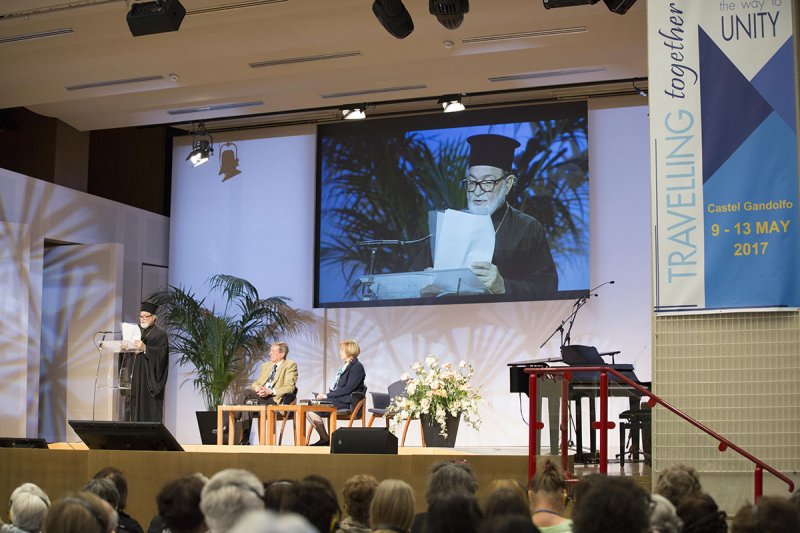 Patriarch Athenagoras and Chiara Lubich, protagonists of unity. Beginning again is never and never has been easy, especially if deep trenches have been dug over time, if certain differences have become cultural, if – to complicate matters – there is even the certainty of being in the right. It wouldn’t be far from the truth to say that this was the situation in the mid-1900s between the Catholic and the Orthodox Church, after centuries, an entire millennium, the separation was nurtured and cultivated. Then…the historic turning point. The celebrated and unforgettable and glorious memories of the initiators of the ‘dialogue of Love’, the great inventors of the dialogue of the people: Athenagoras, Ecumenical Patriarch, and Chiara Lubich, foundress of the Movement of unity. With their humble, serious and willingness, with dedication, love and prayer they were the initiators of a new ecumenical Era; they instructed the peoples, giving them courage, strength, patience, faithfulness, willingness, love and unity. Deep down the solution was simple, and the Patriarch expressed it with the following words: “We lived alone, without brothers, without having sisters for many centuries, like orphans. Why? The brother and sister are the door. There lies the secret!” The unforgettable protagonists of the ‘dialogue of love’, the great inventors of the dialogue of the people met a good 27 times, between 1967 and 1972 when the Patriarch died. There first encounter goes back to June 13th, 1967 when Lubich visited the Ecumenical Patriarchate of Constantinople, even though, until this day, that moment has never been adequately appreciated for its full value. The Patriarch approved and lovingly embraced the seriousness of the charism of Chiara, her mystical spirituality that is a spirituality of the Church, to the point that their encounter was even considered ‘an ecstasy’, and the conviction grew more and more in him that by living the words of Jesus’s Testament could lead us to the same chalice. With these touching words he remarked: ‘For me it would be a day of Paradise.’
Patriarch Athenagoras and Chiara Lubich, protagonists of unity. Beginning again is never and never has been easy, especially if deep trenches have been dug over time, if certain differences have become cultural, if – to complicate matters – there is even the certainty of being in the right. It wouldn’t be far from the truth to say that this was the situation in the mid-1900s between the Catholic and the Orthodox Church, after centuries, an entire millennium, the separation was nurtured and cultivated. Then…the historic turning point. The celebrated and unforgettable and glorious memories of the initiators of the ‘dialogue of Love’, the great inventors of the dialogue of the people: Athenagoras, Ecumenical Patriarch, and Chiara Lubich, foundress of the Movement of unity. With their humble, serious and willingness, with dedication, love and prayer they were the initiators of a new ecumenical Era; they instructed the peoples, giving them courage, strength, patience, faithfulness, willingness, love and unity. Deep down the solution was simple, and the Patriarch expressed it with the following words: “We lived alone, without brothers, without having sisters for many centuries, like orphans. Why? The brother and sister are the door. There lies the secret!” The unforgettable protagonists of the ‘dialogue of love’, the great inventors of the dialogue of the people met a good 27 times, between 1967 and 1972 when the Patriarch died. There first encounter goes back to June 13th, 1967 when Lubich visited the Ecumenical Patriarchate of Constantinople, even though, until this day, that moment has never been adequately appreciated for its full value. The Patriarch approved and lovingly embraced the seriousness of the charism of Chiara, her mystical spirituality that is a spirituality of the Church, to the point that their encounter was even considered ‘an ecstasy’, and the conviction grew more and more in him that by living the words of Jesus’s Testament could lead us to the same chalice. With these touching words he remarked: ‘For me it would be a day of Paradise.’  Not much time was needed before the Patriarch declared himself to be a “focolarino” and began to call Lubich by the name of “Tecla,” having discerned in her the same zeal as the isapostolo [equal to the Apostles]. He went on to say: ‘We are thirsty for this spirituality.’ Meanwhile, Chiara was equally touched and to her the Patriarch ‘appeared as an Archangel that struggles and fights to the end for his ideal: a man of God, proven in heroic love and heroic patience’. With her spirituality and marvellous personality, Chiara not only prepared the two principle and most important Bridges: Paul VI and Athenagoras, but she also managed to unite those two Bridges. Through encounters between Orthodox and Catholics, the bond of mutual love mitigated the sorrow of not being able to share the Eucharist; indeed, it made this cross loveable as a contribution of the Christian People to that One Chalice. “The Pope is our leader,” the Patriarch confided to Chiara. “…sometimes I see the Pope ‘in agony,’ because he knows everything that there is of negative in the world. This is why I placed myself one hundred percent at his service. I follow him, I understand him, I love him, I respect him, I admire him.” As a follow-up of this fifty-year journey, I personally proposed to Msgr Piero Coda, president of Sophia University Institute (SUI), the institution of an Ecumenical Chair in recognition of these two extraordinary protagonists of brotherhood among the Orthodox and Catholic Church. My proposal received magnanimous and cordial approval, along with the blessing of Patriarch Bartholomew and the enthusiastic support of Focolare president, Maria Voce. Let us offer from our hearts one great ‘thank you’ like beautiful flowers to Athenagoras and to Chiara who were sent by God, who gave their life above all else to the realization of God’s will: ‘Tthat all be one’, for it will given as a gift of the Holy Spirit.
Not much time was needed before the Patriarch declared himself to be a “focolarino” and began to call Lubich by the name of “Tecla,” having discerned in her the same zeal as the isapostolo [equal to the Apostles]. He went on to say: ‘We are thirsty for this spirituality.’ Meanwhile, Chiara was equally touched and to her the Patriarch ‘appeared as an Archangel that struggles and fights to the end for his ideal: a man of God, proven in heroic love and heroic patience’. With her spirituality and marvellous personality, Chiara not only prepared the two principle and most important Bridges: Paul VI and Athenagoras, but she also managed to unite those two Bridges. Through encounters between Orthodox and Catholics, the bond of mutual love mitigated the sorrow of not being able to share the Eucharist; indeed, it made this cross loveable as a contribution of the Christian People to that One Chalice. “The Pope is our leader,” the Patriarch confided to Chiara. “…sometimes I see the Pope ‘in agony,’ because he knows everything that there is of negative in the world. This is why I placed myself one hundred percent at his service. I follow him, I understand him, I love him, I respect him, I admire him.” As a follow-up of this fifty-year journey, I personally proposed to Msgr Piero Coda, president of Sophia University Institute (SUI), the institution of an Ecumenical Chair in recognition of these two extraordinary protagonists of brotherhood among the Orthodox and Catholic Church. My proposal received magnanimous and cordial approval, along with the blessing of Patriarch Bartholomew and the enthusiastic support of Focolare president, Maria Voce. Let us offer from our hearts one great ‘thank you’ like beautiful flowers to Athenagoras and to Chiara who were sent by God, who gave their life above all else to the realization of God’s will: ‘Tthat all be one’, for it will given as a gift of the Holy Spirit.
Metropolitan Gennadios Zervos,
Archbishop of Italy and Malta of the Ecumenical Patriarchate of Constantinople
Athenagoras and Chiara Lubich
http://vimeo.com/95726085
World Blood Donor Day
What can you do? Donate blood. Donate often. This is the slogan chosen by the World Health Organisation for the celebration of the World Blood Donor Day on 14 June. Some of the objectives of the campaign: to encourage all citizens to reinforce the efficiency of healthcare services; involve the authorities in the creation of National programmes to respond to the growing needs; favour the inclusion of transfusion services in emergency situations; guarantee the supply and reach self-sufficiency nationwide; thank the people who donate blood regularly; promote international cooperation; ensure voluntary donation and enhance security and availability of blood.

Serbia: sports also triggers ideas
 Belgrade (“the white city”) in Central Serbia, one of Europe’s oldest cities,lies at the confluence of the Sava and Danube Rivers. “Gateway to the Balkans” or “Gateway to Europe,” reborn after a recent past of wars, it is today an avant-garde capital, where new ideas, novelties and vitality brew in the fields of art, economy, architecture. and also sports. Last 12-13 May, on the occasion of the 20th anniversary of its foundation, the College of Sports and Health, a certified institution with 600 students, organised an international conference entitled “Sports, recreation, health.” Sportmeet was among the guests invited by Prof. Alexander Ivanovski, also as the expression in the world of sports of that social and spiritual renewal that originated from the experience of the Focolare: a global network of sports lovers, professional and amateur sportsmen and women, teachers, instructors, journalists, managers and operators of the sports business, who live sports as a positive reality for the discussion and exchange of ideas, and as an occasion not only to work up one’s body, but also for universal brotherhood and inclusion. Paolo Cipolli, Sportmeet President, at the conference with a Serb-Croatian delegation entitled his speech Sports moves people and moves ideas. The “sports phenomenon” is one of the more complex, interesting and compelling realities of our time, involving 800 million practitioners, five million sports associations, 205 national federations, and members of the International Olympics Committee, 208 of which belong to the International Soccer Association.
Belgrade (“the white city”) in Central Serbia, one of Europe’s oldest cities,lies at the confluence of the Sava and Danube Rivers. “Gateway to the Balkans” or “Gateway to Europe,” reborn after a recent past of wars, it is today an avant-garde capital, where new ideas, novelties and vitality brew in the fields of art, economy, architecture. and also sports. Last 12-13 May, on the occasion of the 20th anniversary of its foundation, the College of Sports and Health, a certified institution with 600 students, organised an international conference entitled “Sports, recreation, health.” Sportmeet was among the guests invited by Prof. Alexander Ivanovski, also as the expression in the world of sports of that social and spiritual renewal that originated from the experience of the Focolare: a global network of sports lovers, professional and amateur sportsmen and women, teachers, instructors, journalists, managers and operators of the sports business, who live sports as a positive reality for the discussion and exchange of ideas, and as an occasion not only to work up one’s body, but also for universal brotherhood and inclusion. Paolo Cipolli, Sportmeet President, at the conference with a Serb-Croatian delegation entitled his speech Sports moves people and moves ideas. The “sports phenomenon” is one of the more complex, interesting and compelling realities of our time, involving 800 million practitioners, five million sports associations, 205 national federations, and members of the International Olympics Committee, 208 of which belong to the International Soccer Association.  Considering that “only” 192 nations are part of the UN, its weight and omnipresence, like a sort of planetary power, or as some say a “new religion” is obvious. It is an area of infinite economic interest, but sad to say, also of delinquency, while on the contrary, sports can become a “training ground” for brotherhood, unity and integration – a universal “language of gestures” that brings down barriers, obstacles and diversities. In Belgrade, the clean aspect of sports was staged. Among the many speeches on the various aspects connected to the role and potential of sports in the promotion of health, a common consideration emerged among experts and teachers from Slovenia, Croatia, Macedonia and Bulgaria: the need to define new policies for a full valorisation of sports in view of a correct lifestyle, and all the possible forms of integration, especially among the youth. The conference was the occasion to establish new relationships and an agreed protocol in view of future cooperation, giving value to important experiences already underwaysuch as the use of games in some cases of youth hospitality. After Belgrade, Sportmeet is now focused on the next steps, social inclusion, sports education, integration of the people with diverse abilities and relationship between generationsto be undertaken from 13 – 16 July in Spain. In these four days of sports testimonies, and starting from the international symposium of Barcelona (at the Palau Roberton 13 July),operators will discuss with one another, regarding theholding of a Summer School in Castel d’Aro, some hundred kilometers from the Catalunyan capital. Promoted in cooperation with other local partners, among which is the UniversitatAutònoma de Barcelona, it will be a rich programme to make people aware of inclusive sports and good sportive practice – with the dream that “sports” may really become synonymous to “encounter” at all levels.
Considering that “only” 192 nations are part of the UN, its weight and omnipresence, like a sort of planetary power, or as some say a “new religion” is obvious. It is an area of infinite economic interest, but sad to say, also of delinquency, while on the contrary, sports can become a “training ground” for brotherhood, unity and integration – a universal “language of gestures” that brings down barriers, obstacles and diversities. In Belgrade, the clean aspect of sports was staged. Among the many speeches on the various aspects connected to the role and potential of sports in the promotion of health, a common consideration emerged among experts and teachers from Slovenia, Croatia, Macedonia and Bulgaria: the need to define new policies for a full valorisation of sports in view of a correct lifestyle, and all the possible forms of integration, especially among the youth. The conference was the occasion to establish new relationships and an agreed protocol in view of future cooperation, giving value to important experiences already underwaysuch as the use of games in some cases of youth hospitality. After Belgrade, Sportmeet is now focused on the next steps, social inclusion, sports education, integration of the people with diverse abilities and relationship between generationsto be undertaken from 13 – 16 July in Spain. In these four days of sports testimonies, and starting from the international symposium of Barcelona (at the Palau Roberton 13 July),operators will discuss with one another, regarding theholding of a Summer School in Castel d’Aro, some hundred kilometers from the Catalunyan capital. Promoted in cooperation with other local partners, among which is the UniversitatAutònoma de Barcelona, it will be a rich programme to make people aware of inclusive sports and good sportive practice – with the dream that “sports” may really become synonymous to “encounter” at all levels.
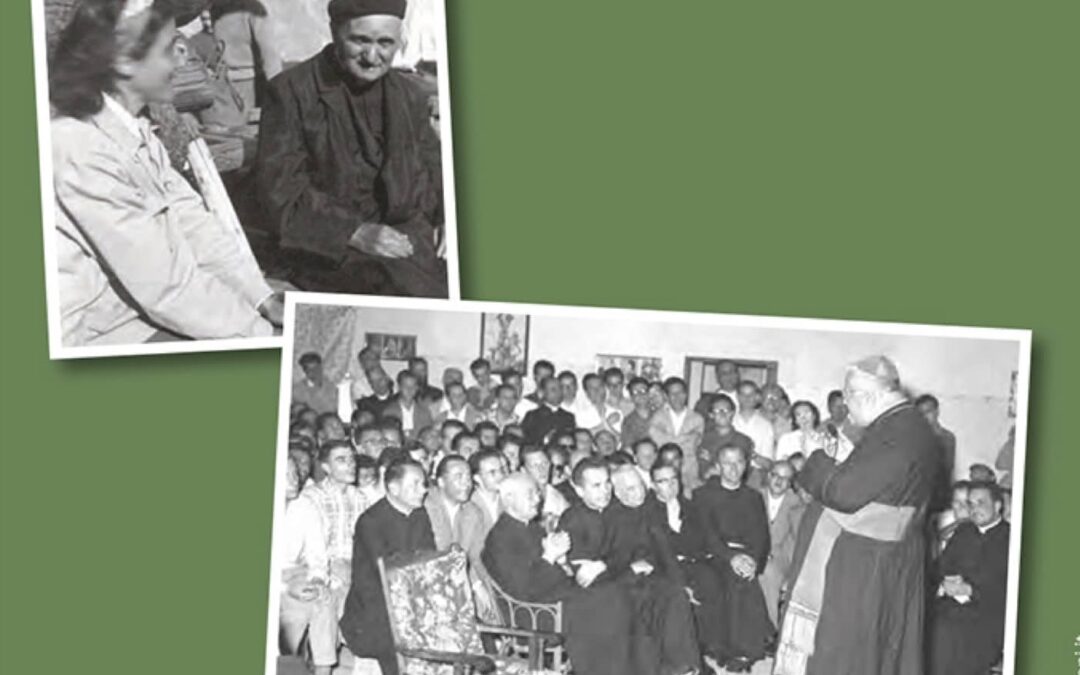
Here is the hand of God
 The then Archbishop of Trento, Msgr. Carlo de Ferrari, had the task of first assessing and approving the Focolare Movement at the diocesan level. The title of the recent book published by Città Nuova Publishing House “Qui c’è il dito di Dio” (Here Is the Hand of God), recalls the expression he used in reference to the evangelical experience that Chiara Lubich and her first companions were living. The context is 1951, a period when not everyone in the Church thought the same as the archbishop of Trent. Indeed, there were many ecclesiastical perplexities and suspicions, in pre-Vatican Council times, with regards to this young lay woman, who had as her followers priests, men and women religious, lay men and women, young people and not so young. Prudence suggested distancing her and perhaps replacing her with a priest. It was through these circumstances that Chiara’s decisive relationship with her bishop began. The book opens with a letter from Chiara Lubich, written from Rome, to Archbishop Carlo de Ferrari. The letter is dated January 5, 1951 and the period of trial that the nascent Movement and Chiara herself were experiencing shines through every line of the text.
The then Archbishop of Trento, Msgr. Carlo de Ferrari, had the task of first assessing and approving the Focolare Movement at the diocesan level. The title of the recent book published by Città Nuova Publishing House “Qui c’è il dito di Dio” (Here Is the Hand of God), recalls the expression he used in reference to the evangelical experience that Chiara Lubich and her first companions were living. The context is 1951, a period when not everyone in the Church thought the same as the archbishop of Trent. Indeed, there were many ecclesiastical perplexities and suspicions, in pre-Vatican Council times, with regards to this young lay woman, who had as her followers priests, men and women religious, lay men and women, young people and not so young. Prudence suggested distancing her and perhaps replacing her with a priest. It was through these circumstances that Chiara’s decisive relationship with her bishop began. The book opens with a letter from Chiara Lubich, written from Rome, to Archbishop Carlo de Ferrari. The letter is dated January 5, 1951 and the period of trial that the nascent Movement and Chiara herself were experiencing shines through every line of the text. 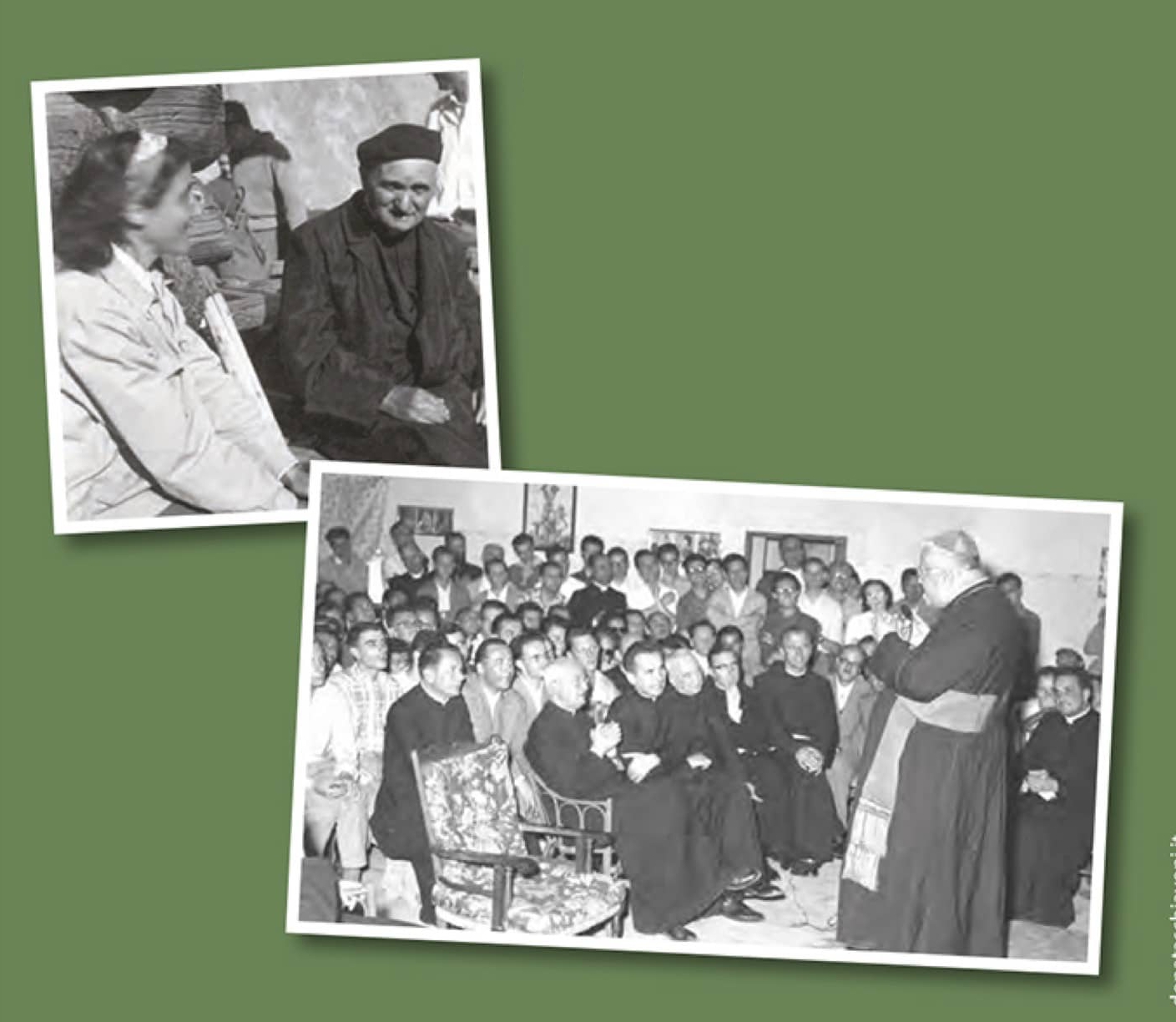 Most Reverend Highness, [1] It’s so true. The cross was heavy and still is, and in these days I understood why Jesus “fell” under the weight of the cross. But, Your Highness, I’m happy, truly happy. I’ve obtained the grace from Jesus to be ready for every decision made by the Church. Not only that, but to leave “my own” (I can still call them that for a while longer), fifty men and women focolarini in such perfect unity that they will be able to pursue their path without anyone even noticing that anything has changed. I’m happy, Highness, to be able to give God all that He has done through me in the supernatural field. I assure You that no matter what happens You can always be assured of my faithfulness to my Jesus forsaken and obedience to the Church. I’ve come this far precisely because I’ve never wanted, on my part, to break unity with the Church, or better, with whoever represented it. If I hadn’t done as I did, perhaps the Movement wouldn’t exist. But the Lord God gave me resistance even against the unimaginable. Now the Movement exists and it will never die. That it is the work of God will be shown perhaps by the fact that I will have to distance myself from it. If I must testify to Him by becoming nothing, after having borne witness to Him through Unity, I’m happy. The culmination of of the life of Jesus was spent in loving was death: and no one has greater love than to give their life for their friends. You, Father, were truly a Father to me, and you showed me (what I believed only through faith) that the Church is a Mother. I will always keep You as Father whatever the Will of God will be for me. No one can forbid me from obeying You, which means obeying the Church. What matters in becoming holy is to obey: to be one. Little does it matter whether they command us to act or not act in one way or another. Isn’t that true, Father? Father Tomasi is a holy man. He’s suffering very much at the moment and is not eating. He is suffering for me… I would never have thought that he could have such feelings.But don’t worry, Your Highness, because we are supporting him and in his presence I also feel lighthearted. In conclusion, I can only tell you one thing: I’m very happy, immensely happy. And I can assure You that Jesus Forsaken will carry me through. Besides: ‘Blessed are you when they separate you and ‘lying, say all manner of evil against you. Rejoice and be glad because your reward in Heaven is great.’ Bless me now and forever, your daughter, Chiara.” Da “Qui c’è il dito di Dio”, (Rome: Ed. Città Nuova, 2017) [1] In those years, the archbishop of Trent was addressed as “Your Highness”.
Most Reverend Highness, [1] It’s so true. The cross was heavy and still is, and in these days I understood why Jesus “fell” under the weight of the cross. But, Your Highness, I’m happy, truly happy. I’ve obtained the grace from Jesus to be ready for every decision made by the Church. Not only that, but to leave “my own” (I can still call them that for a while longer), fifty men and women focolarini in such perfect unity that they will be able to pursue their path without anyone even noticing that anything has changed. I’m happy, Highness, to be able to give God all that He has done through me in the supernatural field. I assure You that no matter what happens You can always be assured of my faithfulness to my Jesus forsaken and obedience to the Church. I’ve come this far precisely because I’ve never wanted, on my part, to break unity with the Church, or better, with whoever represented it. If I hadn’t done as I did, perhaps the Movement wouldn’t exist. But the Lord God gave me resistance even against the unimaginable. Now the Movement exists and it will never die. That it is the work of God will be shown perhaps by the fact that I will have to distance myself from it. If I must testify to Him by becoming nothing, after having borne witness to Him through Unity, I’m happy. The culmination of of the life of Jesus was spent in loving was death: and no one has greater love than to give their life for their friends. You, Father, were truly a Father to me, and you showed me (what I believed only through faith) that the Church is a Mother. I will always keep You as Father whatever the Will of God will be for me. No one can forbid me from obeying You, which means obeying the Church. What matters in becoming holy is to obey: to be one. Little does it matter whether they command us to act or not act in one way or another. Isn’t that true, Father? Father Tomasi is a holy man. He’s suffering very much at the moment and is not eating. He is suffering for me… I would never have thought that he could have such feelings.But don’t worry, Your Highness, because we are supporting him and in his presence I also feel lighthearted. In conclusion, I can only tell you one thing: I’m very happy, immensely happy. And I can assure You that Jesus Forsaken will carry me through. Besides: ‘Blessed are you when they separate you and ‘lying, say all manner of evil against you. Rejoice and be glad because your reward in Heaven is great.’ Bless me now and forever, your daughter, Chiara.” Da “Qui c’è il dito di Dio”, (Rome: Ed. Città Nuova, 2017) [1] In those years, the archbishop of Trent was addressed as “Your Highness”.
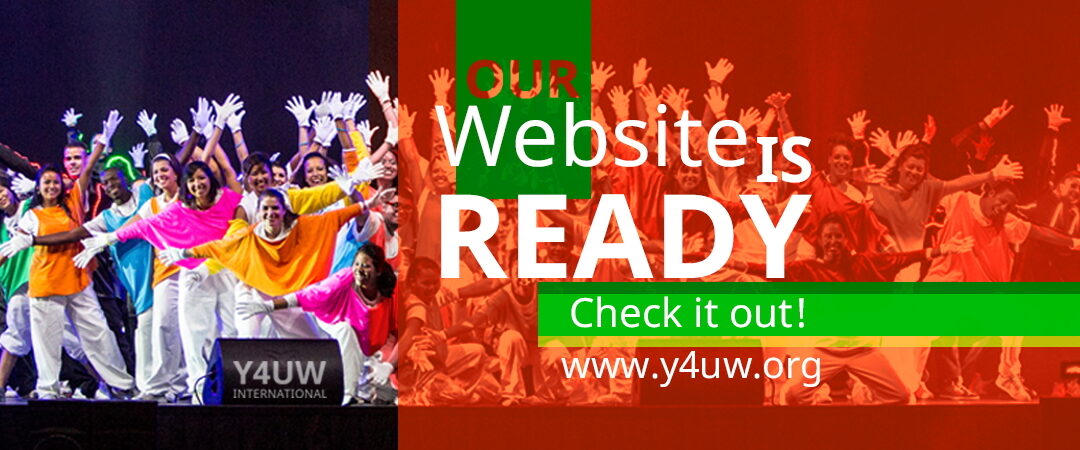
“Youth for a United World” launch new website
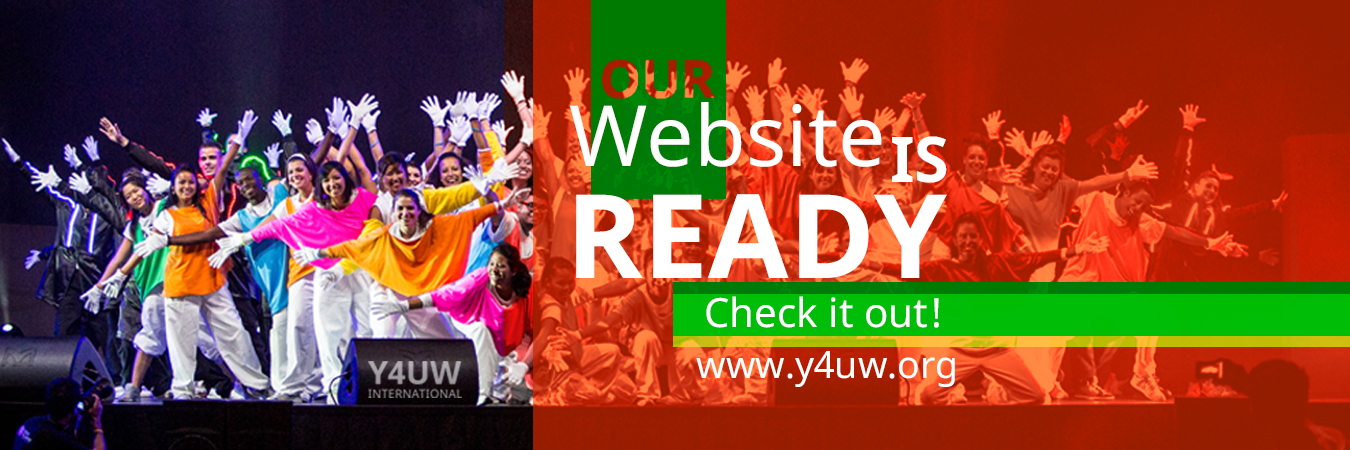 Youth for a United World is an international movement which gathers young people of different races, cultures, religions from 180 countries and across 5 continents. They strive to live for a more united world by putting into practice the Golden Rule: “Do to others what you want them to do unto you; don’t do unto others what you don’t want them to do unto you”. In order to be better connected with young people throughout the world, Youth for a United World have created new communication channels, one of which is the newly launched website yfuw.org which includes content about the movement’s history, news items as well as past and forthcoming events. Genfest 2018: the worldwide event which will take place next year (6-7 July) in Manila, Philippines. More interaction: y4uw.org gives the possible to connect up with young people around the globe.It’s possible to post comments, suggestions, feedback regarding website content but also to convey news about local youth activities. New design: the revamped website makes it easier to view current projects and to contact the protagonists. It’s possible to contact Youth for a United World through the social media: Instagram & Twitter: Y4UW.official Facebook: Y4UW.international
Youth for a United World is an international movement which gathers young people of different races, cultures, religions from 180 countries and across 5 continents. They strive to live for a more united world by putting into practice the Golden Rule: “Do to others what you want them to do unto you; don’t do unto others what you don’t want them to do unto you”. In order to be better connected with young people throughout the world, Youth for a United World have created new communication channels, one of which is the newly launched website yfuw.org which includes content about the movement’s history, news items as well as past and forthcoming events. Genfest 2018: the worldwide event which will take place next year (6-7 July) in Manila, Philippines. More interaction: y4uw.org gives the possible to connect up with young people around the globe.It’s possible to post comments, suggestions, feedback regarding website content but also to convey news about local youth activities. New design: the revamped website makes it easier to view current projects and to contact the protagonists. It’s possible to contact Youth for a United World through the social media: Instagram & Twitter: Y4UW.official Facebook: Y4UW.international
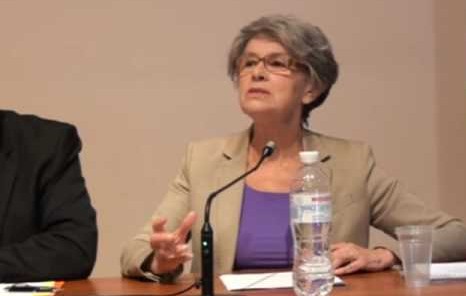
An “Intrinsically Feminine” Theology

Anne-Marie Pelletier
Maria Rita Cerimele
Source: Città Nuova
Women and universal brotherhood
“The role of women in the education towards universal brotherhood,” is the theme of the plenary session of the Pontifical Council for interreligious Dialogue, programmed for 7-9 June, in Rome. The event will highlight four Conferences: Sr. Nuria Calduch-Benages, Spanish biblist will speak about “Women educators in universal brotherhood,” Sr. Raffaella Petrini, professor in the Social Doctrine of the Church, will focus on “Women’s qualities against the technocratic paradigm: a Catholic and social perspective on the contribution of women to fraternity;” Marie Derain, French lawyer and infancy civil defence attorney will discuss the theme “Building peace: the role of women ;” and then Clare Amos, of the Ecumenical Council of Churches will expound on “the role of women in education in universal brotherhood.” The participants will be received by the Pope.
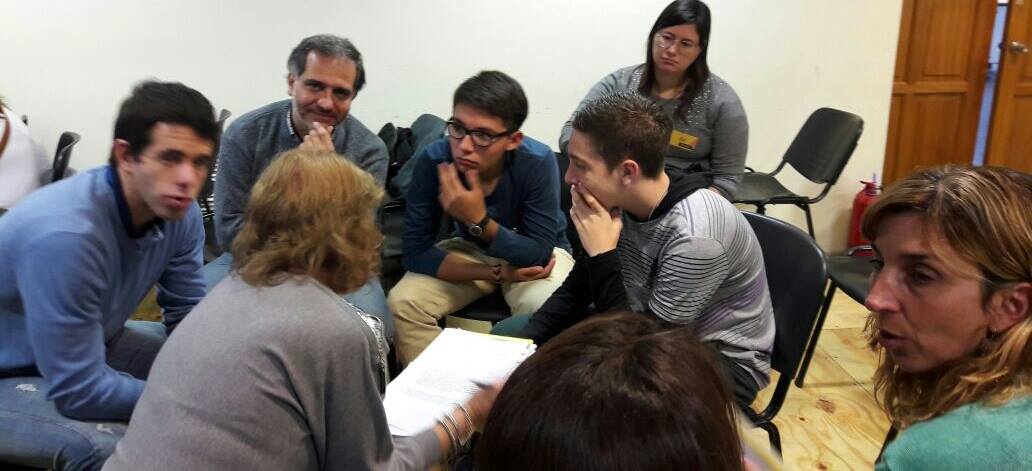
Educating towards fraternity: a collective challenge
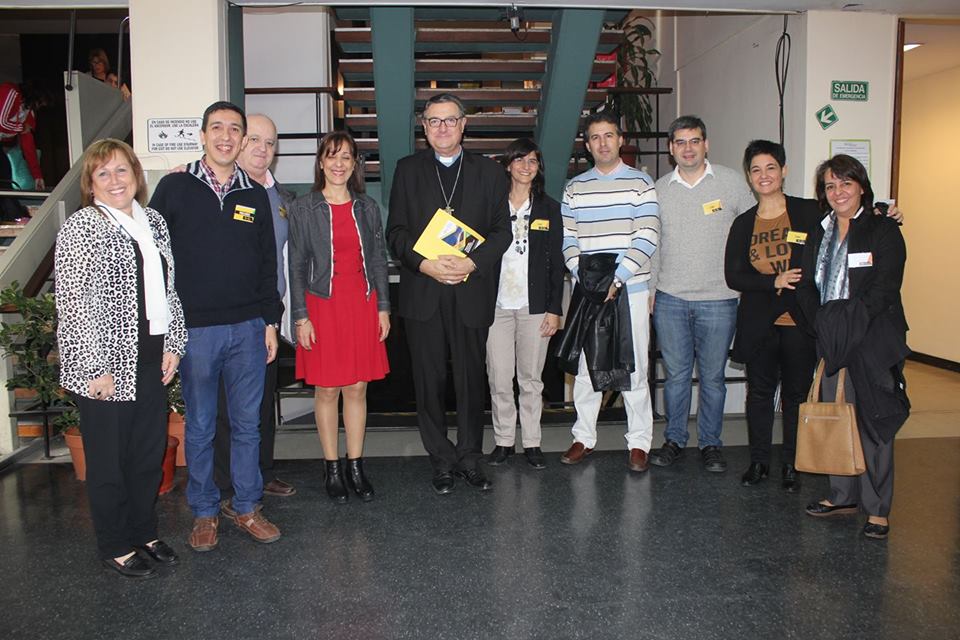 «This is not just a meeting for educators», one of the participants commented with emotion. «I am no longer the same person I was when I got here». «Fraternity, as a lifeoption is the blood that must run in my veins.» There were some impressions of the many participants from countries of the Southern Conethat gathered from 12-14 May in Rosario, Argentina. Besides these, about 500 educators took part directly via streaming during the various moments dedicated to the theme of the Meeting: “The service to learning service,” “Education for a fraternal economy,” “Inter-generational dialogue, and “Empathy and intercultural Workshop” to name a few. The first day started with the visit of the Governor of Santa Fe, Miguel Lifschitz, and authorities of the other local institutions. The Archbishop of Rosario, Bishop Martin, gave a speech the day after and started by affirming that the word,“fraternity,” says that we are not alone.«In this country God brought us together and the challenge we had before is called coexistence…You are not only diffusing theories but you start off from life, and concrete facts.» What came to light was not only the life of fraternity between the students and with their teachers but also between directors and inspectors, proposing innovations for the benefit of the entire educational community. The schools with artistic orientations and which had adhered to the objective of brotherhood gave their testimonials on how interculturality is lived through art, demonstrating new ways of interpreting life as artists. The workshop on inclusion helped to clarify the concept of how “the other, with all his differences is a gift.”
«This is not just a meeting for educators», one of the participants commented with emotion. «I am no longer the same person I was when I got here». «Fraternity, as a lifeoption is the blood that must run in my veins.» There were some impressions of the many participants from countries of the Southern Conethat gathered from 12-14 May in Rosario, Argentina. Besides these, about 500 educators took part directly via streaming during the various moments dedicated to the theme of the Meeting: “The service to learning service,” “Education for a fraternal economy,” “Inter-generational dialogue, and “Empathy and intercultural Workshop” to name a few. The first day started with the visit of the Governor of Santa Fe, Miguel Lifschitz, and authorities of the other local institutions. The Archbishop of Rosario, Bishop Martin, gave a speech the day after and started by affirming that the word,“fraternity,” says that we are not alone.«In this country God brought us together and the challenge we had before is called coexistence…You are not only diffusing theories but you start off from life, and concrete facts.» What came to light was not only the life of fraternity between the students and with their teachers but also between directors and inspectors, proposing innovations for the benefit of the entire educational community. The schools with artistic orientations and which had adhered to the objective of brotherhood gave their testimonials on how interculturality is lived through art, demonstrating new ways of interpreting life as artists. The workshop on inclusion helped to clarify the concept of how “the other, with all his differences is a gift.” 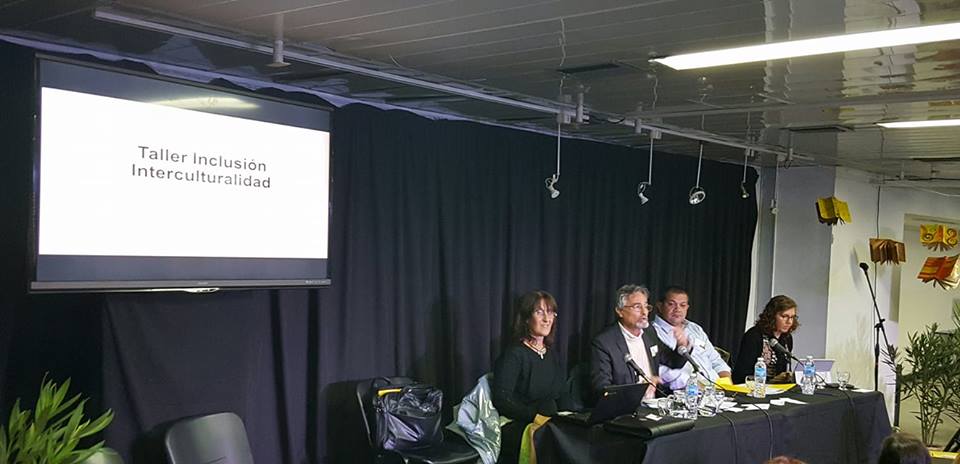 The theme on education and training outside the school environment, which is a life-learning process focusing on brotherhood as its methodology, indicated a pathway which consists in going out towards the peripheries with a programme centered on values. The experiences on the relationship between education and technology were presented as the great opportunity to achieve fraternity, setting the relationship between students and that with the teachers on the same level, and as the possibility to bring out the best in the others, and learn from everyone. Also many educational practices that had produced excellent results were presented, and concerned the potential of body language and the golden rule in the field of sports as a way of building bridges in such important fields.
The theme on education and training outside the school environment, which is a life-learning process focusing on brotherhood as its methodology, indicated a pathway which consists in going out towards the peripheries with a programme centered on values. The experiences on the relationship between education and technology were presented as the great opportunity to achieve fraternity, setting the relationship between students and that with the teachers on the same level, and as the possibility to bring out the best in the others, and learn from everyone. Also many educational practices that had produced excellent results were presented, and concerned the potential of body language and the golden rule in the field of sports as a way of building bridges in such important fields.  All this can be summarized in Chiara Lubich’s educational proposal to be applied in many educational realities worldwide, inspired by love for the more vulnerable, “ignorant,” abandoned people who are excluded from the system. It is a path that identifies the presence of Jesus Crucified and Abandoned: an abandonment that found its answer of love in the Resurrection, which is thus a key to building fraternity right in the heart of the “divide.” «I leave with my heart full of hope knowing that this paradigm exists, knowing that there are a lot of people working to combat verticality, the lack of mutual listening, the widespread mentality for which knowledge is only in the hands of the teacher, the adult – said Enzo of Chacabuco, specialized in music therapy. – This is a different road. I hope the second edition of this Convention will be organised soon.» Source: SiteSouthern Cone
All this can be summarized in Chiara Lubich’s educational proposal to be applied in many educational realities worldwide, inspired by love for the more vulnerable, “ignorant,” abandoned people who are excluded from the system. It is a path that identifies the presence of Jesus Crucified and Abandoned: an abandonment that found its answer of love in the Resurrection, which is thus a key to building fraternity right in the heart of the “divide.” «I leave with my heart full of hope knowing that this paradigm exists, knowing that there are a lot of people working to combat verticality, the lack of mutual listening, the widespread mentality for which knowledge is only in the hands of the teacher, the adult – said Enzo of Chacabuco, specialized in music therapy. – This is a different road. I hope the second edition of this Convention will be organised soon.» Source: SiteSouthern Cone
Bartholomew I Awarded Honorary Degree
On May 31, 2017, the University of Tubingen, Germany, conferred an honorary doctorate to the Ecumenical Patriarch of Constantinople, Bartholomew I. The degree honours his long years of work in promoting understanding between the Orthodox Church and the Protestant Churches; his efforts for the protection of the Creation; for Europe and for dialogue among religions. The University is one of the oldest in Germany, founded in 1477 and stands among the most internationally reputable centres of study for students of Medicine, the Natural Sciences, Human Sciences. It currently serves some 28,500 students.
Australia: Welcoming migrants from Syria and Iraq
World Environment Day
June 5: World Environment Day is celebrated (W.E.D., World Environment Day). The date was chosen by the United Nations to remind the Stockholm Conference on the Environment in 1972, where the United Nations Environment Program was drafted. The Day has become an occasion to stimulate global attention and knowledge of environmental issues. It is also an opportunity to reflect on the health of the Earth, our common home, but also to actively promote a healthy co-existence among all its inhabitants.
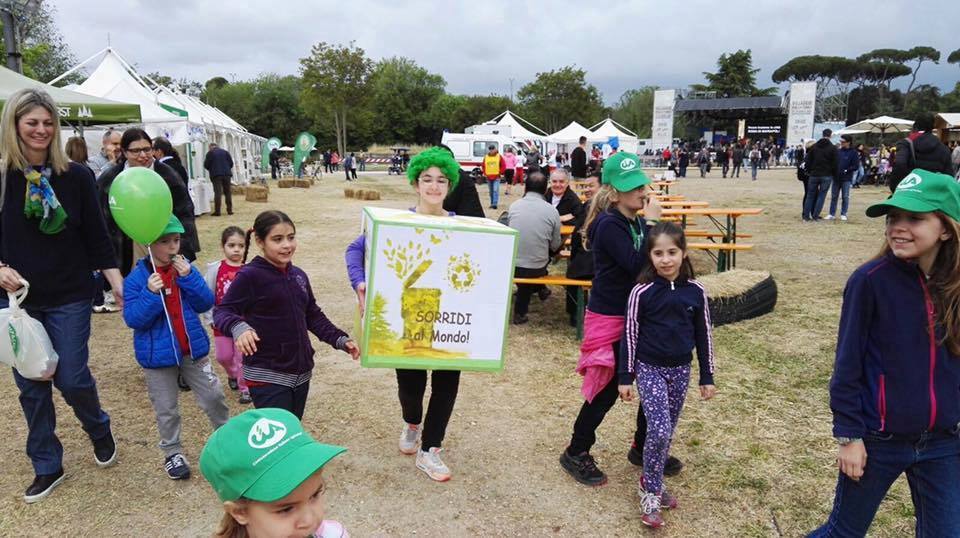
A task for each day to protect the environment
 At a time when many are panicking over Blue Whale that has gone viral, finally a different kind of equally contagious game…and a much more positive one! On the web or in a more traditional way, with paper and scissors, there is a game that helps to keep the planet healthy and liveable. First move: click here (a move to the web is required for traditionalists too!). At this point, the indisputable star, the “Dice” or Cube, will remind us every time we take a chance with the most famous game of chance ever made: six possibilities and a bit of luck. Whether you cast it online or you cut it out and build it with your own hands (good for smaller children), this new Cube offers much more. Each side is a small (but great) invitation to respect the environments of the earth on which we live – and its inhabitants. A small compendium of ecology and social relations good for any age, promoted by the EcoOne Ecological/Cultural Project that has spread to 180 countries and recently put experts, researchers and professionals online introducing Environmental topics. There’s only one difference: it’s no theory, but an immediate invitation act each and every day. For example? Well, one side of the dice says: “Discover unbelievable things!”. The world is full of incredible things, from the majestic heights of snow-capped mountains to the depths of the endless seas, from the countless variety of plants to every living thing, even the most tiny things that share the same planet. Every detail in nature fills us with astonishment and wonder, and inspires gratitude for the Creator. What can I do this day to see the world with such eyes?
At a time when many are panicking over Blue Whale that has gone viral, finally a different kind of equally contagious game…and a much more positive one! On the web or in a more traditional way, with paper and scissors, there is a game that helps to keep the planet healthy and liveable. First move: click here (a move to the web is required for traditionalists too!). At this point, the indisputable star, the “Dice” or Cube, will remind us every time we take a chance with the most famous game of chance ever made: six possibilities and a bit of luck. Whether you cast it online or you cut it out and build it with your own hands (good for smaller children), this new Cube offers much more. Each side is a small (but great) invitation to respect the environments of the earth on which we live – and its inhabitants. A small compendium of ecology and social relations good for any age, promoted by the EcoOne Ecological/Cultural Project that has spread to 180 countries and recently put experts, researchers and professionals online introducing Environmental topics. There’s only one difference: it’s no theory, but an immediate invitation act each and every day. For example? Well, one side of the dice says: “Discover unbelievable things!”. The world is full of incredible things, from the majestic heights of snow-capped mountains to the depths of the endless seas, from the countless variety of plants to every living thing, even the most tiny things that share the same planet. Every detail in nature fills us with astonishment and wonder, and inspires gratitude for the Creator. What can I do this day to see the world with such eyes?  Another toss, another side: “Smile at the world!” Nothing better than positive actions makes the world a better place to live in. Whether its recycling trash or reusing unused objects, not wasting water or turning off the lights, carpooling to reduce gas emissions or caring for a small public garden – it’s enough to think that each and each action has a consequence. The next side: “We’re all connected!” Each thing on the planet is in relationship with all the rest: a factory that puffs smoke, a contaminated water flow, a plastic bottle forgotten on the shore. Every great or small action has a consequence, for good or for bad. How can I build positive connections? The game goes on and never ends: “Now is the moment”. How many times have we said, “I’ll do it tomorrow,” but then did nothing? The world can’t stand by and wait while we keep putting it off! I have to act now and begin again every time I fall. “Only what you need!” Just like a plant that draws from the ground only what it needs to grow, so must we learn to distinguish between needs and desires, reducing to the maximum the negative impact of our actions and amplifying the positive. And finally, “Everything is a gift”. How can I protect everything around me so that future generations can enjoy it? Fortunately die-hard players are many. “Only what you need” was the Earth Cube’s tip for today. And so my day began with a “timed” shower – getting out of the shower before the timer went off – then recycling and reusing paper at work, followed by a lighter lunch than usual. Okay, maybe they’re just small things, but at least I kept going at 100%!” (San Paolo, Brazil) “We’re all interconnected!” is what I read on the Cube today, after tossing it. I remembered that I had left the lights on in the house, so I went back and turned them of before going out for the night. I also turned off the computer. The little things I do really do have an impact on others!” (Nairobi, Kenya) “The Time Is Now“ … Let’s roll the dice! Never has a game been so serious and fascinating at the same time.
Another toss, another side: “Smile at the world!” Nothing better than positive actions makes the world a better place to live in. Whether its recycling trash or reusing unused objects, not wasting water or turning off the lights, carpooling to reduce gas emissions or caring for a small public garden – it’s enough to think that each and each action has a consequence. The next side: “We’re all connected!” Each thing on the planet is in relationship with all the rest: a factory that puffs smoke, a contaminated water flow, a plastic bottle forgotten on the shore. Every great or small action has a consequence, for good or for bad. How can I build positive connections? The game goes on and never ends: “Now is the moment”. How many times have we said, “I’ll do it tomorrow,” but then did nothing? The world can’t stand by and wait while we keep putting it off! I have to act now and begin again every time I fall. “Only what you need!” Just like a plant that draws from the ground only what it needs to grow, so must we learn to distinguish between needs and desires, reducing to the maximum the negative impact of our actions and amplifying the positive. And finally, “Everything is a gift”. How can I protect everything around me so that future generations can enjoy it? Fortunately die-hard players are many. “Only what you need” was the Earth Cube’s tip for today. And so my day began with a “timed” shower – getting out of the shower before the timer went off – then recycling and reusing paper at work, followed by a lighter lunch than usual. Okay, maybe they’re just small things, but at least I kept going at 100%!” (San Paolo, Brazil) “We’re all interconnected!” is what I read on the Cube today, after tossing it. I remembered that I had left the lights on in the house, so I went back and turned them of before going out for the night. I also turned off the computer. The little things I do really do have an impact on others!” (Nairobi, Kenya) “The Time Is Now“ … Let’s roll the dice! Never has a game been so serious and fascinating at the same time.
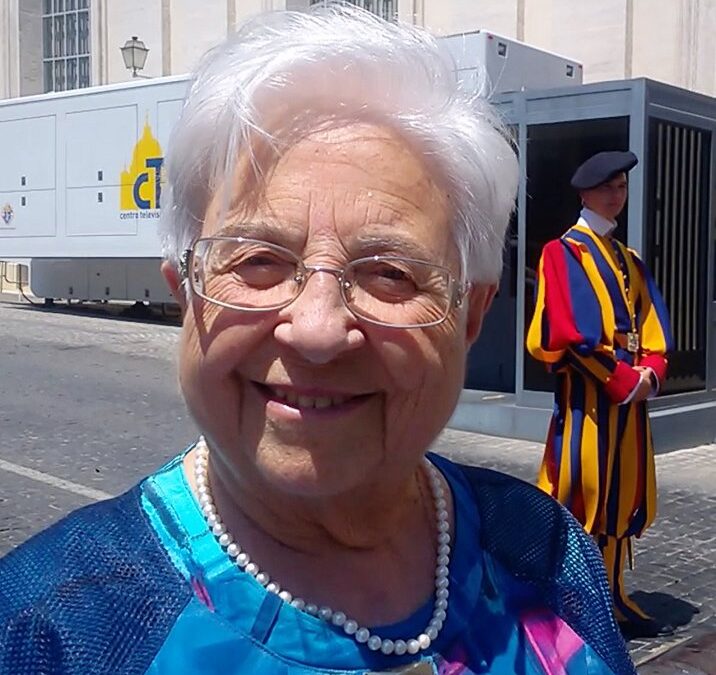
“Thank you for working for Christian unity”
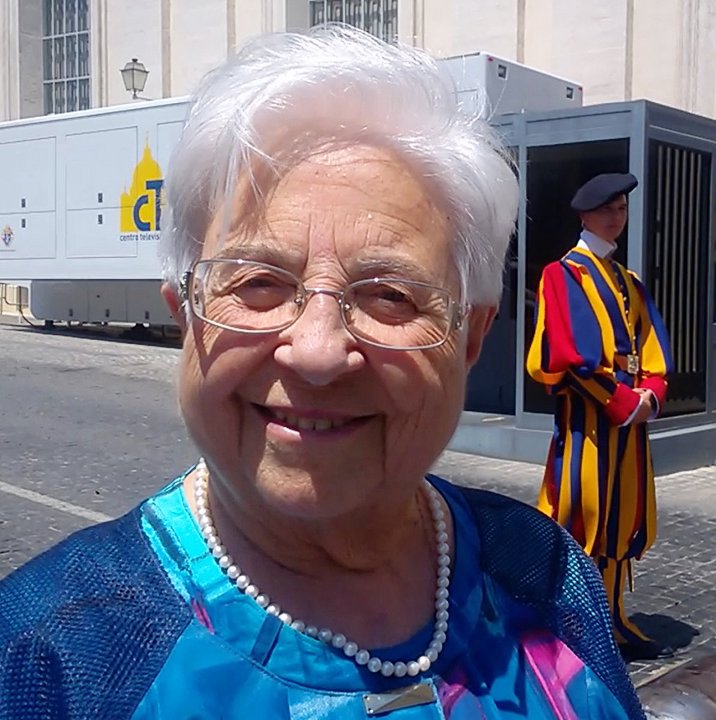 When greeting the participants, the Pope said: “Thank you for what you do, working for Christian unity all together as the Lord wishes. Let us walk together, let us help the poor together, charity together, education together. All together”. He continued: “And may theologians carry out their work and help us too. But we, always walking, never still, never still… and together. This is what I wish for, and I thank you because I know you do this.” Maria Voce, who was among the evangelical leaders invited for this audience, comments: “It was a brief but a personal encounter; the Pope greeted each one of us. We were in the Consistory Hall, and he wanted us to be in the form of a circle to greet each one of us personally. Then he just stopped with us for a couple of minutes; he wanted to show his gratitude for this visit. He was pleased about it; he felt it as a sign of esteem and affection. He expressed his desire that we walk together. He said that this ecumenism is walking together and he thanked the participants because, he said ‘I know that you do this’. He urged us to keep on walking together. Theologians will help us understand the differences and find a way to overcome them, but the most important thing is that we walk together because it is God’s will that we all be one. This was his message. He was very relaxed and very pleased to meet everyone.” Pope Francis said that he would meet the participants in the afternoon at Circus Maximus. On the eve of Pentecoste, an event is being organized by the International Catholic Charismatic Renewal Services and the Catholic Fraternity to celebrate the Catholic Charismatic Renewal Golden Jubilee. Press Release
When greeting the participants, the Pope said: “Thank you for what you do, working for Christian unity all together as the Lord wishes. Let us walk together, let us help the poor together, charity together, education together. All together”. He continued: “And may theologians carry out their work and help us too. But we, always walking, never still, never still… and together. This is what I wish for, and I thank you because I know you do this.” Maria Voce, who was among the evangelical leaders invited for this audience, comments: “It was a brief but a personal encounter; the Pope greeted each one of us. We were in the Consistory Hall, and he wanted us to be in the form of a circle to greet each one of us personally. Then he just stopped with us for a couple of minutes; he wanted to show his gratitude for this visit. He was pleased about it; he felt it as a sign of esteem and affection. He expressed his desire that we walk together. He said that this ecumenism is walking together and he thanked the participants because, he said ‘I know that you do this’. He urged us to keep on walking together. Theologians will help us understand the differences and find a way to overcome them, but the most important thing is that we walk together because it is God’s will that we all be one. This was his message. He was very relaxed and very pleased to meet everyone.” Pope Francis said that he would meet the participants in the afternoon at Circus Maximus. On the eve of Pentecoste, an event is being organized by the International Catholic Charismatic Renewal Services and the Catholic Fraternity to celebrate the Catholic Charismatic Renewal Golden Jubilee. Press Release
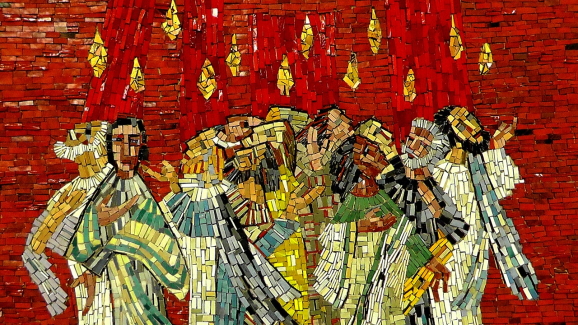
The Holy Spirit: the unknown God
 “The Holy Spirit can do incredible things! Just look at the Apostles! Jesus had founded the Church on the cross, yet they were bewildered, hesitant and scared, hiding behind locked doors. Then the Holy Spirit came down upon them, and filled them with courage. They went out into the streets and squares, and spoke with such fire, that people thought they were drunk. Later, they bravely faced persecution and set out to bring the Good News to the whole world. This is just one important example of what the Holy Spirit can do – not to mention all that he has done in the Church throughout her twenty centuries of life: miraculous outpourings of light, grace, transformation, and renewal. Think of the Councils, and of the various spiritual movements he raised up, always at just the right moment…. Look at the Focolare. Even in our own small way, didn’t something of this sort happen to us, because of the fact that the Holy Spirit bestowed one of his charisms on us? Before this happened to change our lives, weren’t we just like all those people who don’t see beyond their own neighbourhood, whose thoughts and affections are limited almost exclusively to the small circle of their family? … If, to a greater or lesser degree, things around us have changed for the better, this is the work of the Holy Spirit, who renews the face of the earth. Yes, for his task is to instil drive and motivation; to enable grace – the divine life Jesus has obtained for us – to be at work in our lives; to give us strength and courage. Since we owe him so much, he should hold a much more prominent place in our spiritual lives. … May this thought shed light on our path in the days ahead: Let’s honour the Holy Spirit, by loving, respecting, and serving every neighbour. (15/9/1983) «Is the Holy Spirit in us? Does he speak to our heart? Let’s become attentive and assiduous pupils of this great Teacher. Let’s pay great attention to his mysterious and very delicate signs. Let’s not let any of what might be his inspirations come in vain … Let’s remember that the ideas that come to the mind of a person who has set out to love are often inspirations of the Holy Spirit. Why does he give us them? For our good and for the good of the world through us, so that we can take forward our revolution of love. Pay attention then, every idea, especially if we think it could be an inspiration, let’s feel that it is a responsibility, to take hold of and act upon. By doing this we will have found the best way of loving, honouring and thanking the Holy Spirit. (1/9/1983) Chiara Lubich, da LA VITA UN VIAGGIO – Città Nuova, 1984, pagg. 125-128
“The Holy Spirit can do incredible things! Just look at the Apostles! Jesus had founded the Church on the cross, yet they were bewildered, hesitant and scared, hiding behind locked doors. Then the Holy Spirit came down upon them, and filled them with courage. They went out into the streets and squares, and spoke with such fire, that people thought they were drunk. Later, they bravely faced persecution and set out to bring the Good News to the whole world. This is just one important example of what the Holy Spirit can do – not to mention all that he has done in the Church throughout her twenty centuries of life: miraculous outpourings of light, grace, transformation, and renewal. Think of the Councils, and of the various spiritual movements he raised up, always at just the right moment…. Look at the Focolare. Even in our own small way, didn’t something of this sort happen to us, because of the fact that the Holy Spirit bestowed one of his charisms on us? Before this happened to change our lives, weren’t we just like all those people who don’t see beyond their own neighbourhood, whose thoughts and affections are limited almost exclusively to the small circle of their family? … If, to a greater or lesser degree, things around us have changed for the better, this is the work of the Holy Spirit, who renews the face of the earth. Yes, for his task is to instil drive and motivation; to enable grace – the divine life Jesus has obtained for us – to be at work in our lives; to give us strength and courage. Since we owe him so much, he should hold a much more prominent place in our spiritual lives. … May this thought shed light on our path in the days ahead: Let’s honour the Holy Spirit, by loving, respecting, and serving every neighbour. (15/9/1983) «Is the Holy Spirit in us? Does he speak to our heart? Let’s become attentive and assiduous pupils of this great Teacher. Let’s pay great attention to his mysterious and very delicate signs. Let’s not let any of what might be his inspirations come in vain … Let’s remember that the ideas that come to the mind of a person who has set out to love are often inspirations of the Holy Spirit. Why does he give us them? For our good and for the good of the world through us, so that we can take forward our revolution of love. Pay attention then, every idea, especially if we think it could be an inspiration, let’s feel that it is a responsibility, to take hold of and act upon. By doing this we will have found the best way of loving, honouring and thanking the Holy Spirit. (1/9/1983) Chiara Lubich, da LA VITA UN VIAGGIO – Città Nuova, 1984, pagg. 125-128
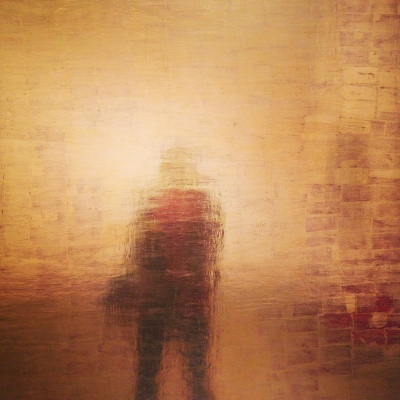
Resurrection Behind Bars
 The last stop on my visit to Jordan was to a women’s jail on the outskirts of Amman. At the visitors security entrance, Omar, the friend who was accompanying me, was asked to remove his watch and sunglasses. Mine were also likely to be taken away, but I let them try them on and the young guard realized that without them I could hardly see. We reached the first waiting room on the other side of a long courtyard. The day was already summery. We got through the umpteenth security checkpoint and submitted the paper with the name of the person we wanted to meet. Two young women were waiting for someone in the waiting room. Who are you waiting for, a sister…or a mother? There was also a man in his fifties with Arab features. He was fixing his ragged shoes as he also waited. My friend went to sit down, but the chair broke. Any other time and in any other place, everyone would have burst out laughing at such a sight. But there in that waiting room no one dared. They were all taken by their pain. The climate in that room was like the one you feel when you’re about to get some news from a doctor about a very sick friend. The scratchy voice over the loudspeaker and the way the old man jumped to his feet, made me realize that it was his turn. Soon after it was ours. There was a narrow corridor. All the cells had a small window on the side with those classic old-fashioned telephones on each side of the pane. Our friend was unexpectedly joyful, gesticulating and quite excited to see us. She spoke into the receiver and let us know that we could ask to meet in another room, face-to-face. It was Easter Day and Christians were allowed to receive visitors. We exited the facility and re-entered through the official entrance. We had to show our passports again, answer questions and the name of the person we wanted to see. We waited in a hall, helping out the employees to stuff documents in numbered files. It was a long wait. Perhaps for her it was also a long road, made of opening and closing doors. She finally arrived. She could have been around forty years old, South American and quite jovial. “My cellmates will be so jealous!” She was a sweet person. She acknowledged she had made some mistakes. She would be released in a few months and was counting down the days on a calendar she had constructed. During her two years in jail, she had become a grandmother and hadn’t yet met her grandson. Her two oldest children have left school to work, and she doesn’t have a husband. “When I go back they’ll blame me, and it’s only right that they should be angry with me. I manage to hear from them on the phone once in a while. My wish was to open an orphanage for street children. Life is hard in here, at times I thought about ending to it all. You become bad. But I can’t; when they become angry or beat me, I stay calm. I just can’t bring myself to react. I have friends in here, some for many years. Fernanda’s been here for eight years, but she’ll be let out soon. She’s 29 years old and dying with a serious illness. She came in very young, for a more stupid offense than mine. She went and swallowed a few rolls of that junk. I thank God, in spite of it all. I feel He is close to me, and that’s why I feel privileged.” We said goodbye with a hug, and it’s difficult to describe what I experienced at that moment. I wanted it to be a small way of taking on some of her suffering and pain. Perhaps on such a sunny day, at least a ray of His Love had shone through the prison bars and gray walls. It’s a special Easter morning and I can’t but thank God for what he made me live: resurrection and true freedom. I met a free woman in jail, because she was so aware of God’s love for her. (Ago Spolti, Italy)
The last stop on my visit to Jordan was to a women’s jail on the outskirts of Amman. At the visitors security entrance, Omar, the friend who was accompanying me, was asked to remove his watch and sunglasses. Mine were also likely to be taken away, but I let them try them on and the young guard realized that without them I could hardly see. We reached the first waiting room on the other side of a long courtyard. The day was already summery. We got through the umpteenth security checkpoint and submitted the paper with the name of the person we wanted to meet. Two young women were waiting for someone in the waiting room. Who are you waiting for, a sister…or a mother? There was also a man in his fifties with Arab features. He was fixing his ragged shoes as he also waited. My friend went to sit down, but the chair broke. Any other time and in any other place, everyone would have burst out laughing at such a sight. But there in that waiting room no one dared. They were all taken by their pain. The climate in that room was like the one you feel when you’re about to get some news from a doctor about a very sick friend. The scratchy voice over the loudspeaker and the way the old man jumped to his feet, made me realize that it was his turn. Soon after it was ours. There was a narrow corridor. All the cells had a small window on the side with those classic old-fashioned telephones on each side of the pane. Our friend was unexpectedly joyful, gesticulating and quite excited to see us. She spoke into the receiver and let us know that we could ask to meet in another room, face-to-face. It was Easter Day and Christians were allowed to receive visitors. We exited the facility and re-entered through the official entrance. We had to show our passports again, answer questions and the name of the person we wanted to see. We waited in a hall, helping out the employees to stuff documents in numbered files. It was a long wait. Perhaps for her it was also a long road, made of opening and closing doors. She finally arrived. She could have been around forty years old, South American and quite jovial. “My cellmates will be so jealous!” She was a sweet person. She acknowledged she had made some mistakes. She would be released in a few months and was counting down the days on a calendar she had constructed. During her two years in jail, she had become a grandmother and hadn’t yet met her grandson. Her two oldest children have left school to work, and she doesn’t have a husband. “When I go back they’ll blame me, and it’s only right that they should be angry with me. I manage to hear from them on the phone once in a while. My wish was to open an orphanage for street children. Life is hard in here, at times I thought about ending to it all. You become bad. But I can’t; when they become angry or beat me, I stay calm. I just can’t bring myself to react. I have friends in here, some for many years. Fernanda’s been here for eight years, but she’ll be let out soon. She’s 29 years old and dying with a serious illness. She came in very young, for a more stupid offense than mine. She went and swallowed a few rolls of that junk. I thank God, in spite of it all. I feel He is close to me, and that’s why I feel privileged.” We said goodbye with a hug, and it’s difficult to describe what I experienced at that moment. I wanted it to be a small way of taking on some of her suffering and pain. Perhaps on such a sunny day, at least a ray of His Love had shone through the prison bars and gray walls. It’s a special Easter morning and I can’t but thank God for what he made me live: resurrection and true freedom. I met a free woman in jail, because she was so aware of God’s love for her. (Ago Spolti, Italy)
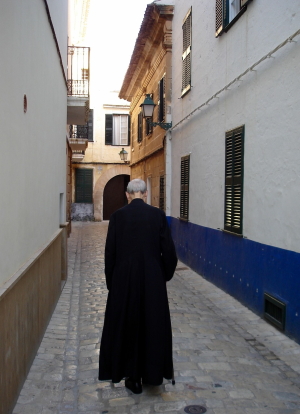
Gospel living: “Now I send you”
 Baptism “It was almost lunchtime when a man knocked on the door of the parish to schedule a baptism. Since he wasn’t a parishioner, I had some questions. His situation was complex: his partner had given birth to his son, but his sister was the one who insisted that the child be baptized. I tried to take down his details quickly and said goodbye. As we were going out, I thought that I had treated him in too hurried a way. Having his address, and without thinking too much, I went to visit him, in an apartment that was very much in disarray. He was surprised and even alarmed: were there problems with the baptism? I reassured him that it was only to check that I had gotten down all the details. He and his partner opened up and invited me to join them for a modest lunch. So I got to know about people who are somewhat excluded, but above all it was a reminder of my only right: to be of service to others.” (K.L. – Poland) Testing ground “I manage a gift shop in a popular part of the city. For me, every person who comes into the store is more than a customer. I consider the relationship important, beyond the fact that I need to make a sale. There are some who come at times to confide their problems. I listen, and if I can, try to tell them mine. My father makes fun of me a bit, saying, ‘It seems more like a confessional than a shop.’ The fact is, for me work is a testing ground for my being Christian.” (Rachele – Italy) Superintendent “I work as the superintendent for two buildings, where people used to know each other only by their last names. Looking for chances to build relationships, I started telling a couple about life in the parish. The husband, despite not being a churchgoer, appreciated the gesture. I met someone from Thailand who thanked me by giving me chocolates. I then invited everyone to a barbecue: it was a successful evening that we repeated other times as well. Every once in a while I’d offer people returning from work a cup of coffee. These were simple gestures, but little by little some people felt they could confide in me more personal things. Like the tenant who considered prayer a waste of time. When I promised him to pray for him, he answered, ‘No one has ever spoken to me like this before now. I won’t forget it.’ An Italian couple, who were moving back to their country, before leaving invited all their neighbors to try some Italian specialties.” (Maria Rosa – Switzerland) Garbage “Coming out of school, I came across a dog on the sidewalk who was opening and destroying bags of garbage in search of food. I kept walking without thinking much of it, but something inside of me urged me to do something for others. Even though I was embarrassed, I went back and put the bags where they belonged. I had just turned the corner when I saw the garbage truck coming in the distance. I was happy because in our area it sometimes happens that the garbage collectors don’t pick everything up if they find things a mess.” (M. B. – Argentina)
Baptism “It was almost lunchtime when a man knocked on the door of the parish to schedule a baptism. Since he wasn’t a parishioner, I had some questions. His situation was complex: his partner had given birth to his son, but his sister was the one who insisted that the child be baptized. I tried to take down his details quickly and said goodbye. As we were going out, I thought that I had treated him in too hurried a way. Having his address, and without thinking too much, I went to visit him, in an apartment that was very much in disarray. He was surprised and even alarmed: were there problems with the baptism? I reassured him that it was only to check that I had gotten down all the details. He and his partner opened up and invited me to join them for a modest lunch. So I got to know about people who are somewhat excluded, but above all it was a reminder of my only right: to be of service to others.” (K.L. – Poland) Testing ground “I manage a gift shop in a popular part of the city. For me, every person who comes into the store is more than a customer. I consider the relationship important, beyond the fact that I need to make a sale. There are some who come at times to confide their problems. I listen, and if I can, try to tell them mine. My father makes fun of me a bit, saying, ‘It seems more like a confessional than a shop.’ The fact is, for me work is a testing ground for my being Christian.” (Rachele – Italy) Superintendent “I work as the superintendent for two buildings, where people used to know each other only by their last names. Looking for chances to build relationships, I started telling a couple about life in the parish. The husband, despite not being a churchgoer, appreciated the gesture. I met someone from Thailand who thanked me by giving me chocolates. I then invited everyone to a barbecue: it was a successful evening that we repeated other times as well. Every once in a while I’d offer people returning from work a cup of coffee. These were simple gestures, but little by little some people felt they could confide in me more personal things. Like the tenant who considered prayer a waste of time. When I promised him to pray for him, he answered, ‘No one has ever spoken to me like this before now. I won’t forget it.’ An Italian couple, who were moving back to their country, before leaving invited all their neighbors to try some Italian specialties.” (Maria Rosa – Switzerland) Garbage “Coming out of school, I came across a dog on the sidewalk who was opening and destroying bags of garbage in search of food. I kept walking without thinking much of it, but something inside of me urged me to do something for others. Even though I was embarrassed, I went back and put the bags where they belonged. I had just turned the corner when I saw the garbage truck coming in the distance. I was happy because in our area it sometimes happens that the garbage collectors don’t pick everything up if they find things a mess.” (M. B. – Argentina)

Golden Jubilee of the Catholic Charismatic Renewal
 From May 31st to June 4th, events will be held in various parts of Rome to mark the 50th anniversary of the Charismatic Renewal, a Catholic ecclesial movement which came to life in 1967 in the United States, during a spiritual retreat with a group of twenty students from the University Duquesne Of Pittsburg, Pennsylvania. Since then, the movement has spread throughout the United States, Latin America, the Caribbean, India and Africa and Oceania. It has a strong presence in France and Italy, and it is growing in Eastern European countries. Through retreats, prayer meetings and “life seminars in the Spirit”, CCR spreads a Pentecostal lifestyle centred on the gifts of the Holy Spirit.
From May 31st to June 4th, events will be held in various parts of Rome to mark the 50th anniversary of the Charismatic Renewal, a Catholic ecclesial movement which came to life in 1967 in the United States, during a spiritual retreat with a group of twenty students from the University Duquesne Of Pittsburg, Pennsylvania. Since then, the movement has spread throughout the United States, Latin America, the Caribbean, India and Africa and Oceania. It has a strong presence in France and Italy, and it is growing in Eastern European countries. Through retreats, prayer meetings and “life seminars in the Spirit”, CCR spreads a Pentecostal lifestyle centred on the gifts of the Holy Spirit.
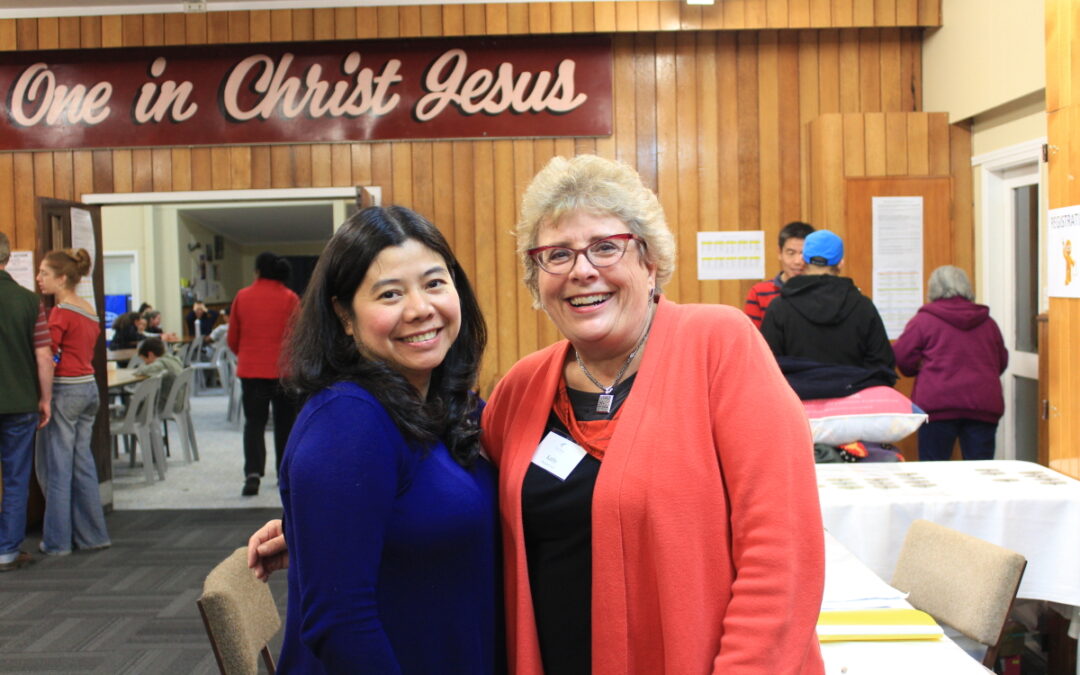
New Zealand: the warmth of Rotorua
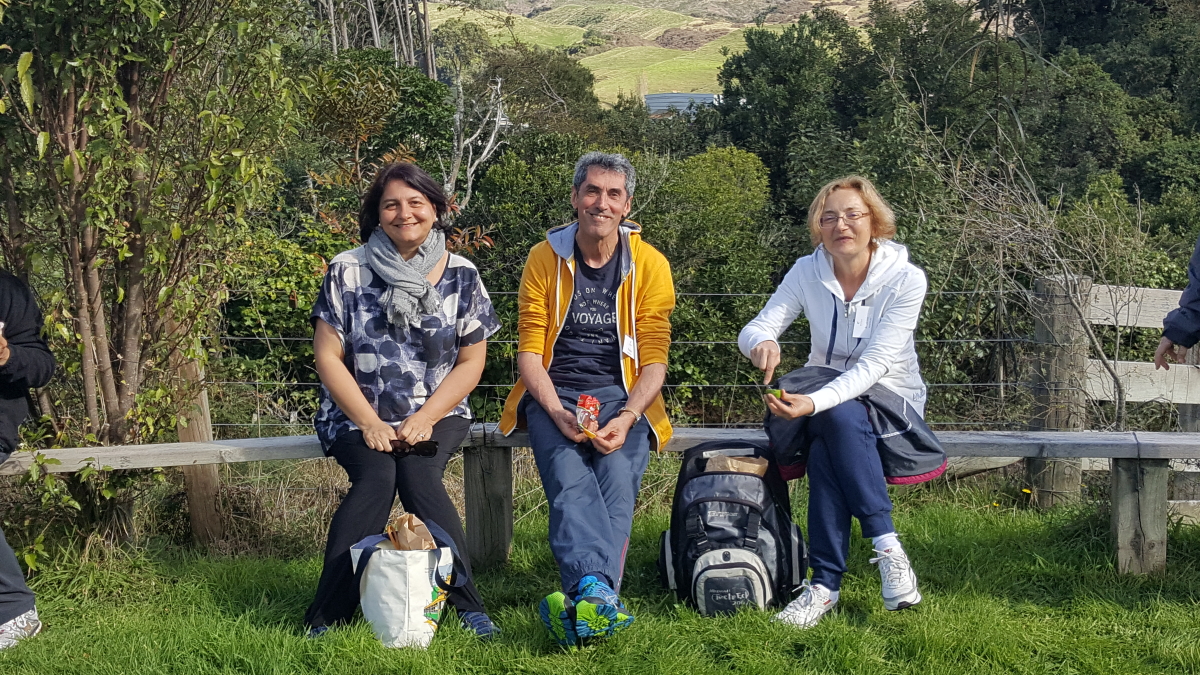 Lake Rotorua is the second biggest lake of the North Island of New Zealand, in the southern Pacific Ocean. Formed from the crater of a big volcano, active up to 240 thousand years ago, today it is a splendid canoe and kayak training ground. A tourist destination since the 19th century, here, as everywhere in the area, a strong smell of sulphur recalls the intense thermal activity which pushes boiling water out of the subsoil, forming pools of hot mud of the most incredible colours from apple green to yellow, cobalt lakes and a myriad of fumaroles. Nearby, the Lady Knox geyser erupts once a day venting out sprays of water and steam 20 metres high.
Lake Rotorua is the second biggest lake of the North Island of New Zealand, in the southern Pacific Ocean. Formed from the crater of a big volcano, active up to 240 thousand years ago, today it is a splendid canoe and kayak training ground. A tourist destination since the 19th century, here, as everywhere in the area, a strong smell of sulphur recalls the intense thermal activity which pushes boiling water out of the subsoil, forming pools of hot mud of the most incredible colours from apple green to yellow, cobalt lakes and a myriad of fumaroles. Nearby, the Lady Knox geyser erupts once a day venting out sprays of water and steam 20 metres high. 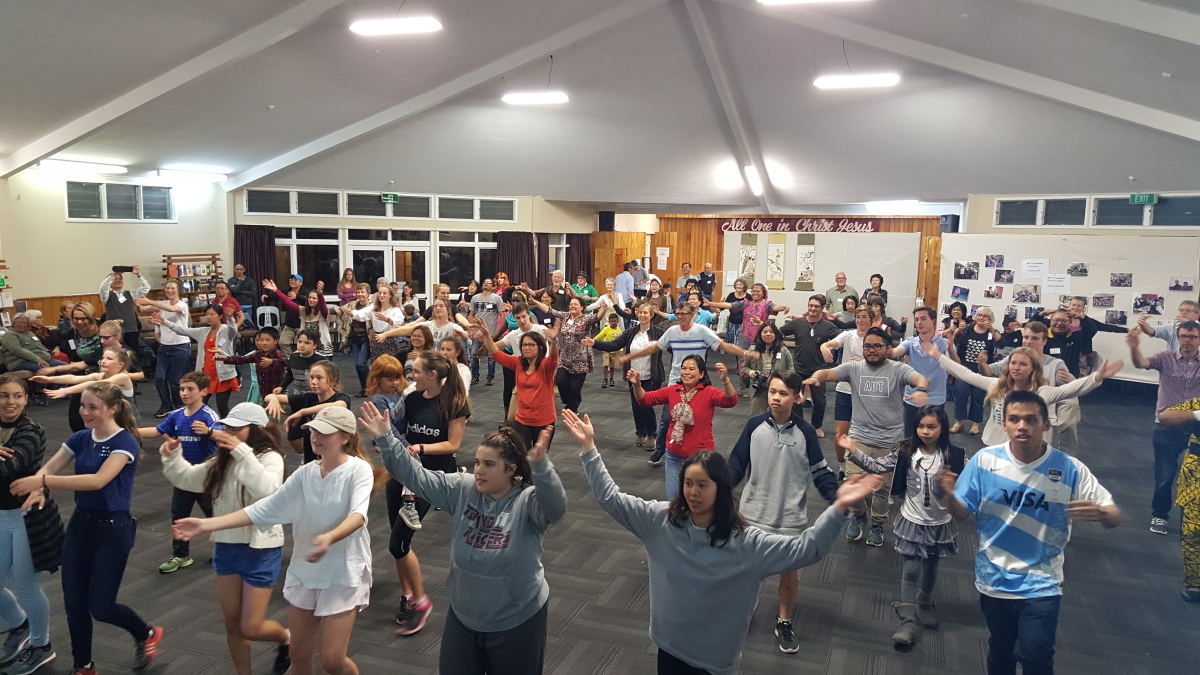 The same bubbly warmth was seen in the 170 participants of the Mariapolis hosted from 26 to 29 April 2017 in a camp situated right on the banks of the lake. Also families from the Philippines, India and Korea participated, including more than 50 teenagers and children, and some Italian visitors comprising of two married couples, Roberta & Stefano, and Beatrice & Franco. They wrote: “We departed from Sydney and after a flight of about four hours, we reached Auckland where we were joined by Yob and Bruno from Melbourne. After a journey of about four hours by car, we arrived in Rotorua. We spent three days there and we felt so enriched by the personal relationships created among all the families.
The same bubbly warmth was seen in the 170 participants of the Mariapolis hosted from 26 to 29 April 2017 in a camp situated right on the banks of the lake. Also families from the Philippines, India and Korea participated, including more than 50 teenagers and children, and some Italian visitors comprising of two married couples, Roberta & Stefano, and Beatrice & Franco. They wrote: “We departed from Sydney and after a flight of about four hours, we reached Auckland where we were joined by Yob and Bruno from Melbourne. After a journey of about four hours by car, we arrived in Rotorua. We spent three days there and we felt so enriched by the personal relationships created among all the families. 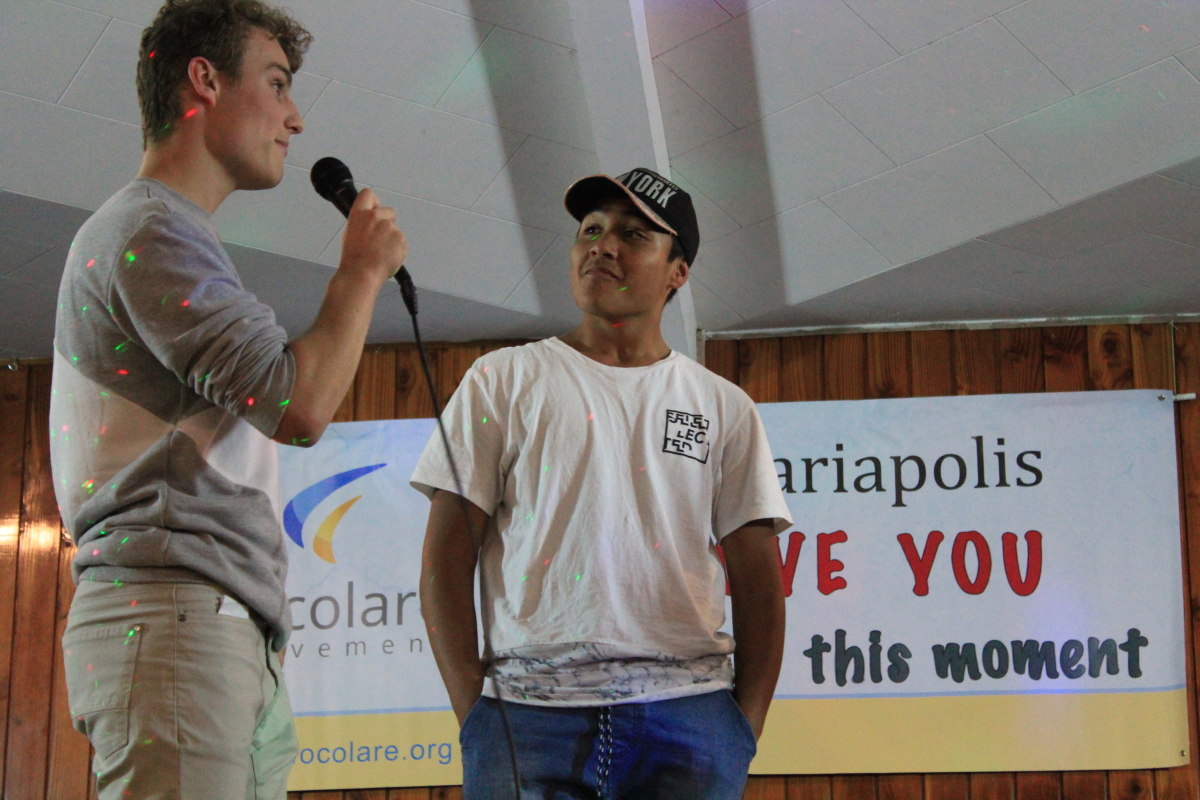 There were many experiences on the living the Gospel, a workshop on ecology, a much felt theme here, and one on the art of loving, some reflections of Chiara Lubich, and also on communication in the family and the education of children, not to mention the enchanting walks along the lake and in the forest.” It’s no wonder the North Island was chosen as one of the locations to shoot various scenes of Tolkien’s fantasy trilogy “The Lord of the Rings”. But the territory is particularly interesting also from an ethnological point of view. In fact the Island is inhabited by the biggest Maori communities of New Zealand. Up to 40 years ago the Maori language was spoken by a small number of people, but thanks to an integration program initiated by the government, today the culture and language of the Maori (about 20% of the population) have become an integral part of the nation. “During Mass,” Roberta and Stefano explained, “we recited some prayers in Maori, a people whose civilization and culture are well integrated.” After dinner, the Mariapolis included an evening program animated by children and young people which focused on an an interesting ecological theme regarding respect for creation and the environment.
There were many experiences on the living the Gospel, a workshop on ecology, a much felt theme here, and one on the art of loving, some reflections of Chiara Lubich, and also on communication in the family and the education of children, not to mention the enchanting walks along the lake and in the forest.” It’s no wonder the North Island was chosen as one of the locations to shoot various scenes of Tolkien’s fantasy trilogy “The Lord of the Rings”. But the territory is particularly interesting also from an ethnological point of view. In fact the Island is inhabited by the biggest Maori communities of New Zealand. Up to 40 years ago the Maori language was spoken by a small number of people, but thanks to an integration program initiated by the government, today the culture and language of the Maori (about 20% of the population) have become an integral part of the nation. “During Mass,” Roberta and Stefano explained, “we recited some prayers in Maori, a people whose civilization and culture are well integrated.” After dinner, the Mariapolis included an evening program animated by children and young people which focused on an an interesting ecological theme regarding respect for creation and the environment. 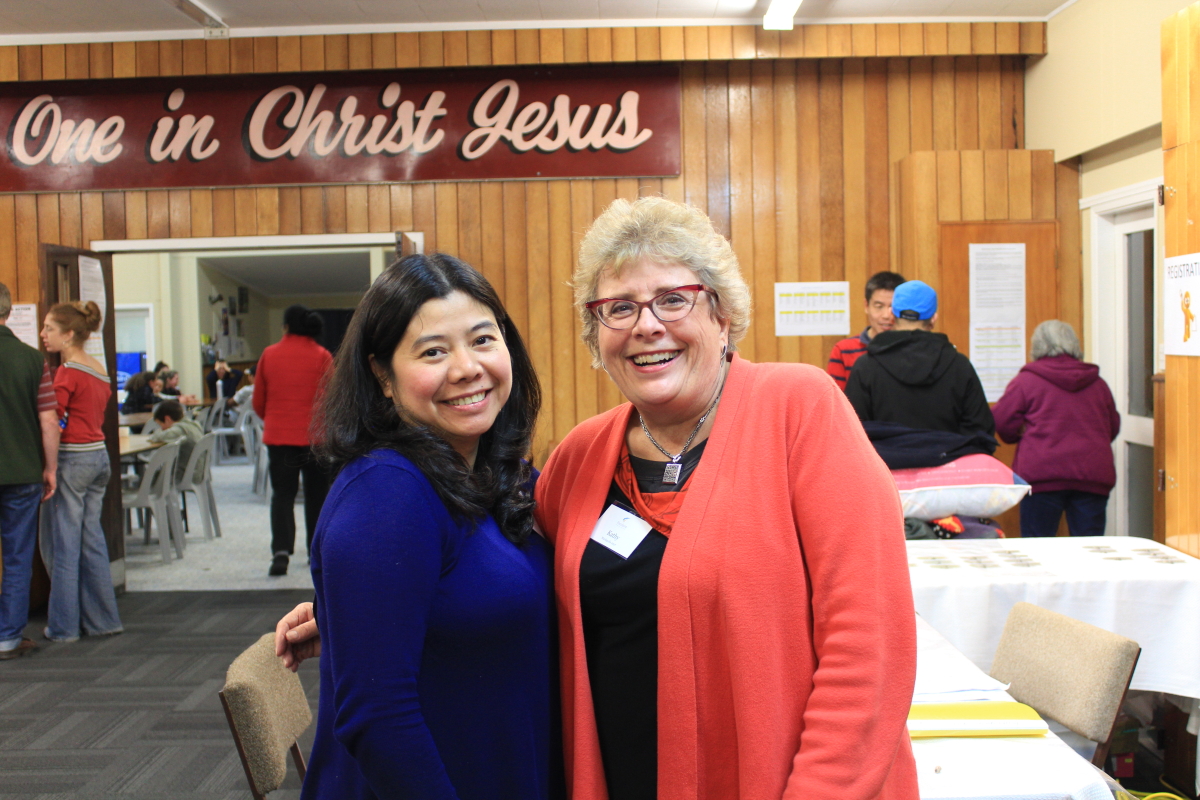 As in the simplicity of life in a big family, also in the Mariapolis everything was shared, like birthday celebrations and a wedding anniversary. “They were three very special days spent getting to know each other through personal chats, sharing joys and sufferings together, facing the challenges through the support of the community, and remaining faithful to the Gospel with coherence and constancy.” From here the “Mariapolis people” departed to return to their various places of origin, taking with them the energy and warmth of Rotorua.
As in the simplicity of life in a big family, also in the Mariapolis everything was shared, like birthday celebrations and a wedding anniversary. “They were three very special days spent getting to know each other through personal chats, sharing joys and sufferings together, facing the challenges through the support of the community, and remaining faithful to the Gospel with coherence and constancy.” From here the “Mariapolis people” departed to return to their various places of origin, taking with them the energy and warmth of Rotorua.
Paraguay: Yvy Marane’y, Land without evil
Shavuot Holiday
The Jewish year is marked by various anniversaries that recall the events that followed the creation and history of the Jews. Shavuot begins at sunset on Tuesday, May 30th and – outside Israel – ends at dusk on June 1st. It is a most important feast that recalls the gift of the Torah on Mount Sinai, the greatest gift given by God to the Jewish People more than three thousand years ago. The name “Shavuot” means “weeks” and refers to the weeks spent in waiting before the Sinai experience, beginning with Passover, leaving Egypt and the Lord’s miracles to free the children of Israel. Shavuot is the less significant of the three Jewish pilgrimages – Passover, Shavuot and Sukkot/Tabernacles – but more important than Hanukkah or Purim.
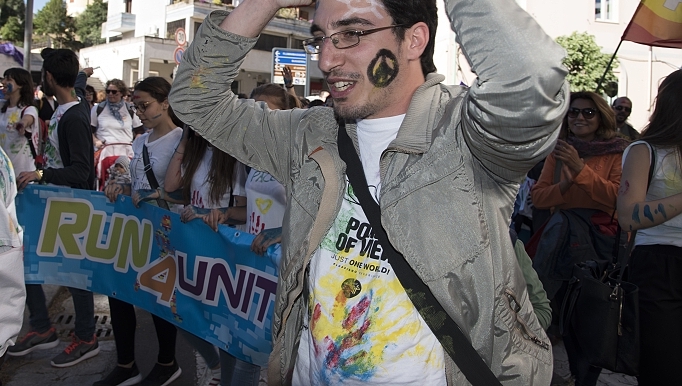
Sardinia: Converting weapons to jobs
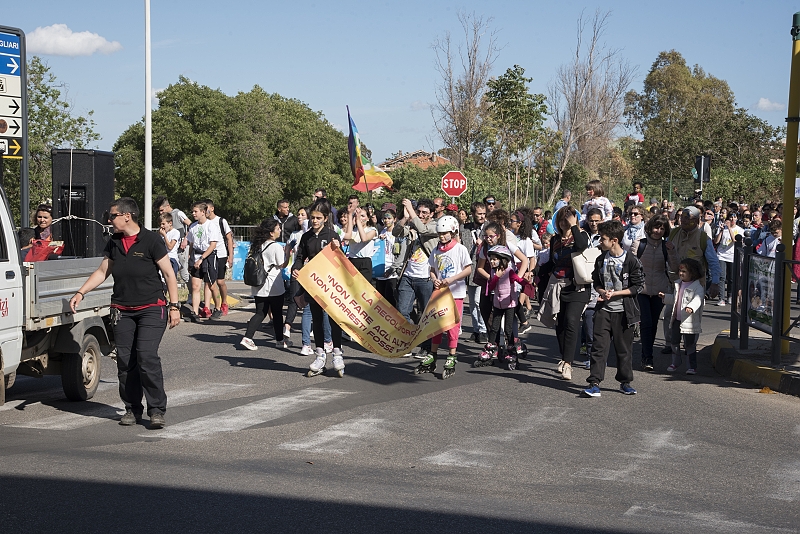 “Yesterday’s breeze brushed the hair and faces of both kids and adults, a colorful slice of humanity saying yes to life and no to the merchants of death. After years of existing in isolation, many groups and organizations came together to start again, in the hope of a visible fraternity.” So read the press release the day after the peace march from its promoters – Focolare, Amnesty International, Oxfam, Fondazione Banca Etica, Opal Brescia, Rete Italiana per il Disarmo – with the support of Comboni missionary Alex Zanotelli. The campaign against arms dealing between Italy and war-torn countries began on March 7, 2017 in Sardinia. The initiative was also part of the worldwide event Run4Unity, promoted by the Young for Unity. Run4Unity takes place each year on the first Sunday of May throughout the globe, during World Unity Week. Arnaldo Scarpa, part of the Focolare Movement in Iglesias and spokesperson for the RWM Conversion Committee together with Cinzia Guaita, explains how the project began. “For many years, there has been a factory in the Domusnovas and Iglesias area whose original work was to produce explosives for nearby mines. Unfortunately the mines were decommissioned, and the factory was converted using public money to produce military equipment. This was then bought and transformed by RWM, a German multinational that produces weapons that are then exported to Saudi Arabia. “So from our country, Italy, arms go out to the ‘pieces of World War III.’ The laws of both countries, Italy and Germany, are quite clear: Law 185/90 in fact prohibits the Italian government to sell arms to countries at war or who do not respect human rights. Yet there has been a continual increase (59%) in Italian exports to North African and Middle Eastern countries in particular. In 2016, RWM’s production rose to almost 22,000, a jump of 1,466%.” At Domusnovas, like in many areas of the island, the main challenge is jobs. “We understood,” Arnaldo continues, “that even our consciences could fall asleep, confused by the general silence, having become groggy from the tragedy of unemployment. Those of us who are committed to living fraternity certainly support the workers, yet we also support the children, teens and adults in Yemen who are killed by what is produced here. Our project has required that we be more courageous than we had ever been in our lives, for many reasons, but it’s already encouraging that there are many people with us who have different backgrounds and ideas.”
“Yesterday’s breeze brushed the hair and faces of both kids and adults, a colorful slice of humanity saying yes to life and no to the merchants of death. After years of existing in isolation, many groups and organizations came together to start again, in the hope of a visible fraternity.” So read the press release the day after the peace march from its promoters – Focolare, Amnesty International, Oxfam, Fondazione Banca Etica, Opal Brescia, Rete Italiana per il Disarmo – with the support of Comboni missionary Alex Zanotelli. The campaign against arms dealing between Italy and war-torn countries began on March 7, 2017 in Sardinia. The initiative was also part of the worldwide event Run4Unity, promoted by the Young for Unity. Run4Unity takes place each year on the first Sunday of May throughout the globe, during World Unity Week. Arnaldo Scarpa, part of the Focolare Movement in Iglesias and spokesperson for the RWM Conversion Committee together with Cinzia Guaita, explains how the project began. “For many years, there has been a factory in the Domusnovas and Iglesias area whose original work was to produce explosives for nearby mines. Unfortunately the mines were decommissioned, and the factory was converted using public money to produce military equipment. This was then bought and transformed by RWM, a German multinational that produces weapons that are then exported to Saudi Arabia. “So from our country, Italy, arms go out to the ‘pieces of World War III.’ The laws of both countries, Italy and Germany, are quite clear: Law 185/90 in fact prohibits the Italian government to sell arms to countries at war or who do not respect human rights. Yet there has been a continual increase (59%) in Italian exports to North African and Middle Eastern countries in particular. In 2016, RWM’s production rose to almost 22,000, a jump of 1,466%.” At Domusnovas, like in many areas of the island, the main challenge is jobs. “We understood,” Arnaldo continues, “that even our consciences could fall asleep, confused by the general silence, having become groggy from the tragedy of unemployment. Those of us who are committed to living fraternity certainly support the workers, yet we also support the children, teens and adults in Yemen who are killed by what is produced here. Our project has required that we be more courageous than we had ever been in our lives, for many reasons, but it’s already encouraging that there are many people with us who have different backgrounds and ideas.”  A positive outcome from the project has been the establishment of the RWM Conversion Committee, to keep the focus on the issue and block the extension of the factory. The area there has natural, environmental and archeological value. There is also the ethical dilemma: some have chosen to not accept work at this factory, even though they are unemployed, while others working inside experience serious crises of conscience. The next step is therefore to lay the foundations for common work on the project, to convert the factory and develop the area differently. Important contacts with entrepreneurs, architects, academics, legal experts, institutions, associations and employee representatives have begun. What is above all essential is that there be a specific political choice at all levels of government. To sign the petition for the Italian president, click here.
A positive outcome from the project has been the establishment of the RWM Conversion Committee, to keep the focus on the issue and block the extension of the factory. The area there has natural, environmental and archeological value. There is also the ethical dilemma: some have chosen to not accept work at this factory, even though they are unemployed, while others working inside experience serious crises of conscience. The next step is therefore to lay the foundations for common work on the project, to convert the factory and develop the area differently. Important contacts with entrepreneurs, architects, academics, legal experts, institutions, associations and employee representatives have begun. What is above all essential is that there be a specific political choice at all levels of government. To sign the petition for the Italian president, click here.
Word of Life June 2017
for ages 4-8 | for ages 9-17 | MP3 Audio | Print
In the days following Jesus’ crucifixion, his disciples stayed indoors, fearful and confused. They had followed him along the roads of Palestine, where he proclaimed God’s tender love for each person. Jesus had been sent by the Father, not only to give witness to this love, but also to open for humanity the path to God. He revealed a God who is Trinity, who is a communion of love in himself, and who wants to gather all into this embrace. During the time of his mission, many people saw, heard and experienced Jesus’ good works, his words of welcome, forgiveness and hope … But then came his condemnation and crucifixion. This is the context in St John’s Gospel, where we are told how after he rose again on the third day Jesus appeared to his disciples and sent them out to continue his mission. “As the Father has sent me, so I send you.” It is as if he said, “Do you remember how I shared my life with you? How I satisfied your hunger and thirst for justice and for peace? How I healed the hearts and bodies of so many marginalized people, the outcasts of society? How I defended the dignity of the poor, widows and foreigners? Now you must continue: proclaim the Gospel you have received to everyone. Tell them that God wishes to be met and known by all. Tell them that you are all brothers and sisters.” Each person, created in the image and likeness of God who is love, longs for this encounter. All cultures and societies strive to build relationships of community. But how challenging it is, how many difficulties and obstacles there are to reaching this goal! Every day this deep aspiration runs up against our weakness, our narrowmindedness and fears, our mistrust and judgement of each other. Yet the Lord, with great trust, goes on saying to us as he did in the past: “As the Father has sent me, so I send you.” How can we respond to such a bold invitation? Doesn’t the mission of creating fraternity in a fractured world seem like fighting a losing battle? On our own we will never make it. That is why Jesus gave us the Holy Spirit, as a special gift who sustains our efforts to love each person, even if that person is an enemy. In a Word of Life meditation from 1994, Focolare founder Chiara Lubich wrote, “The Holy Spirit, given to us through baptism … is the spirit of love and unity, who made all believers one in the risen Lord and with one another, overcoming every difference of race, culture and social class … Our selfishness builds barriers of isolation and excludes those who are different from us … So, by listening to the Holy Spirit’s voice, let us try to grow in this fellowship … overcoming the seeds of division carried within us.” With the Holy Spirit’s help this month, every time we interact with others, no matter what it is, let us too remember and practice the words of love: welcome, listen, empathize, dialogue, encourage, include, care, forgive, appreciate someone … In this way, we accept Jesus’ invitation to continue his mission, and we will be channels of the life he gave us. This was the experience of a group of Buddhist monks visiting the international town of Loppiano, Italy, where its 800 inhabitants try to live the Gospel faithfully. They were deeply touched by experiencing Gospel love for the first time. In 1998, Chiara remembered how one of them said: “I put my dusty shoes outside the door; in the morning I found them clean. I put my dirty clothes outside the door; in the morning, I found them washed and ironed. Others knew that I was cold, because I was from Southeast Asia; they raised the temperature and brought me blankets … One day, I asked, ‘Why are you doing this?’ ‘Because we love you, because we love you very much,’ was the answer.’ This experience paved the way for genuine dialogue between Buddhists and Christians. Letizia Magri _____________________________________________ Each month the Focolare offers a Scripture passage as a guide and inspiration for daily living. Focolare’s founder, Chiara Lubich (1920–2008), wrote these commentaries for many years. Now an international commission continues this tradition, faithful to her spirituality of unity. Letizia Magri, an expert in marriage and family from the John Paul II Institute in Rome, is head of this commission and part of the Focolare’s center for the family. This Word of Life is translated into 96 different languages and reaches several million people worldwide through the media. This monthly leaflet is also a supplement to Living City, the Focolare magazine (livingcitymagazine.com). For information and to subscribe to this leaflet or to the magazine, write to: Living City, 202 Comforter Blvd, Hyde Park, NY 12538; tel: 845-229-0496; e-mail: livingcity@livingcitymagazine.com. Visit focolare.org (international) or focolare.us (U.S.). © 2017 by Living City of the Focolare Movement, Inc. Read more: Lubich, Chiara. “The Holy Spirit, the Unknown God,” Essential Writings, New City Press: Hyde Park, New York, 2007, pp. 143–149. Lubich, Chiara. “God is love,” The Art of Loving. New City Press: Hyde Park, New York, 2010, pp. 25–31.
[:it]Festività dell’Ascensione di Gesù[:de]Fest Christi Himmelfahrt[:es]Fiesta de la Ascensión de Jesús[:fr]Fête de l’Ascension de Jésus
“As they looked at him, He was lifted upward, and a cloud hid Him from their eyes” (Acts of the Apostles). The event known as The Ascension, that is, the Transfiguration and passage of Jesus into the kingdom of glory, concludes the visible permanence of God among men. It is a prelude to Pentecost and marks the beginning of Church history. The episode, described by the Gospels of Mark and Luke, and in the Acts of the Apostles, is a very ancient celebration documented since the 4th century. For the Catholic Church and the Protestant Churches, The Ascension is celebrated 40 days after Easter (in the Gregorian calendar, the feast fell on Thursday 25 May). In the Orthodox Church, it is one of the 12 main feasts, and this year it coincides with the Catholic feast.
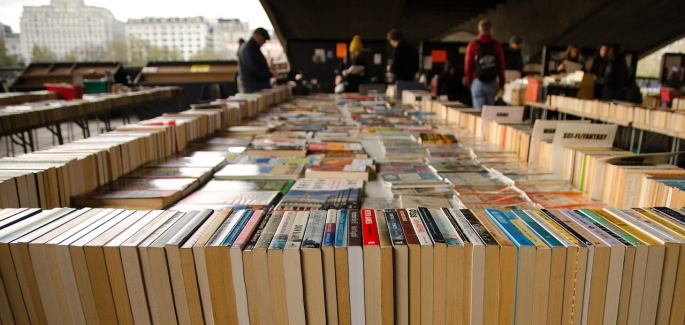
The Living Gospel. “I am with you always.”
Tax payments “We were expecting our third son. The little money we had saved up suddenly disappeared because of the unfavorable bank exchange rates, and the banks were beginning to stop lending. One day, out of the blue, we were informed that we had to pay a huge amount of taxes. Where would we find the money when we were barely surviving on what little money we had? We entrusted ourselves to God, to the Father who never abandons his children. Then we went to ask for help from the city hall and … surprise! We were the only ones who were given the opportunity of receiving financial assistance.” X. A.- Croatia Sales representative  “I work as a book representative. At my first exhibition I didn’t sell anything. The second time was the same. The third time was even worse: there was no room in the meeting hall and I had to content myself with a bad location downstairs, far from where the people gathered during breaks. There was no lift, so I had to transport the boxes in arms, sweating because of the incredible heat. Meanwhile I caught myself saying: ‘Who’s making you do this?’ Passing a chapel, I stopped in to vent with Jesus, who seemed to say to me from the tabernacle: ‘What are you doing?’ ‘God’s will,’ was my answer. ‘Well, relax then and I’ll take care of it now.’ I had to use chairs at the exhibit because there were no tables. A priest walked by and noticed a volume of a volume from a set of encyclopedias on the Saints. He exclaimed: ‘It’s not possible! I’ve been looking for that for years!’ He bought it and, after that, I didn’t stop selling.” Marta – Italy Be like a father “My father left my mother before I was born. I suffered because of his absence and never forgave him for going away. When I was around 17 years old I went looking for him, hoping to renew a relationship that never really existed. Unfortunately I was met by indifference, and his relationship with his wife wasn’t going well either. During that period I got to know young people who were living the Gospel and, through them, I got to know God better. Later, during my university studies, I began to work on a social project that put me in contact with abandoned children. The pain I had gone through had made me more sensible to the pain of others in whom I tried to love Jesus. Little by little, I became a reference point for many of those little ones, to the point that they started calling me Papa. As for the relationship with my father, it’s still a challenge: I try to see him with new eyes every time, always taking the first step.” J. L. – Brazil
“I work as a book representative. At my first exhibition I didn’t sell anything. The second time was the same. The third time was even worse: there was no room in the meeting hall and I had to content myself with a bad location downstairs, far from where the people gathered during breaks. There was no lift, so I had to transport the boxes in arms, sweating because of the incredible heat. Meanwhile I caught myself saying: ‘Who’s making you do this?’ Passing a chapel, I stopped in to vent with Jesus, who seemed to say to me from the tabernacle: ‘What are you doing?’ ‘God’s will,’ was my answer. ‘Well, relax then and I’ll take care of it now.’ I had to use chairs at the exhibit because there were no tables. A priest walked by and noticed a volume of a volume from a set of encyclopedias on the Saints. He exclaimed: ‘It’s not possible! I’ve been looking for that for years!’ He bought it and, after that, I didn’t stop selling.” Marta – Italy Be like a father “My father left my mother before I was born. I suffered because of his absence and never forgave him for going away. When I was around 17 years old I went looking for him, hoping to renew a relationship that never really existed. Unfortunately I was met by indifference, and his relationship with his wife wasn’t going well either. During that period I got to know young people who were living the Gospel and, through them, I got to know God better. Later, during my university studies, I began to work on a social project that put me in contact with abandoned children. The pain I had gone through had made me more sensible to the pain of others in whom I tried to love Jesus. Little by little, I became a reference point for many of those little ones, to the point that they started calling me Papa. As for the relationship with my father, it’s still a challenge: I try to see him with new eyes every time, always taking the first step.” J. L. – Brazil
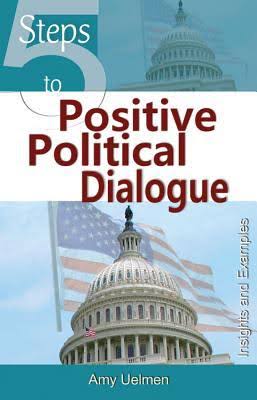
USA: facing the challenges of dialogue
 Over the course of the past year, ideological tension that had been simmering for decades broke out into the open. In the months leading up to the November election, people from every position on the political spectrum expressed deep concerns about the direction the country was heading. Throughout the States, strong and contrasting emotions generated a general sense of unease and division. Such feelings affected relationships in local Focolare communities as well. Many felt that the presidential election campaign forced them to make impossibly difficult choices. Conversations became heated and difficult. Anticipating this possibility, throughout 2015 the Focolare Movement had sponsored workshops based on the New City Press book, Five Steps to Positive Political Dialogue. During these workshops, participants learned and practiced the necessary skills for positive dialogue across political differences. The “five steps” include:
Over the course of the past year, ideological tension that had been simmering for decades broke out into the open. In the months leading up to the November election, people from every position on the political spectrum expressed deep concerns about the direction the country was heading. Throughout the States, strong and contrasting emotions generated a general sense of unease and division. Such feelings affected relationships in local Focolare communities as well. Many felt that the presidential election campaign forced them to make impossibly difficult choices. Conversations became heated and difficult. Anticipating this possibility, throughout 2015 the Focolare Movement had sponsored workshops based on the New City Press book, Five Steps to Positive Political Dialogue. During these workshops, participants learned and practiced the necessary skills for positive dialogue across political differences. The “five steps” include:
- Believe that a Positive Vision is Possible
- Practice Communication Skills Based on Love
- Understand Where There Is Room for Compromise—and Not
- Recognize Suffering as a Springboard for Love
- Build Relationships with Positive Action.
John Chesser (Iowa): “People paired off and they chose to discuss a topic on which they strongly disagreed. The twist was first one person shared their view and then the other person had to repeat their view back before sharing his or her own view. The results were really interesting. The exercise allowed people to gain an appreciation not just for the other person’s point of view but to reflect and reconsider their own view. Of course we didn’t solve the world’s problems in the workshops but we did find new hope and new tools that helped us to see that maybe it’s possible for us to solve these problems with dialogue.” As the November 2016 election drew near, the tension between those who held opposing opinions seemed to increase by the day, and conflict became more and more pronounced in personal life, in workplaces, and in social media communications. Marilyn Boesch (Maryland): “I was very agitated. And I remember examining my conscience, affirming my desire to work for unity, to be a person that builds bridges, not a person resigned to these divisions.” Marijo Dulay (New York): “After a few mistakes I learned to be more sensitive in the comments that I posted on Facebook so as not to hurt the people who differed from my perspective.” Simona Lucchi (Georgia): “I realized that all my preaching and all my yelling wasn’t doing any good because either way it wasn’t changing what people believed in. So I took the stance of sitting back in order to listen. When I stopped talking to actually listen, I found that I had more in common than I thought with the people I disagreed with.” 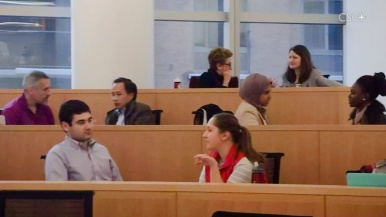 Amid the confusion, the positive proposals for dialogue presented in academic environments were well received. For example, at Fordham Law School, in the heart of Manhattan, New York, Ana Renata Dias, the Director of the Institute on Religion, Law & Lawyer’s Work, offered a workshop that aimed to promote open and constructive cultural dialogue by honing the participants’ listening skills. “Several of the participants said they had come to the workshop because they wanted to understand if dialogue is really possible among such polarization.” After a listening to a presentation with practical suggestions for approaching these difficult conversations, participants rolled up their sleeves and got to work, discovering together that even those who were most impassioned could find ways to exchange contrasting views without the conversation degenerating into a fight. Even those who said they were less than convinced by the workshop felt more hopeful. Two months later, following the inauguration of the new president, cultural tensions became more and more pronounced. Students at Georgetown Law School in Washington, DC were searching for ways to navigate these tumultuous waters. Amy Uelmen, author of the book, Five Steps to Positive Political Dialogue: Insights and Examples, proposed to her class a way forward.
Amid the confusion, the positive proposals for dialogue presented in academic environments were well received. For example, at Fordham Law School, in the heart of Manhattan, New York, Ana Renata Dias, the Director of the Institute on Religion, Law & Lawyer’s Work, offered a workshop that aimed to promote open and constructive cultural dialogue by honing the participants’ listening skills. “Several of the participants said they had come to the workshop because they wanted to understand if dialogue is really possible among such polarization.” After a listening to a presentation with practical suggestions for approaching these difficult conversations, participants rolled up their sleeves and got to work, discovering together that even those who were most impassioned could find ways to exchange contrasting views without the conversation degenerating into a fight. Even those who said they were less than convinced by the workshop felt more hopeful. Two months later, following the inauguration of the new president, cultural tensions became more and more pronounced. Students at Georgetown Law School in Washington, DC were searching for ways to navigate these tumultuous waters. Amy Uelmen, author of the book, Five Steps to Positive Political Dialogue: Insights and Examples, proposed to her class a way forward. 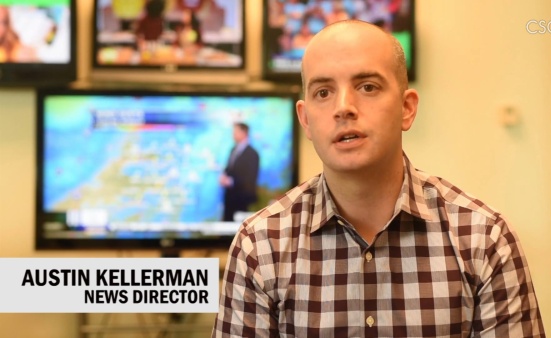 “We realized that often in any conversation there will be caricatures, mischaracterizations, misunderstandings, and information that is simply wrong. We agreed all together to be open to correction and to working out our difficulties when different perspectives collide.” In Arkansas, a traditionally conservative state, some were enthusiastic about the election of the new president while others were angry. Austin Kellerman leads a newsroom in Little Rock, the state’s capital. Together, he and his colleagues decided to launch an appeal for unity. “Our team of journalists felt like we had the chance to be a voice for our city, so in one of the more heated moments one of our more experienced reporters put together a commentary calling for unity and an open mind: he said, ‘There is no them, no us. There is We. We the people.’” “Obviously, this alone will not fix things or change anybody’s view,” Kellerman continues, “but hopefully it gives people permission to think beyond their singular view. We are going to try to keep the dialogue going and staying faithful to representing all sides and voices.” Source: New City Press (New York)
“We realized that often in any conversation there will be caricatures, mischaracterizations, misunderstandings, and information that is simply wrong. We agreed all together to be open to correction and to working out our difficulties when different perspectives collide.” In Arkansas, a traditionally conservative state, some were enthusiastic about the election of the new president while others were angry. Austin Kellerman leads a newsroom in Little Rock, the state’s capital. Together, he and his colleagues decided to launch an appeal for unity. “Our team of journalists felt like we had the chance to be a voice for our city, so in one of the more heated moments one of our more experienced reporters put together a commentary calling for unity and an open mind: he said, ‘There is no them, no us. There is We. We the people.’” “Obviously, this alone will not fix things or change anybody’s view,” Kellerman continues, “but hopefully it gives people permission to think beyond their singular view. We are going to try to keep the dialogue going and staying faithful to representing all sides and voices.” Source: New City Press (New York)
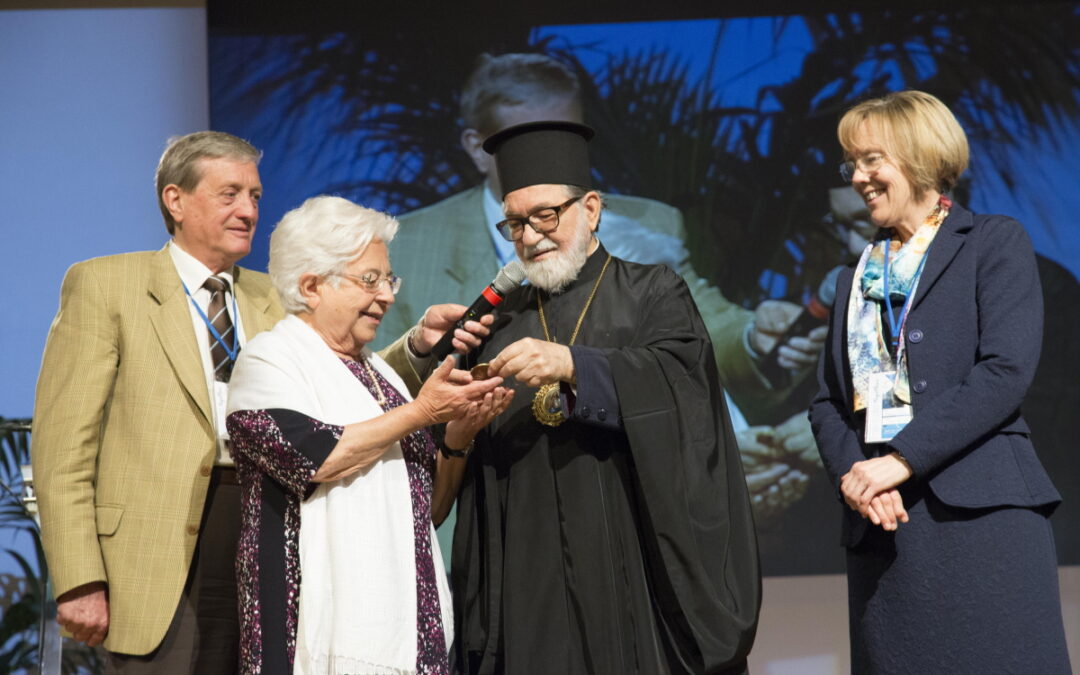
Ecumenical Week: Travelling Together
In the words of Patriarch Bartholomew I: with the 59th edition of Ecumenical Week, promoted by the Focolare Movement at Castel Gandolfo, Italy, (May 9-13), “it is [now] inserted in the crossroads of history, in the interweaving of memories, in the crossroads of ecumenism and part of the social commitment of the Church” It was in 1962 that Chiara Lubich, after her first encounters with Christians from various Churches, invited them to get to know one another, offering the spirituality of unity as a common basis for acknowledging one another as brothers and sisters in Christ. Maria Voce highlighted it as she read the five “imperatives” that were formulated in the Catholic-Lutheran Document From Conflict to Communion, which was elaborated for the 500th Anniversary of the Reformation. Maria Voce remarked: “They are imperatives which, in my opinion, do not only regard Lutherans and Catholics, but are able to be practiced by Christians from all the Churches… as an ecumenical undertaking that will be quite worthwhile.” This was also affirmed by Emeritus Bishop Christian Krause, once President of the World Lutheran Federation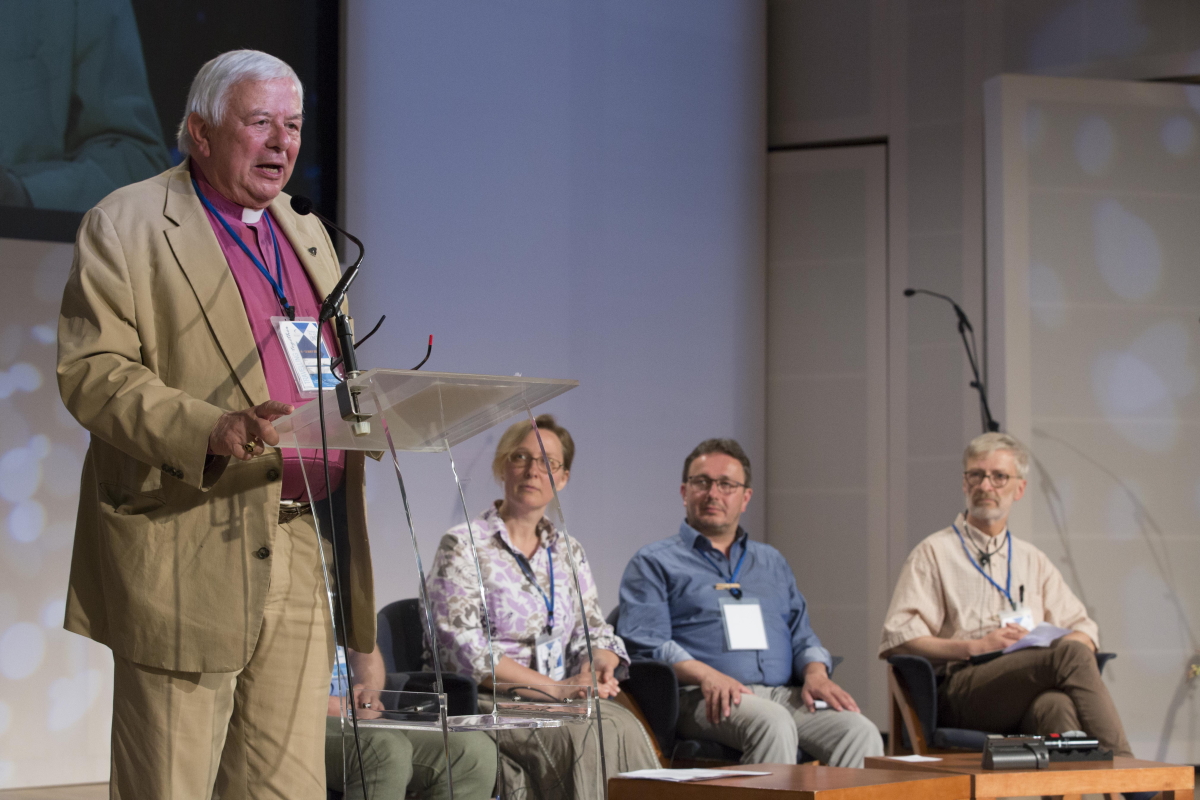
Emeritus Bishop Christian Krause,
The start of Ramadan
For Muslims, May 26 signals the start of the Sacred Month of Ramadan. It is the ninth month of the Islamic year and the most important. It is a sacred time during which the revelation of the Koran to the Prophet Muhammad is commemorated and through fasting (the fourth pillar of the Muslim faith), a special purification is sought. Ramadan is a month of total fasting from dawn to dusk.
Conference for priests and parish communities
The meeting, promoted by the Focolare Movement, will focus on Synodality. The meeting is open to priests, deacons, men and women religious, ministers of various churches and lay people, both young people and adults, who are interested in parish life. For more details and registration contact your nearest Focolare Centre or write to email address: netwalking2017 @ focolare.org Invitation (Italian)
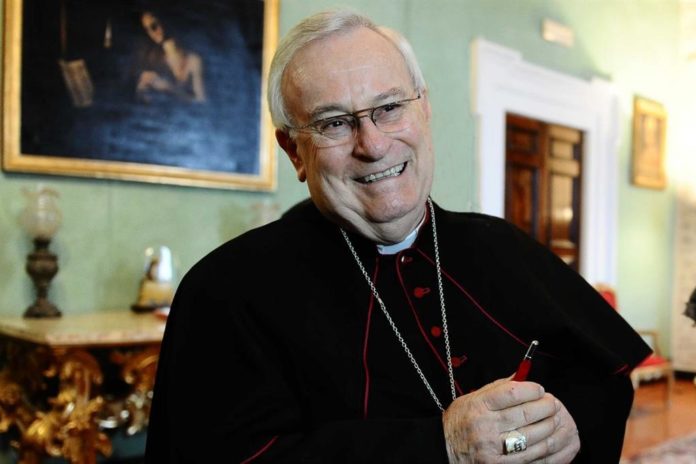
Card. Bassetti, new President of the Italian Episcopal Conference (CEI)
 Maria Voce says that it was “with great pleasure” that she learnt of Cardinal Gualtiero Bassetti’s appointment as new President of the Italian Episcopal Conference (CEI) on May 24, 2017. In a letter congratulating him, the President of the Focolare Movement expresses her “most sincere wishes for this prestigious assignment, a clear sign of trust on behalf of the Holy Father.” “His sense of collegiality and love, which are his trademarks,” continues the President, “will be a great gift for the entire ecclesial and civil community of Italy, especially for those who most resemble Jesus Crucified and Abandoned “. The Focolare Movement in Italy also congratulated the new President of the Bishops’ Conference, saying his appointment is “a source of great joy”. In a press release, it emphasizes his “particular style in always being close to the people, to workers, migrants, families, in their situations of crisis and in their search for truth.” The Movement wishes that he may “experience in this new task an ever-renewed courage to face the countless challenges, comforted by the collegiality which is a witness to the fraternal aspect of the Church.” Born in 1942 in Marradi near Florence, Gualtiero Bassetti was ordained a priest in 1966. In 1994 he was appointed Bishop of Massa Marittima, then Bishop of Arezzo (1998) and in 2009 Archbishop of Perugia. In 2014, Pope Francis welcomed him into the College of Cardinals.
Maria Voce says that it was “with great pleasure” that she learnt of Cardinal Gualtiero Bassetti’s appointment as new President of the Italian Episcopal Conference (CEI) on May 24, 2017. In a letter congratulating him, the President of the Focolare Movement expresses her “most sincere wishes for this prestigious assignment, a clear sign of trust on behalf of the Holy Father.” “His sense of collegiality and love, which are his trademarks,” continues the President, “will be a great gift for the entire ecclesial and civil community of Italy, especially for those who most resemble Jesus Crucified and Abandoned “. The Focolare Movement in Italy also congratulated the new President of the Bishops’ Conference, saying his appointment is “a source of great joy”. In a press release, it emphasizes his “particular style in always being close to the people, to workers, migrants, families, in their situations of crisis and in their search for truth.” The Movement wishes that he may “experience in this new task an ever-renewed courage to face the countless challenges, comforted by the collegiality which is a witness to the fraternal aspect of the Church.” Born in 1942 in Marradi near Florence, Gualtiero Bassetti was ordained a priest in 1966. In 1994 he was appointed Bishop of Massa Marittima, then Bishop of Arezzo (1998) and in 2009 Archbishop of Perugia. In 2014, Pope Francis welcomed him into the College of Cardinals.
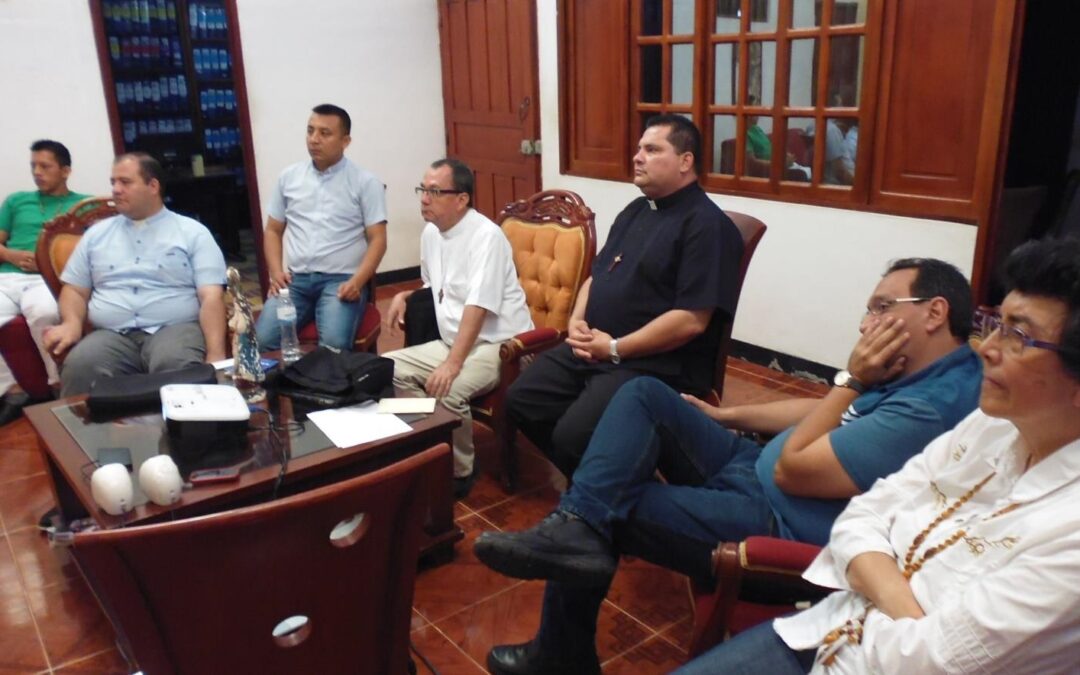
A Trip to Mocoa, Colombia
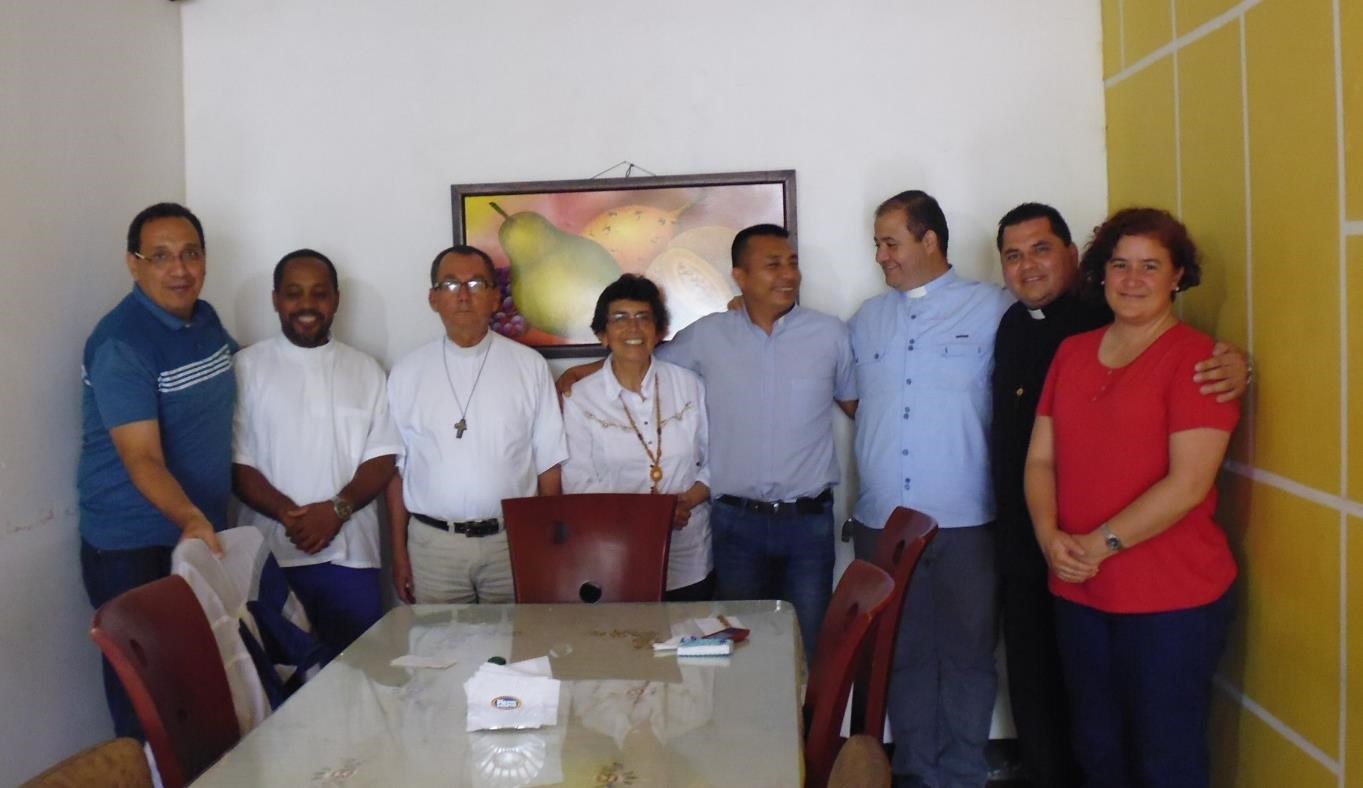 Elizabeth and Allejandra from the women’s focolare in Bogota write: “We went to Mocoa with Fr Juan Carlos Almario, a priest and a focolarino, to take monies to them that had been collected by the Focolare community of Colombia. We were there in the name of the entire Focolare family, to take them their love, prayers and concrete assistance, not only from the community in Colombia but also from many parts of the world that had become involved in this tragedy.” “Several priests from the Movement – pastors from Mocoa – welcomed us with much joy. Then we met the people. Every one of them had a painful story to tell us that was linked to the catastrophe, and we wept with them.” They recalled that April 1st night, the mudslides and the “love race” that broke out among them in reaching the victims. The priests and their bishop, Luis Maldonado, along with other parish priests, got organized to stand by the wounded in the hospitals, to welcome families in search of loved ones and to bury their dead… Then, with the help of other parishioners they set up a canteen to provide meals for people who were without water and electricity, and to share with the public workers that were involved in the relief effort. They arranged the assistance materials as they arrived, so that they could be distributed to those in need, along with surgical masks to protect from the overpowering odours. “The recount of their efforts had a strong Marian quality, silent but concrete, that reached the people through them and met many of the needs that resulted from the tragedy.”
Elizabeth and Allejandra from the women’s focolare in Bogota write: “We went to Mocoa with Fr Juan Carlos Almario, a priest and a focolarino, to take monies to them that had been collected by the Focolare community of Colombia. We were there in the name of the entire Focolare family, to take them their love, prayers and concrete assistance, not only from the community in Colombia but also from many parts of the world that had become involved in this tragedy.” “Several priests from the Movement – pastors from Mocoa – welcomed us with much joy. Then we met the people. Every one of them had a painful story to tell us that was linked to the catastrophe, and we wept with them.” They recalled that April 1st night, the mudslides and the “love race” that broke out among them in reaching the victims. The priests and their bishop, Luis Maldonado, along with other parish priests, got organized to stand by the wounded in the hospitals, to welcome families in search of loved ones and to bury their dead… Then, with the help of other parishioners they set up a canteen to provide meals for people who were without water and electricity, and to share with the public workers that were involved in the relief effort. They arranged the assistance materials as they arrived, so that they could be distributed to those in need, along with surgical masks to protect from the overpowering odours. “The recount of their efforts had a strong Marian quality, silent but concrete, that reached the people through them and met many of the needs that resulted from the tragedy.” 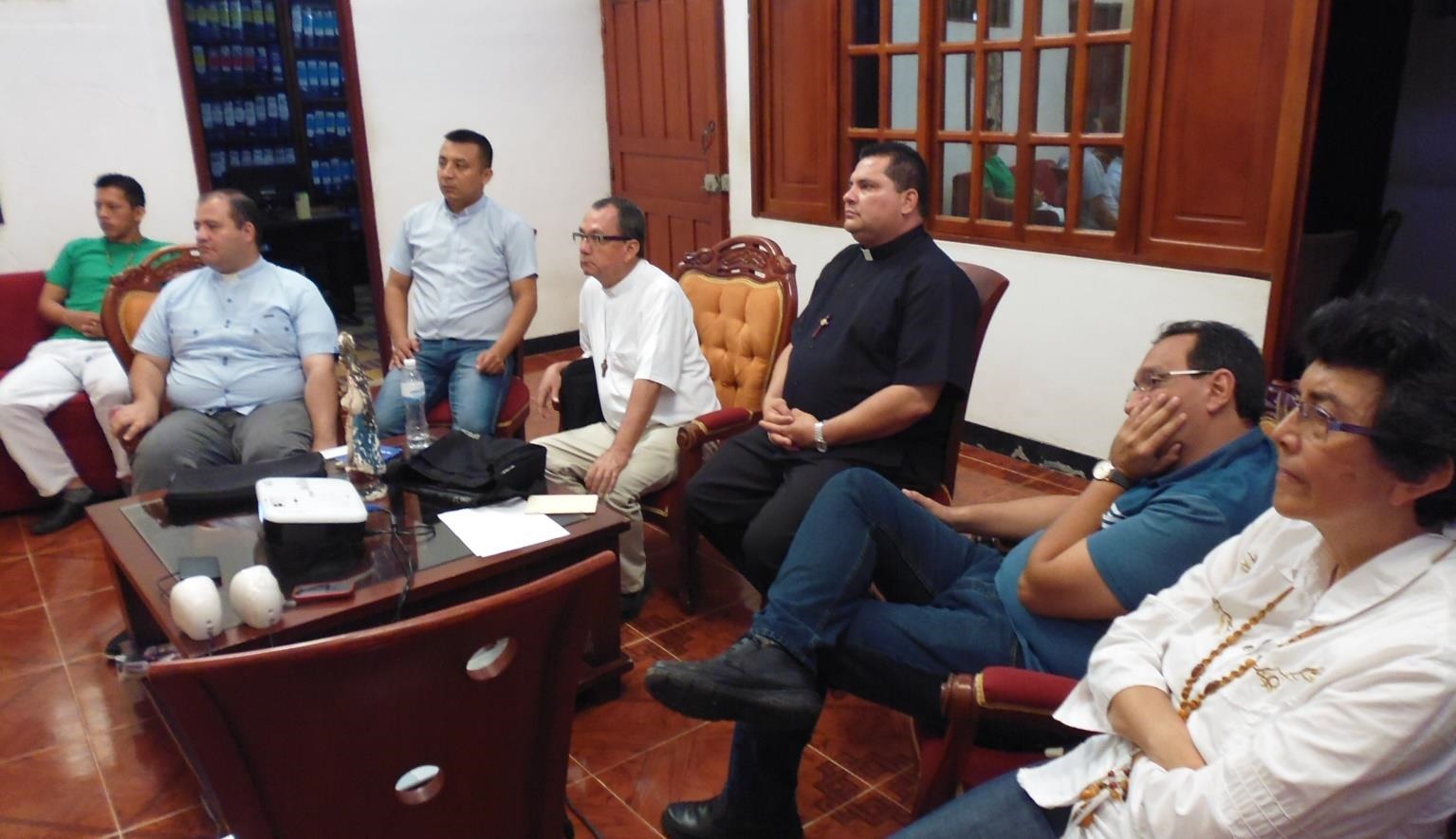 “We wanted to keep in our hearts the topic that the entire Movement is focusing on this year, and it seemed so in tune with the situation we found ourselves in: Jesus Forsaken.” In the spontaneous communion that was born, each one of us sought to see the suffering that was being experienced, seeing in it a face of the infinite suffering Jesus experienced on the Cross, which gives meaning to so much suffering.” One of the priests said, during lunch, that those hours spent with each other were like an “oases” that managed to detach him from the nightmare. “Then, together with Fr Oscar, we travelled around the places that were hit by the mudslides, some quarters completely wiped out. Others had been turned into cemeteries with houses demolished by huge boulders, with uprooted trees everywhere. The love, prayers and assistance reached all the way to Mocoa as it goes through this living hell, and it helped to uplift the victims of this tragedy somewhat. The trip also included a visit to the city of Neiva in southern Colombia: “We wanted to visit our local Focolare community and, with them, to prepare for the upcoming Mariapolis that will be held in July at an archaeological park where there are intact remains of some of the most ancient indigenous cultures.” Amidst the pain and suffering of natural distaster, the Focolare in Colombia is focused on the future. See also:News from Colombia
“We wanted to keep in our hearts the topic that the entire Movement is focusing on this year, and it seemed so in tune with the situation we found ourselves in: Jesus Forsaken.” In the spontaneous communion that was born, each one of us sought to see the suffering that was being experienced, seeing in it a face of the infinite suffering Jesus experienced on the Cross, which gives meaning to so much suffering.” One of the priests said, during lunch, that those hours spent with each other were like an “oases” that managed to detach him from the nightmare. “Then, together with Fr Oscar, we travelled around the places that were hit by the mudslides, some quarters completely wiped out. Others had been turned into cemeteries with houses demolished by huge boulders, with uprooted trees everywhere. The love, prayers and assistance reached all the way to Mocoa as it goes through this living hell, and it helped to uplift the victims of this tragedy somewhat. The trip also included a visit to the city of Neiva in southern Colombia: “We wanted to visit our local Focolare community and, with them, to prepare for the upcoming Mariapolis that will be held in July at an archaeological park where there are intact remains of some of the most ancient indigenous cultures.” Amidst the pain and suffering of natural distaster, the Focolare in Colombia is focused on the future. See also:News from Colombia
School named after Chiara Lubich
On Saturday, May 20, the elementary school of Largo Baccelli located in Pesaro (Italy) was dedicated to Chiara Lubich, founder of the Focolare Movement. The Mayor, the Councillor for Development and the Councillor for Dialogue spoke at the ceremony. The latter stated that “streets, public squares and kindergartens have been named after Chiara Lubich, but this is the first time in Italy that an elementary school has been dedicated to her, who had been a primary school teacher. ” Children and their families participated in the event, as well as Giuseppe Milan, Professor of Pedagogy and Intercultural Studies at the University of Padua, who spoke about “Chiara Lubich and the educational relationship”.
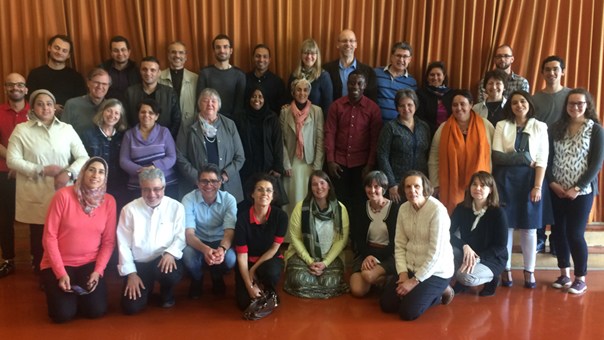
Switzerland: Muslims and Christians moving on together
 «What lies in our heart? Towards what is it oriented? How can we learn to know it better? Aren’t the paths of the heart like roller coasters?» These are some of the issues which stimulated the dialogue between Christians and Muslims participating in a meeting and were visible signs of the desire of both groups to share. The meeting was held at the Muslim cultural center at the end of April and ended in the evangelic parish. It started with the theological reflections of the evangelical pastor, Martin Hoegger, and the Imam, Djalel Meskaldji. Both considered how the Bible and the Koran amplify the meaning of the word “heart,” not only as the seat of sentiments, but rather as the center of our being, and that space where we find dialogue with our own selves, with the others and with God. «The most common disease is not the flu, but schlerosis, that is, the hardening of the heart», M. Hoegger ironically said. And Djalel Meskaldji added: «According to the Koran, the heart can be even harder than stones. It is covered with rust.» They underlined in fact, that the heart is the most precious thing we have, but experience tells us that often it can harden. This leads to the consideration that the “custody of the heart” is a frequent theme in the Bible and in the Fathers of the Church, theologians of the first centuries. And so, to keep a strong hold on one’s heart is a real “spiritual battle.” This would be, according to Meskaldji, the real meaning of the word “Jihad,” according to Muslim tradition. Pastor Hoegger recalled that the biblical prophets «announced that God will one day chisel his law of love in our hearts and put in us a new heart, a heart of flesh.» Furthermore: «Christians turn to Jesus in whom this promise was fulfilled.» On his part, the Imam stressed that: «the Koran repeatedly affirms that the heart needs to be purified by the limpid water of the word of God. It wakens my heart, nurtures it, breaks its toughness and cleans it of the rust that is mostly the outcome of pride.» From Algiers, in live streaming Sheherazad and Farouk, Muslims, recounted how the discovery of God who is love, through the spirituality of the Focolare Movement, has revolutionised their lives as a couple: «We have learned how to love the other for himself, and let God act in the heart of each one so as to be a living witness of the unity of God. But above all, we experience God’s grace which encloses our heart with his mercy.» Then, Anne Catherine Reymond and Fabien, Christians of the Sant’Egidio Community, shared their pathway, narrating how the presence of God has transformed their hearts through prayer and fraternal life, and also through their contact with the poor. «Faith in God is a compass in the challenges which a couple has to face, especially in the education of their children. They push us to place ourselves on a second plane so as to put God in the first place.» What came to light in the group dialogues was what Christians and Muslims have in common. A Muslim woman from Lyon concluded: «In an era in which many try to divide our communities, it is very important to gather together in an atmosphere of mutual esteem!» In this joyful day the participants unanimously expressed the desire to continue the dialogue, also through new encounters.
«What lies in our heart? Towards what is it oriented? How can we learn to know it better? Aren’t the paths of the heart like roller coasters?» These are some of the issues which stimulated the dialogue between Christians and Muslims participating in a meeting and were visible signs of the desire of both groups to share. The meeting was held at the Muslim cultural center at the end of April and ended in the evangelic parish. It started with the theological reflections of the evangelical pastor, Martin Hoegger, and the Imam, Djalel Meskaldji. Both considered how the Bible and the Koran amplify the meaning of the word “heart,” not only as the seat of sentiments, but rather as the center of our being, and that space where we find dialogue with our own selves, with the others and with God. «The most common disease is not the flu, but schlerosis, that is, the hardening of the heart», M. Hoegger ironically said. And Djalel Meskaldji added: «According to the Koran, the heart can be even harder than stones. It is covered with rust.» They underlined in fact, that the heart is the most precious thing we have, but experience tells us that often it can harden. This leads to the consideration that the “custody of the heart” is a frequent theme in the Bible and in the Fathers of the Church, theologians of the first centuries. And so, to keep a strong hold on one’s heart is a real “spiritual battle.” This would be, according to Meskaldji, the real meaning of the word “Jihad,” according to Muslim tradition. Pastor Hoegger recalled that the biblical prophets «announced that God will one day chisel his law of love in our hearts and put in us a new heart, a heart of flesh.» Furthermore: «Christians turn to Jesus in whom this promise was fulfilled.» On his part, the Imam stressed that: «the Koran repeatedly affirms that the heart needs to be purified by the limpid water of the word of God. It wakens my heart, nurtures it, breaks its toughness and cleans it of the rust that is mostly the outcome of pride.» From Algiers, in live streaming Sheherazad and Farouk, Muslims, recounted how the discovery of God who is love, through the spirituality of the Focolare Movement, has revolutionised their lives as a couple: «We have learned how to love the other for himself, and let God act in the heart of each one so as to be a living witness of the unity of God. But above all, we experience God’s grace which encloses our heart with his mercy.» Then, Anne Catherine Reymond and Fabien, Christians of the Sant’Egidio Community, shared their pathway, narrating how the presence of God has transformed their hearts through prayer and fraternal life, and also through their contact with the poor. «Faith in God is a compass in the challenges which a couple has to face, especially in the education of their children. They push us to place ourselves on a second plane so as to put God in the first place.» What came to light in the group dialogues was what Christians and Muslims have in common. A Muslim woman from Lyon concluded: «In an era in which many try to divide our communities, it is very important to gather together in an atmosphere of mutual esteem!» In this joyful day the participants unanimously expressed the desire to continue the dialogue, also through new encounters.
Jordan – Open doors and open arms
https://vimeo.com/214575260
World Day for Cultural Diversity and Development
May 21 is an important date for those who work for international, intercultural and interreligious dialogue and cooperation. On this day the whole world celebrates the World Day of Cultural Diversity for Dialogue and Development, established by the United Nations in 2002 following the adoption by UNESCO of the Universal Declaration on Cultural Diversity in 2001. The Day is an invitation to all – civil society, organizations, individuals, associations – to promote collaboration and encounter between peoples and cultures, with a view to enhancement, support and mutual respect
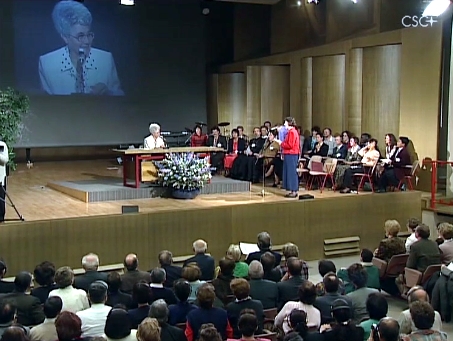
Chiara Lubich: the dialogue of life
In this 500th anniversary year of the Reformation, there has been new drive towards Christian unity, from the historic meeting at Lund in Sweden to the Pope’s recent journey to Egypt. The Focolare Movement is increasing its commitment to what is known as the “dialogue of life” or “dialogue of the people”. This was reaffirmed in the Ottmaring Declaration (21.02.2017) and its outworking happens daily in the efforts of thousands of Christians throughout the world. The 59th “Ecumenical Week” ended recently at Castel Gandolfo (9th-13th May) with 700 participants from 69 countries and many parts of the world. 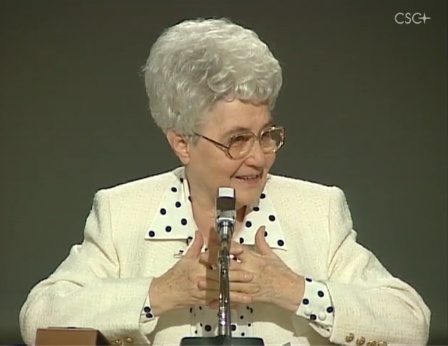 Chiara Lubich was asked about this kind of dialogue on the 4th April 1997 in the context of an ecumenical gathering and she replied spontaneously: “Veronica, an Anglican focolarina from Great Britain asks what our specific contribution to the unification of the Churches could be. Our contribution should be seen in the context of the whole field of ecumenism. We know that there is the dialogue of charity, which is very important. It probably goes back to the times of Athenagoras, when Pope Paul went to visit Athenagoras and Athenagoras went to see Pope Paul. The dialogue of charity helps us to feel that we are brothers and sisters and that we help one another. Then we pray together, which is a dialogue with God, a dialogue that goes through God. This too is very important especially during the Week of Prayer for Christian unity. In addition, you all know that there is the theological dialogue, carried out by experts; that too is going ahead despite the fact that some people say ecumenism is not going ahead. Instead, it is going ahead. We bring a new kind of dialogue. It is the dialogue of the people. It arose out of the spirituality [of unity] that we live in all the various Churches; there are members of 300 Churches who are in the Movement. This dialogue was generated by our spirituality because it is communitarian, it binds us to one another; it brings us together. If I love you and you love me, what is established between us? Jesus in the midst. But then Jesus unites us, as St Paul says, “What can separate us from the love of Christ?” (Rm. 8:35) Likewise, we say, “What will separate us?” Charity unites us. Christ himself unites us. No one can separate us if we go ahead with our spirituality.
Chiara Lubich was asked about this kind of dialogue on the 4th April 1997 in the context of an ecumenical gathering and she replied spontaneously: “Veronica, an Anglican focolarina from Great Britain asks what our specific contribution to the unification of the Churches could be. Our contribution should be seen in the context of the whole field of ecumenism. We know that there is the dialogue of charity, which is very important. It probably goes back to the times of Athenagoras, when Pope Paul went to visit Athenagoras and Athenagoras went to see Pope Paul. The dialogue of charity helps us to feel that we are brothers and sisters and that we help one another. Then we pray together, which is a dialogue with God, a dialogue that goes through God. This too is very important especially during the Week of Prayer for Christian unity. In addition, you all know that there is the theological dialogue, carried out by experts; that too is going ahead despite the fact that some people say ecumenism is not going ahead. Instead, it is going ahead. We bring a new kind of dialogue. It is the dialogue of the people. It arose out of the spirituality [of unity] that we live in all the various Churches; there are members of 300 Churches who are in the Movement. This dialogue was generated by our spirituality because it is communitarian, it binds us to one another; it brings us together. If I love you and you love me, what is established between us? Jesus in the midst. But then Jesus unites us, as St Paul says, “What can separate us from the love of Christ?” (Rm. 8:35) Likewise, we say, “What will separate us?” Charity unites us. Christ himself unites us. No one can separate us if we go ahead with our spirituality.  Therefore, by living this spirituality in the various Churches – Catholic, Anglican, Lutheran, Methodist, and so on – without even thinking about it, a people was born. It flowered from this spirituality, which generates a people. Then what happened? What happened was that by living the spirituality together, by getting to know one another, by loving one another and growing in our mutual love, we discovered that we have things in common, that we are already one family, that we are already a Christian people. I have baptism, and so does Veronica, and so do you. I have the Old Testament and you do too. I have the New Testament and you have it too. Then we have the Councils and many other things in common. If we have all this in common, why don’t we come together into one family and into one people? This is our characteristic contribution, which is essential. On the other hand, we are not the ones who bring it. It is a charism from heaven for our times, which are ecumenical times. It is the charism of unity, which has very much to do with ecumenism.” Source: The Chiara Lubich Centre
Therefore, by living this spirituality in the various Churches – Catholic, Anglican, Lutheran, Methodist, and so on – without even thinking about it, a people was born. It flowered from this spirituality, which generates a people. Then what happened? What happened was that by living the spirituality together, by getting to know one another, by loving one another and growing in our mutual love, we discovered that we have things in common, that we are already one family, that we are already a Christian people. I have baptism, and so does Veronica, and so do you. I have the Old Testament and you do too. I have the New Testament and you have it too. Then we have the Councils and many other things in common. If we have all this in common, why don’t we come together into one family and into one people? This is our characteristic contribution, which is essential. On the other hand, we are not the ones who bring it. It is a charism from heaven for our times, which are ecumenical times. It is the charism of unity, which has very much to do with ecumenism.” Source: The Chiara Lubich Centre
Philippines – Agents of harmony in a world dominated by conflict
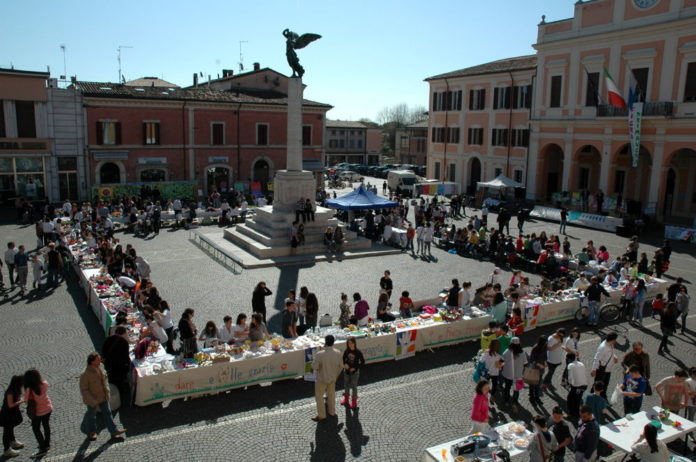
Italy: Peace is brought about by young people
 “We asked the mayor of Savignano sul Rubicone to send a message of fraternity by adding some color to a public space,” say Matteo and Giosuè, Italian members of Youth for a United World. “They gave us an underpass connecting the main road to the train station. We created a mural where we wrote, next to the bridge that symbolizes the city, ‘Let’s bridge’ and “Global citizens” in a number of languages, with the help of a number of migrant kids who came through.” The result was a collective work, a visible sign of peace. The mural project was also an opportunity to make contact with the head of the Ravenna mosque, Imam Mustapha Soufi (president of the European Islamic Conference of Imams). After three months of work the underpass was inaugurated with two mayors and a member of European Parliament who, just three days after the terrible events in Brussels (this was March 2016), had asked to participate in this type of project, one promoted by kids that instils hope in a peaceful future. The underpass became a symbolic place. Matteo and Giosuè are both “ambassadors of peace,” an honorary title bestowed on them by Universal Circle of Ambassadors of Peace, headquartered in Geneva, which has the goal of spotlighting all those who work for peace, especially young people and children ages 6 to 18. For a number of years, they have organized a spring fair in their region, together with other young people. This is a Young for Unity project that, in collaboration with schools, associations and local governments, hopes to create activities promoting peace and fraternity. “Last July,” continues Matteo, “together with 50 members of Young for Unity, we went to World Youth Day. Pope Francis concluded his words with ‘May God bless your dreams.’ There are so many dreams that we want to achieve, especially to be builders of a world of peace and fraternity.” After an earthquake struck central Italy, they felt called once again. Among the many ideas was one to put on two dinners in Modena and Cesena to raise funds. “We got close to 100 kids involved and served 350 people at table, raising more than 4,000 Euros.” The dinner at Cesena included Imam Mustapha, who asked them to come and meet young Muslims to start on a path for peace at the Ravenna mosque, one of the four official mosques in Italy. They were warmly welcomed on January 22. They took off their shoes as they entered, and the girls covered their heads. They sat in a circle, girls to one side, boys to the other. “We started playing a quiz game on the Bible and Quran – there are so many things in common. We are not so different, and all of us wanted to build a more united world. At noon we stood up and, holding hands, we had a minute of silence to ask God for the gift of peace.” After a meal of cous cous prepared by the Muslim mothers, the group had a guided tour of the mosque and a moment of dialogue. “Peace is made by the young,” says the imam, “we must unite and change our way of thinking in order to bring down the walls of prejudice.” Their Muslim friends asked to be able to visit a Catholic church next. “It feels fantastic,” concludes Giosuè. “To build peace we need to respect each other and not be afraid of differences. How can we not think of those Muslim kids that we meet at school or perhaps come across on the street? They too are our brothers, builders of peace together with us, and not terrorists like the media wants us to believe.”
“We asked the mayor of Savignano sul Rubicone to send a message of fraternity by adding some color to a public space,” say Matteo and Giosuè, Italian members of Youth for a United World. “They gave us an underpass connecting the main road to the train station. We created a mural where we wrote, next to the bridge that symbolizes the city, ‘Let’s bridge’ and “Global citizens” in a number of languages, with the help of a number of migrant kids who came through.” The result was a collective work, a visible sign of peace. The mural project was also an opportunity to make contact with the head of the Ravenna mosque, Imam Mustapha Soufi (president of the European Islamic Conference of Imams). After three months of work the underpass was inaugurated with two mayors and a member of European Parliament who, just three days after the terrible events in Brussels (this was March 2016), had asked to participate in this type of project, one promoted by kids that instils hope in a peaceful future. The underpass became a symbolic place. Matteo and Giosuè are both “ambassadors of peace,” an honorary title bestowed on them by Universal Circle of Ambassadors of Peace, headquartered in Geneva, which has the goal of spotlighting all those who work for peace, especially young people and children ages 6 to 18. For a number of years, they have organized a spring fair in their region, together with other young people. This is a Young for Unity project that, in collaboration with schools, associations and local governments, hopes to create activities promoting peace and fraternity. “Last July,” continues Matteo, “together with 50 members of Young for Unity, we went to World Youth Day. Pope Francis concluded his words with ‘May God bless your dreams.’ There are so many dreams that we want to achieve, especially to be builders of a world of peace and fraternity.” After an earthquake struck central Italy, they felt called once again. Among the many ideas was one to put on two dinners in Modena and Cesena to raise funds. “We got close to 100 kids involved and served 350 people at table, raising more than 4,000 Euros.” The dinner at Cesena included Imam Mustapha, who asked them to come and meet young Muslims to start on a path for peace at the Ravenna mosque, one of the four official mosques in Italy. They were warmly welcomed on January 22. They took off their shoes as they entered, and the girls covered their heads. They sat in a circle, girls to one side, boys to the other. “We started playing a quiz game on the Bible and Quran – there are so many things in common. We are not so different, and all of us wanted to build a more united world. At noon we stood up and, holding hands, we had a minute of silence to ask God for the gift of peace.” After a meal of cous cous prepared by the Muslim mothers, the group had a guided tour of the mosque and a moment of dialogue. “Peace is made by the young,” says the imam, “we must unite and change our way of thinking in order to bring down the walls of prejudice.” Their Muslim friends asked to be able to visit a Catholic church next. “It feels fantastic,” concludes Giosuè. “To build peace we need to respect each other and not be afraid of differences. How can we not think of those Muslim kids that we meet at school or perhaps come across on the street? They too are our brothers, builders of peace together with us, and not terrorists like the media wants us to believe.”
Switzerland: Immigrants helping immigrants
https://vimeo.com/214590907
World Telecommunication and Information Society Day
Since 2005, World Telecommunication and Information Society Day, instituted by the United Nations Telecommunications Agency (UIT), is celebrated every year on 17 May. The goal is to enhance the contribution that such tools as the Internet and information technologies can give to society, to the economy, to the progress of humanity. Depending on the way they are put to use, these tools have the potential to enrich global society.
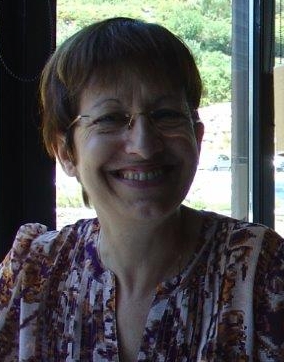
Living the Gospel: Tried and True
 “There are questions in life that are truly difficult to answer: why does death, war, violence, separation or the gap between rich and poor exist? I would often talk with my university friends about these. I studied languages and literature at the University of Porto, in the north of Portugal – but no one seemed to be able to ease my concerns.
“There are questions in life that are truly difficult to answer: why does death, war, violence, separation or the gap between rich and poor exist? I would often talk with my university friends about these. I studied languages and literature at the University of Porto, in the north of Portugal – but no one seemed to be able to ease my concerns.
One day someone mentioned the Gospel and proposed I try living it. I couldn’t believe what I was hearing and objected. I know a lot of people who profess their Christianity, like I do. But after 2,000 years, things haven’t changed much. Yet given that finally someone was actually listening to me, I vented my doubts and judgements and went on for a bit. When it was time to say goodbye, the person only had space to say ‘Try it!’
In Porto I live in an apartment with other girls. That day I was the only who stayed home because I was studying for an exam. A poor lady knocked at the door. My first reaction was to get rid of her quickly, but I was held back by that ‘try it,’ which would pop up and challenge me every once in a while. We didn’t have much at home, but I found something to give the woman. “A bit later my mother called. She was in town for her medical checkup, and wanted to see if I was around: she had a bag of fruit and meat for us. My heart was full of joy, not just because that God-given food would feed us for a whole week, but because this confirmed that the Gospel is true. That small thing that I had just given to that woman had just come back to me hundredfold, just like the promise, ‘Give and you will be given.’
And so my new relationship with Jesus began, and got stronger every time that I tried to recognize him in each person I found myself next to. For my birthday I received a pair of fur gloves. I was hoping to get them for some time, since it gets icy at times here. Then I saw a woman shivering from the cold on the bus – what if I gave her my gloves? I did what I was thinking. This time I was jumping ahead a bit, since Jesus had already given me a hundredfold with that gift, so I could give my gloves to someone who needed them more than I did.
I was going to class when a lady carrying a baby stopped me. She was crying. I didn’t want to be late, I thought to myself, trying to get going. But inside I thought, ‘How can I say I love a God I don’t see and not love my neighbor that I do?’ (Jn 1:20). I looked at my watch and resisted the urge to leave. I stopped and got interested in her situation: she told me she had just left her child in the hospital doing quite poorly. She and her husband were living in two squalid rooms with their eight children.
I couldn’t do much right then and there, but I promised her I’d visit. That same day I told other young people and families from Focolare how I had gotten to know her. Each of them offered to help in whichever way they could. Together we provided the basic necessities (food, clothing, things for the house) and organized turns to help the children with their homework and play with them so their mother could be with their brother at the hospital.
At the same time we tried to understand how to let the city know about the situation and request better living space. A couple of weeks went by, and finally the much-awaited town truck arrived to move them to public housing. The privilege of taking the youngest child to their new home fell to me, and I will never forget that bus trip. The little one slept peacefully in my arms, unaware of the changes I’ve been seeing ever since I started living the Gospel.
Now those big questions, which are still there, have found some answers. I know now that taking the first step not only involves other people giving of themselves, but can even influence society.”
Building bridges of unity
International Family Day
May 15 is celebrated each year as International Family Day, proclaimed by the United Nations General Assembly in 1994. This year’s theme is “Mothers and Families: Challenges in a Changing World” and it focuses on the Important role of mothers for families and communities in the world.
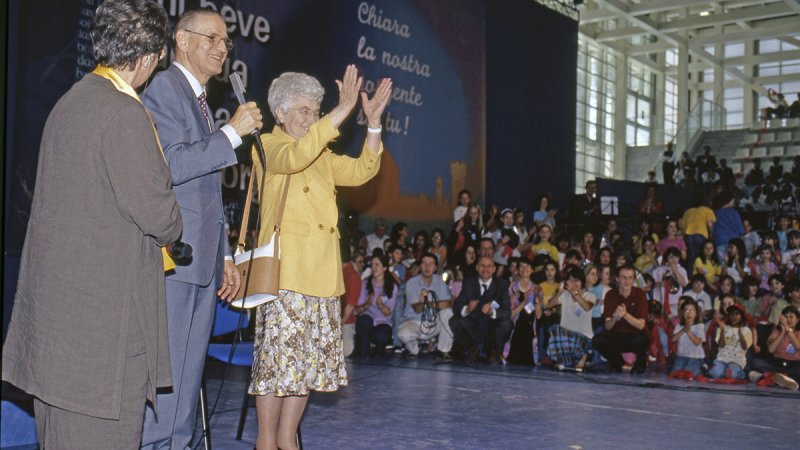
Marco Tecilla, the first focolarino
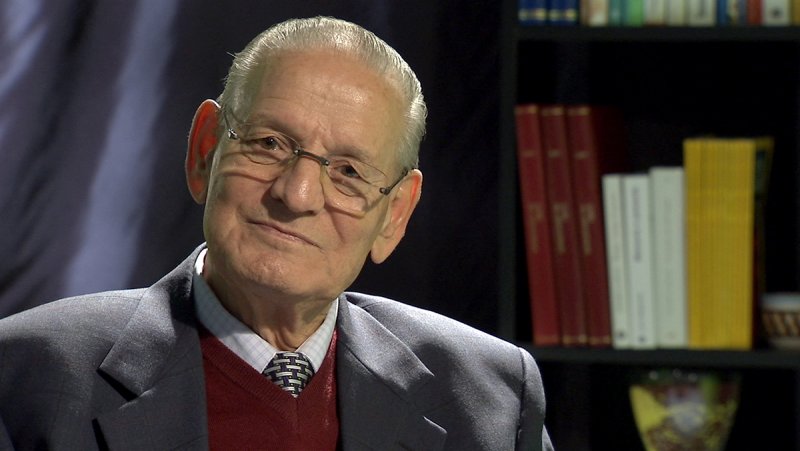 It was the end of 1945 in Trent, Italy, when the war had just ended. Marco was 19 years old and going through a very deep spiritual crisis. A friend who belonged to a community of Men Religious had invited him to a meeting. A young woman, a little older than himself, “spoke about God with such fervour and conviction that there wasn’t any room for doubts,” he later recalled. That young woman was Chiara Lubich who was joined by a group of girls who, like her, had chosen God as their ideal in life. In no time, Marco became the first young man to follow her. He was the first focolarino. The Tecilla family were simple folk, his father a baker, his mother a nurse, one sister and three brothers. With the Great Depression of 1929, his father lost his job. “I remember him covering himself with a mantle in the cold winter months,” Marco recounts, “and me accompanying him from one bread shop to the next, knocking on doors and asking for work, or basket of bread to feed ourselves. I later discovered that as he held on to my hand, with the other hand he counted the beads of his Rosary.” In January 1943 his father died. War broke out and the bombardments began on Trent. The Tecilla family fled to the mountains. Marco avoided the call to arms by signing up for civil service. Meanwhile,he was hired as an operator at the Trento- Malè Railway. His sister, Maria, began to attend a lot of spiritual retreats and to collect clothing for the poor. The family – and Marco – thought she was “over doing it” – until he received that invitation from the friend who belonged to the Men’s Religious community and Marco’s encounter with God-Love.
It was the end of 1945 in Trent, Italy, when the war had just ended. Marco was 19 years old and going through a very deep spiritual crisis. A friend who belonged to a community of Men Religious had invited him to a meeting. A young woman, a little older than himself, “spoke about God with such fervour and conviction that there wasn’t any room for doubts,” he later recalled. That young woman was Chiara Lubich who was joined by a group of girls who, like her, had chosen God as their ideal in life. In no time, Marco became the first young man to follow her. He was the first focolarino. The Tecilla family were simple folk, his father a baker, his mother a nurse, one sister and three brothers. With the Great Depression of 1929, his father lost his job. “I remember him covering himself with a mantle in the cold winter months,” Marco recounts, “and me accompanying him from one bread shop to the next, knocking on doors and asking for work, or basket of bread to feed ourselves. I later discovered that as he held on to my hand, with the other hand he counted the beads of his Rosary.” In January 1943 his father died. War broke out and the bombardments began on Trent. The Tecilla family fled to the mountains. Marco avoided the call to arms by signing up for civil service. Meanwhile,he was hired as an operator at the Trento- Malè Railway. His sister, Maria, began to attend a lot of spiritual retreats and to collect clothing for the poor. The family – and Marco – thought she was “over doing it” – until he received that invitation from the friend who belonged to the Men’s Religious community and Marco’s encounter with God-Love. 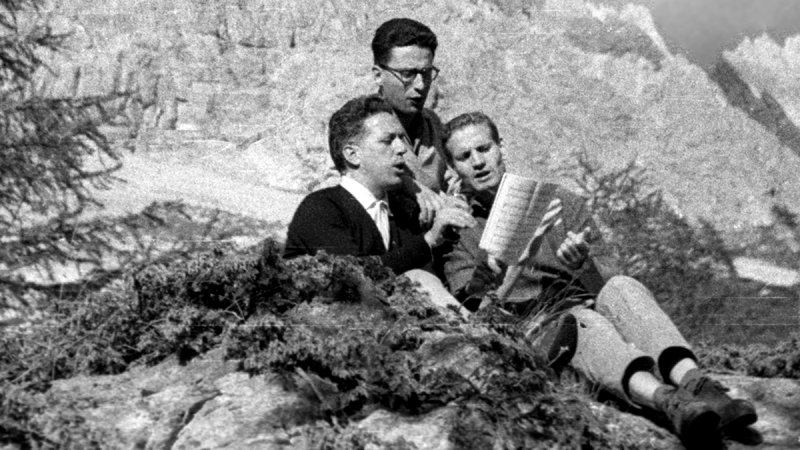 From the moment he met Chiara and the first group of young women, he went often to do odd jobs at the “little house” in Cappuccini square, where the women focolarine lived. He was drawn by the supernatural atmosphere that he found in that place. “One evening,” he recalls, “I had to work a little longer than usual, to finish up some repair work. Chiara was working on some sewing, sitting at the table nearby. Without warning she turned to me and said: “If Jesus were to come today, he would be Jesus 24 hours a day, whether working, praying, eating, resting . . . in today’s world he’d be an electrician like you . . .” Marco was quite struck by “this new vision of the Christian life. I saw a new horizon opening before me, overflowing with light. When I left the “little house” the sky was all dotted with stars. A new life began for me and I had to turn the page and abandon myself to the arms of the God who had manifested himself to me as LOVE.” Marco felt that Jesus was calling to him: If you want to be perfect go and sell what you have and give it to the poor; then, come and follow me. Following Jesus, that’s my path.” On the evening of November 27, 1948 the first men’s focolare was begun with Livio who had also been added to the group. Marco never imagined that in the years to come he would be moved thirty times! The nascent Movement spread quickly all over the world and Marco would move to many cities in Italy . . . In 1953 to Innsbruck, in 1958 to Uruguay, Argentina, Brazil and Chile; in 1960 to Trieste, Italy, and then beyond the Iron Curtain in Zagreb. On November 22, 1964 he was to the priesthood and returned to Brazil until 1967, returning again until 1971. Then he was in southern Italy and Milan, Padua and finally Trent after 31 years away. That is when he found the land for the new Mariapolis Centre in Cadine and took part in the project that Chiara Lubich launched in 2001: Trento Ardente. At the end of that year, Chiara wanted him at the Centre of the Movement in Rocca di Papa, Italy, where he would live out the last years of his life.
From the moment he met Chiara and the first group of young women, he went often to do odd jobs at the “little house” in Cappuccini square, where the women focolarine lived. He was drawn by the supernatural atmosphere that he found in that place. “One evening,” he recalls, “I had to work a little longer than usual, to finish up some repair work. Chiara was working on some sewing, sitting at the table nearby. Without warning she turned to me and said: “If Jesus were to come today, he would be Jesus 24 hours a day, whether working, praying, eating, resting . . . in today’s world he’d be an electrician like you . . .” Marco was quite struck by “this new vision of the Christian life. I saw a new horizon opening before me, overflowing with light. When I left the “little house” the sky was all dotted with stars. A new life began for me and I had to turn the page and abandon myself to the arms of the God who had manifested himself to me as LOVE.” Marco felt that Jesus was calling to him: If you want to be perfect go and sell what you have and give it to the poor; then, come and follow me. Following Jesus, that’s my path.” On the evening of November 27, 1948 the first men’s focolare was begun with Livio who had also been added to the group. Marco never imagined that in the years to come he would be moved thirty times! The nascent Movement spread quickly all over the world and Marco would move to many cities in Italy . . . In 1953 to Innsbruck, in 1958 to Uruguay, Argentina, Brazil and Chile; in 1960 to Trieste, Italy, and then beyond the Iron Curtain in Zagreb. On November 22, 1964 he was to the priesthood and returned to Brazil until 1967, returning again until 1971. Then he was in southern Italy and Milan, Padua and finally Trent after 31 years away. That is when he found the land for the new Mariapolis Centre in Cadine and took part in the project that Chiara Lubich launched in 2001: Trento Ardente. At the end of that year, Chiara wanted him at the Centre of the Movement in Rocca di Papa, Italy, where he would live out the last years of his life.  “His joy was always hard to contain when he came to Loppiano to give lessons on the Spirituality to members of the schools,” recalls Redi Mghenzani who lived with Marco for 20 years, “ [He showed special care and attention] when it came to the new generations of men and women focolarini. He leaves us a trail of light that will never be extinguished.” “Marco sowed love in many parts of the world,” recalls focolarino Armando Droghetti, who accompanied Marco during the final years of his life,” that love which allowed unity to be born among people from all social and cultural backgrounds, as many of the numberless visitors from this past month had said; especially from last year when a series of small strokes affected him in different ways. But as everything seemed to be failing in Marco (his voice became weaker and weaker, his legs were somehow blocked) the situation pushed all of us, beginning with Marco, to supplement our mutual love. Based on this spiritual life and an ever more intense unity in our focolare, even the unexpected crisis of May 8th didn’t catch Marco and us off guard. During a brief upturn in his condition he remarked with great certainty: “I only need to be purified.” He would welcome the doctor with those shining eyes that seemed to wrap everyone in love. And this was also the impression of many who went to say their final goodbye. They said that beyond a sense of orphan hood because of his departure, what Marco had prepared them for by saying I’m nothing and God is everything. Only in Him do we live” – was even stronger. Focolare president, Maria Voce, highlighted that “Marco that mark of radicalness of the early times of the Movement, along with his strength and faith in the charism of unity with the purity of his Gospel live.” In an interview that was released on March 31, 2008, a few days after Chiara Lubich died, Marco stated: “As long as I have a bit of breath, my wish is to be able to give my all to the new generations. I’m sure that whoever comes after us will do greater things than we did, precisely because of the richness that is transmitted by the charism of unity, which will never ever die.”
“His joy was always hard to contain when he came to Loppiano to give lessons on the Spirituality to members of the schools,” recalls Redi Mghenzani who lived with Marco for 20 years, “ [He showed special care and attention] when it came to the new generations of men and women focolarini. He leaves us a trail of light that will never be extinguished.” “Marco sowed love in many parts of the world,” recalls focolarino Armando Droghetti, who accompanied Marco during the final years of his life,” that love which allowed unity to be born among people from all social and cultural backgrounds, as many of the numberless visitors from this past month had said; especially from last year when a series of small strokes affected him in different ways. But as everything seemed to be failing in Marco (his voice became weaker and weaker, his legs were somehow blocked) the situation pushed all of us, beginning with Marco, to supplement our mutual love. Based on this spiritual life and an ever more intense unity in our focolare, even the unexpected crisis of May 8th didn’t catch Marco and us off guard. During a brief upturn in his condition he remarked with great certainty: “I only need to be purified.” He would welcome the doctor with those shining eyes that seemed to wrap everyone in love. And this was also the impression of many who went to say their final goodbye. They said that beyond a sense of orphan hood because of his departure, what Marco had prepared them for by saying I’m nothing and God is everything. Only in Him do we live” – was even stronger. Focolare president, Maria Voce, highlighted that “Marco that mark of radicalness of the early times of the Movement, along with his strength and faith in the charism of unity with the purity of his Gospel live.” In an interview that was released on March 31, 2008, a few days after Chiara Lubich died, Marco stated: “As long as I have a bit of breath, my wish is to be able to give my all to the new generations. I’m sure that whoever comes after us will do greater things than we did, precisely because of the richness that is transmitted by the charism of unity, which will never ever die.”
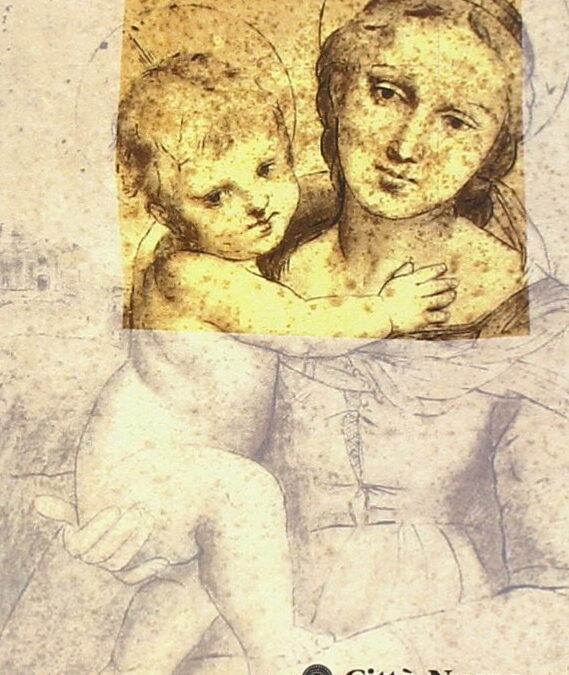
Igino Giordani: Mary, Mother of God
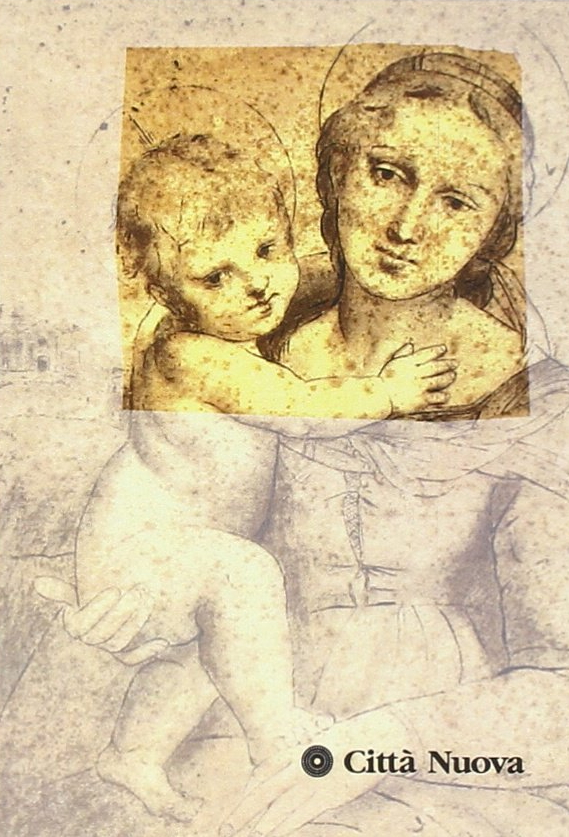 Mary was the most exemplary mother. Therefore, she became and remains forever the model of maternity. Not only was her heart a worthy temple for her Son’s divinity, but also for his humanity, because, whereas he was Man in his perfection, she was not only a woman, but the Woman who lived a double life; that is, an entirely human and divine life, all for the Lord God and all for the Son and, through him, all for humanity. This is how she teaches that the life of the spirit and the life of the flesh can be lived in harmony, in holiness and chastity with one as the custodian of the other. The double life enclosed above all the joys of divinity – the love of the Spouse, the Holy Spirit – and the sufferings of humanity – privations, indecencies, persecutions and finally the slaughter of the cross. From Mary women in general and mothers in particular, and all rational beings, should learn to acquire the wholeness that makes us fully alive Because if you neglect the spiritual element or you neglect the material element – you tumble into error, whether it’s towards humanity or towards divinity. Mary took and gave the proper ranking to that double reality, just the God-Man had done. She was the Virgin and she was the Mother, and she always dissolved suffering into love. She was the strong woman and because God was with her, she had divine strength. She was such a strong example that she has forged millions of human beings, especially mothers of course, who, with Mary were fortified in God, becoming the servants of his will, never giving in to every urge, like people who are empty of the Holy Spirit. “If God is for us, who can be against us?” Mother Frances Cabrini was so fond of these words, and she modelled herself on the Virgin Mother. Also many illustrious martyrs and millions of unknown victims of misery, persecution, wars and disgrace: humble women and men have enclosed their pain inside their hearts as they look towards Mary. Mary forever remains a source of energy: mother of a love that is stronger than death. Saint Bernard says that God wants us to have all things through the hands of Mary, Mary Mother of Grace and Mother of Mercy. Some would argue that Jesus is the mediator of all graces. True enough, but Jesus is our brother, flesh of our flesh, made so by Mary. And turning to him by way of Mary is to place between him, the offended one, and us, the offenders – our mother. Thus a chain is formed in which Mary listens to the sinner. Jesus listens to Mary, the Father listens to Jesus, and the Holy Spirit flows through the relationships. Jesus came to us through Mary: we go to Jesus by the same way; like a river of life that flows from God to [us] and back to God from us. Christians claim their kindship with Christ by way of their Mother’s lips, their kinship with God. Mother of God and my Mother, Medieval spirituality exclaims. And this was translated into verse by the Italian poet, Silvio Pellico[1]. Comforting Virgin, Hope of the afflicted, You are our mother and, together, Mother to our Salvator! Through Mary the human community becomes a family circle where the life that circulates is the life of God.” From Igino Giordani, Maria modello perfetto, (Rome: Città Nuova, 1967; 2012), 81-85; 108-109. [1] Silvio Pellico (1789 – 1854): Italian writer, poet and patriot, famous for writing Le mie prigioni.
Mary was the most exemplary mother. Therefore, she became and remains forever the model of maternity. Not only was her heart a worthy temple for her Son’s divinity, but also for his humanity, because, whereas he was Man in his perfection, she was not only a woman, but the Woman who lived a double life; that is, an entirely human and divine life, all for the Lord God and all for the Son and, through him, all for humanity. This is how she teaches that the life of the spirit and the life of the flesh can be lived in harmony, in holiness and chastity with one as the custodian of the other. The double life enclosed above all the joys of divinity – the love of the Spouse, the Holy Spirit – and the sufferings of humanity – privations, indecencies, persecutions and finally the slaughter of the cross. From Mary women in general and mothers in particular, and all rational beings, should learn to acquire the wholeness that makes us fully alive Because if you neglect the spiritual element or you neglect the material element – you tumble into error, whether it’s towards humanity or towards divinity. Mary took and gave the proper ranking to that double reality, just the God-Man had done. She was the Virgin and she was the Mother, and she always dissolved suffering into love. She was the strong woman and because God was with her, she had divine strength. She was such a strong example that she has forged millions of human beings, especially mothers of course, who, with Mary were fortified in God, becoming the servants of his will, never giving in to every urge, like people who are empty of the Holy Spirit. “If God is for us, who can be against us?” Mother Frances Cabrini was so fond of these words, and she modelled herself on the Virgin Mother. Also many illustrious martyrs and millions of unknown victims of misery, persecution, wars and disgrace: humble women and men have enclosed their pain inside their hearts as they look towards Mary. Mary forever remains a source of energy: mother of a love that is stronger than death. Saint Bernard says that God wants us to have all things through the hands of Mary, Mary Mother of Grace and Mother of Mercy. Some would argue that Jesus is the mediator of all graces. True enough, but Jesus is our brother, flesh of our flesh, made so by Mary. And turning to him by way of Mary is to place between him, the offended one, and us, the offenders – our mother. Thus a chain is formed in which Mary listens to the sinner. Jesus listens to Mary, the Father listens to Jesus, and the Holy Spirit flows through the relationships. Jesus came to us through Mary: we go to Jesus by the same way; like a river of life that flows from God to [us] and back to God from us. Christians claim their kindship with Christ by way of their Mother’s lips, their kinship with God. Mother of God and my Mother, Medieval spirituality exclaims. And this was translated into verse by the Italian poet, Silvio Pellico[1]. Comforting Virgin, Hope of the afflicted, You are our mother and, together, Mother to our Salvator! Through Mary the human community becomes a family circle where the life that circulates is the life of God.” From Igino Giordani, Maria modello perfetto, (Rome: Città Nuova, 1967; 2012), 81-85; 108-109. [1] Silvio Pellico (1789 – 1854): Italian writer, poet and patriot, famous for writing Le mie prigioni.

